- English (EN)
- Español (ES)
- Português (BR)

Is Latvia Safe? Crime Rates & Safety Report
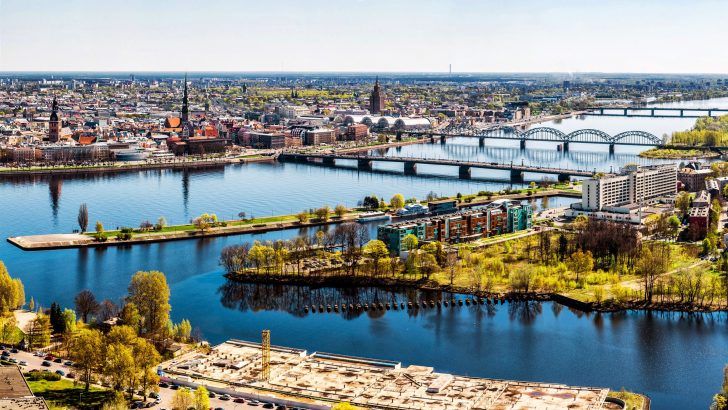
- Latvia : Safety by City
Latvia is a Baltic country located in Northern Europe, bordering Estonia to the north, Lithuania to the south, Russia to the east, Belarus on the southeast, and the Baltic Sea on the west.
It is yet another country boasting a beautiful Baltic Sea coastline, and it is only one of the many gorgeous, mostly natural, features that this country has to offer.
Though the most famous travel spot is Latvia’s capital Riga, which is also a World Heritage Site itself, there are many options in this country for tourists to see and visit.
Latvia offers wonderful landscapes and surroundings, both urban and rural, such as Liepaja with its former secret military town of Karosta and a breathtaking beach.
Among its natural beauties is Kuldiga with Europe’s widest waterfall and as for cultural heritage, there’s Cesis with its medieval castle ruins.
Then there are forests, vast forests covering approximately 50% of Latvia’s territory with many trails, tracks and nature parks.
And of course, topping this all off is the wild beauty of Latvia’s coastline, expanded over 500 km of land and consisting mainly of white, soft sandy beaches.
- Warnings & Dangers in Latvia
OVERALL RISK: LOW
Latvia is overall safe to travel to, the crime rates are relatively low, and even pickpockets are not that common. However, it is advised that you remain vigilant at all times, especially on the streets.
TRANSPORT & TAXIS RISK: HIGH
As in other Baltic countries, traffic is not very safe in Latvia. It is filled with reckless drivers and even crossing the street is dangerous. Some roads are badly kept and riddled with holes. Be very careful when included in Latvia's traffic.
PICKPOCKETS RISK: LOW
Pickpocketing exists in Latvia but it is not too big of an issue. There are specific areas to watch out for such as Vecriga (Riga's Old Town), Dzelzcela Stacija (central train station), the Autoosta (central bus station) and Centraltirgus (central market) notorious for pickpockets. Be careful and keep your valuables close by your side.
NATURAL DISASTERS RISK: LOW
As for natural disasters, there are no greater risks, apart from flooding caused by heavy rains, mostly in the eastern part of the country.
MUGGING RISK: LOW
It is not likely you will get mugged or kidnapped in Latvia. Still, don't let your guard down and stay away from dark and deserted areas of bigger cities.
TERRORISM RISK: LOW
There haven't been any terrorist attacks in Latvia's recent history, but they shouldn't be ruled out, so be aware of your surroundings at all times.
SCAMS RISK: MEDIUM
There are several scams performed in Latvia, especially in Riga, and they are mostly connected to bars and pubs. People lured into a pub or a bar by a pretty lady are mostly ridiculously overcharged. This happens in shady pubs such as Kapsula, Babylon and Sonali Pub to name a few. Never accept drinks from strange people or leave your drink unattended.
WOMEN TRAVELERS RISK: LOW
Overall, Latvia is very safe for women traveling solo. Just use your common sense and have your wits with you. Avoid poorly lit and deserted areas at night and finding yourself in places filled with drunken people.
- So... How Safe Is Latvia Really?
Latvia is generally safe to travel to, and petty crime is relatively low although it exists.
Pickpocketing is mostly common in larger cities and some of the most notorious locations for this crime are Vecriga (Riga’s Old Town), Dzelzcela Stacija (central train station), the Autoosta (central bus station) and Centraltirgus (central market).
Another issue to bear in mind is that bicycle theft is also common so make sure to lock your bicycle before walking away, even if it’s the smallest distance from your vehicle.
As other Baltic countries bear in mind that traffic isn’t the safest.
Latvia is filled with reckless drivers and some roads are very unsafe, which is why the accident rate in Latvia is very high.
Be careful when crossing the road and especially mind the forest roads since collisions with wildlife animals can easily occur.
Since half of Latvia’s territory is covered in forests, you should watch out for forest ticks as they can be abundant from May to September, depending on the humidity of the previous year’s weather, and bear in mind that they can occasionally be found even in old town parks.
Their bite carries the risk of tick-borne encephalitis (these infected ticks can be quite common) and Lyme disease which is less common.
If you do get bitten by one, keep in mind that delayed or inadequate treatment can lead to disabilities.
There are also some snakes in Latvia, but they are mostly not venomous, except for the European Adder which carries a possible death threat if you get bitten and not treated within the next couple of hours.
- How Does Latvia Compare?
- Useful Information
For most countries, visas are not required for any stays shorter than 90 days. Any longer than that and you have to obtain a visa. If you are not sure about your visa status, visit www.doyouneedvisa.com which will let you know whether or not you need a visa based on your nationality and the country you want to visit.
Euro is the official currency for Latvia and most of Europe. ATMs are very easy to find and credit cards are accepted in many establishments such as hotels and restaurants.
Latvia has a warm temperate humid climate with pleasant summers and reasonably mild winters that last from January until March. Average temperatures range from 10°C to 15°C in winter, but temperatures sometimes drop as low as -6.6°C
Riga International Airport is the biggest international airport of Riga, the capital of Latvia, and it's located in the Mārupe Municipality west of Riga. It is a state-owned joint-stock company, while the owner of all shares is no one other than the government of Latvia.
Travel Insurance
Just like anywhere else, we recommend getting travel insurance when traveling to Latvia since it covers not only the costs of medical problems but also theft and loss of valuables.
Latvia Weather Averages (Temperatures)
- Average High/Low Temperature
Latvia - Safety by City
Explore latvia.
- 10 Most Dangerous Cities in Latvia
- 10 Safest Cities in Latvia
- 16 Pros and Cons of Living in Latvia
- 10 Most Beautiful Castles in Latvia
- Where to Next?
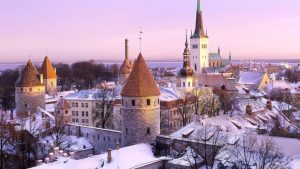
10 Reviews on Latvia
Been To Riga,Loved it there,Going again next week . People are lovely and warm,City is nice and very clean , We booked our Hotel and Flight tickets few month before at cheaper prices, Ryanair return ticket was only £70 pp and 4 star hotel around £40 per/day , Good bars and Restaurants,Prices bit lower than UK We travelled In june and weather was gorgeous,Temp around 22 degree There are a lot of touristy attractions ,River Daugava looks amazing at sunset time . If you are not from Europe,you need to get Visa,normally taking around 4 weeks time I do Recommend Latvia 100%
I want to get information about Latvia .for my further study….is there safe country for indian people?
Its safe for everyone!
Yes! I think so! I live in latvia and i believe its safe!
I am interested latvia very nice latvia
Loved Riga. Very safe. Some scams .. but they are obvious and very very minor. Just trying to get you to pay more to enter places.. will be going again.
Beware in Valmiera
Been in Valmiera, Latvia for several times now. If it was not because of training purposes in Olympic Training Centre. Better to spend some money on other country. Every visit we got bad experiences. This time I got two bruises because one of the VTU Valmiera’s bus driver tried to close the door while I was still standing just right at the door while queuing. He tried two attempts to jam me. Thats why I got two bruises. It comes into my conclusion that he did that in purpose. Luckily he did not jam my daughter who was standing in front of me. According to my opinion, Valmiera people is not ready to welcome tourist. So beware of your safety especially riding that bus. Hope the Bus Company’s manager beware of this driver ruining the company’s reputation.
Hi, I am sorry to hear about your bad experience. I live in Latvia but have never been to Valmiera myself. Please don’t let this bad experience to get in the way of returning to Latvia in the future. I would recommend to rather go to Riga and the surroundings. And if you visit when it’s warm – Jurmala, while Sigulda is perfect for autumn season.
I love Latvia Riga its a good place I will go again whenever I can it was wonderful be sure to check out the baltic sea and get some amber it was very safe I never once felt like I had been in danger be sure to go.
Gem of the Baltics
Been to Latvia several times with my Latvian partner, and it is an amazing, beautiful country, full of stunning natural areas. Jurmala is a superb beach destination, but can get crowded in summer months. The old city of Riga is a real treat, full of history and stunning architecture, as well as the simply huge indoor markets which are breathtaking in size and range of goods on offer. Feels a safe place to be and the bars are fine providing you use common sense, and the beers in Latvia I rate with some of the best European ones (cherry beer is terrific). Cesis is a beautiful town steeped in history and definitely recommended. A good time to visit is 22-24 June to celebrate Jani (yah-knee) which is one of the biggest festivals in Latvia (and the baltics) and the whole country feasts, dances and enjoys the odd beer with friends and family for a couple of days. Most folk are friendly, but don’t expect instant friendship, as many Latvians take time to know you and do not indulge in much ‘small talk’. Learning a few phrases like ‘paldies’ (thank you) and Labdien (good day) will help enormously and will be appreciated. In short, a real gem of a country – we are going back again in a few weeks – can’t wait!
One of the safest countries i have ever been to. Great nature and people, love Kuldiga, Talsi, Old Riga.
Share Your Experience Cancel reply
Your Review
Title of your review
Article Contents
- Overall Risk
- Transport & Taxis Risk
- Pickpockets Risk
- Natural Disasters Risk
- Mugging Risk
- Terrorism Risk
- Women Travelers Risk
- Weather Averages (Temperatures)
- User Reviews
- Share Your Experience
Popular Destinations

Safety Index
Recent reviews & comments.
- Hong on Malaysia
- Russell Smith on New Brunswick
- Karen Foster on New Brunswick
- Steve Collins on Worcester
- Jen Townsend on Worcester
Popular US States
- Pennsylvania
- EMBASSY OF THE REPUBLIC OF LATVIA TO THE UNITED STATES OF AMERICA
- European Capital of Culture - Riga 2014
- Search result
- Email this link
- Embassy newsletter
- Cultural events
- Publications
- Current events in Latvia by Latvian institute
- Latvians in the US
- Current Events
- Consular information
- Business and investment
- Visit/ Study/ Research

Information for travellers from USA to Latvia on the provisions for preventing the spread of COVID-19
Travel to Latvia without additional restrictions is allowed for persons living in the United States of America who have been vaccinated against COVID-19 with a vaccine authorized with the European Medicines Agency or with an equivalent regulator or recognized by the World Health Organization, or persons recovered from COVID-19 and holding a document certifying that (Centers for Disease Control and Prevention - CDC).
All persons travelling to Latvia must fill out an electronic form on the Covidpass.lv website not earlier than 48 hours before entering Latvia and provide the requested information concerning vaccination or recovery from COVID-19.
Please follow information on the webpage of The Centre for Disease Prevention and Control (CDPC) of Latvia.
If proof of vaccination or recovery cannot be provided
Only essential travelers, non-vaccinated, non-recovered from COVID-19, may enter Latvia. Complete list of categories of those who are allowed to enter Latvia is listed in Paragraph 168 of the Cabinet of Ministers Regulation, “ Epidemiological Safety Measures for the Containment of the Spread of COVID-19 Infection”.
All persons travelling to Latvia must fill out an electronic form on the Covidpass.lv website not earlier than 48 hours before entering Latvia and provide the requested information concerning testing.
* a PCR test 72 hours before boarding the carrier’s vehicle or entering Latvia, or an antigen test taken not earlier than 48 hours before boarding the carrier’s vehicle or entering Latvia.Proof of a negative COVID-19 test result must be presented to the airline. If this is not done, the passenger will be denied boarding to Latvia. Children under the age of 12 are exempted from this Covid-19 testing requirement.
**Upon entering Latvia, individuals must immediately, but no later than 24 hours after arrival, undergo a Covid-19 test at the nearest testing site at his or her own expense and must immediately go to the place of self-isolation until a negative test result is received. This testing requirement also does not apply to children who are under the age of 12.
For detailed requirements and a comprehensive list of persons exempt from the test, see Paragraph 159 of the Cabinet of Ministers Regulation, “Epidemiological Safety Measures for the Containment of the Spread of COVID-19 Infection”.
***Upon entering Latvia individuals shall, 10 days after leaving the United States, ensure self-isolation. Self-isolation may be discontinued if on the seventh day after leaving the U.S. he or she undergoes a COVID-19 test and the test result is negative. Information on exceptions to self-isolation requirements after arriving in Latvia is outlined in Paragraph 168 of the Cabinet of Ministers Regulation, “ Epidemiological Safety Measures for the Containment of the Spread of COVID-19 Infection”.
Air travelers entering the Republic of Latvia, including persons who have an interoperable vaccination or recovery certificate, are offered to voluntarily undergo free-of-charge COVID-19 testing in the territory of Riga International Airport.
The airport staff or the State Border Guard and the State Police officers have the right to demand that the arrivals get tested.
As from 1 February 2022, the period of validity of the EU digital Covid-19 vaccination certificate has been set at 270 days after the completion of the primary vaccination cycle for the purposes of travel within the European Union, as well as Iceland, Liechtenstein, Norway and Switzerland. The 270-day validity period will be applied regardless of the type of vaccine administered. This period of validity does not apply to certificates issued after receiving the booster dose and is not limited in time.
The COVID-19 recovery certificate is valid for 180 days.
As from 15 February 2022, at the national level, the following validity periods have been set for the use of certificates to attend events and receive services in Latvia:
- 5 months after receiving the Johnson&Johnson (Janssen) vaccine;
- 9 months after receiving any other vaccine approved by the European Medicines Agency;
Information how to obtain a short-term vaccination certificate for use in Latvia can be found here .
More detailed information about the creation of the digital COVID certificate if vaccination was performed outside European countries can be found here .
More detailed information for travelers to Latvia available here .
Subscribe to news letter
- Skip to main content
- Skip to "About this site"
Language selection
Search travel.gc.ca.
Help us to improve our website. Take our survey !
COVID-19: travel health notice for all travellers
Latvia travel advice
Latest updates: The Health section was updated - travel health information (Public Health Agency of Canada)
Last updated: March 13, 2024 13:54 ET
On this page
Safety and security, entry and exit requirements, laws and culture, natural disasters and climate, latvia - take normal security precautions.
Take normal security precautions in Latvia
Back to top
Petty crime, such as pickpocketing and purse snatching, occurs in Riga, especially in the old part of town, in the market area and around the main railway station. Car theft is common.
- Ensure that your personal belongings, including your passport and other travel documents, are secure at all times
- Avoid showing signs of affluence and carrying large sums of cash
- Avoid walking alone after dark, especially in parks and poorly lit areas
- Never leave personal belongings unattended in a vehicle
- Use secure parking facilities, especially overnight
There is a threat of terrorism in Europe. Terrorist attacks have occurred in a number of European cities. There is a potential for other violent incidents.
Targets could include:
- government buildings, including schools
- places of worship
- airports and other transportation hubs and networks
- public areas such as tourist attractions, restaurants, bars, coffee shops, shopping centres, markets, hotels and other sites frequented by foreigners
Always be aware of your surroundings when in public places.
Credit card and ATM fraud is a concern. Strangers may invite you to visit local bars. This is often a ploy to overcharge customers for drinks. Discussions about overcharging may lead to threats of violence and security guards may force you to pay.
Be cautious when using debit or credit cards:
- pay careful attention when your cards are being handled by others
- use ATMs located in well-lit public areas or inside a bank or business
- avoid using card readers with an irregular or unusual feature
- cover the keypad with one hand when entering your PIN
- check for any unauthorized transactions on your account statements
Overseas fraud
Spiked food and drinks
Never leave food or drinks unattended or in the care of strangers. Be wary of accepting snacks, beverages, gum or cigarettes from new acquaintances, as these items may contain drugs that could put you at risk of sexual assault and robbery.
Demonstrations
Demonstrations may occur. Even peaceful demonstrations can turn violent at any time. They can also lead to disruptions to traffic and public transportation.
- Avoid areas where demonstrations and large gatherings are taking place
- Follow the instructions of local authorities
- Monitor local media for information on ongoing demonstrations
Mass gatherings (large-scale events)
Road safety
Road conditions and road safety can vary greatly throughout the country.
The highway system is generally good, but poor lighting poses risks to pedestrians, cyclists and motorists. Secondary roads may not be paved.
Driving conditions may be hazardous during winter since roads are not always cleared of snow. Beware of fog, snow and ice while driving.
Drivers are extremely aggressive and reckless.
Public transportation
Bus service is generally comfortable and reliable. Trains operate throughout the country.
Taxis are a reliable means of transportation. Use only officially marked taxis.
We do not make assessments on the compliance of foreign domestic airlines with international safety standards.
Information about foreign domestic airlines
Every country or territory decides who can enter or exit through its borders. The Government of Canada cannot intervene on your behalf if you do not meet your destination’s entry or exit requirements.
We have obtained the information on this page from the Latvian authorities. It can, however, change at any time.
Verify this information with the Foreign Representatives in Canada .
- Schengen area
Latvia is a Schengen area country. Canadian citizens do not need a visa for travel to countries within the Schengen area. However, visa-free travel only applies to stays of up to 90 days in any 180-day period. Stays are cumulative and include visits to any Schengen area country.
If you plan to stay in the Schengen area for a longer period of time, you will need a visa. You must contact the high commission or embassy of the country or countries you are travelling to and obtain the appropriate visa(s) prior to travel.
Useful links
- Foreign Representatives in Canada
Entry requirements vary depending on the type of passport you use for travel.
Before you travel, check with your transportation company about passport requirements. Its rules on passport validity may be more stringent than the country’s entry rules.
Regular Canadian passport
Your passport must be valid for at least 3 months beyond the date you expect to leave the Schengen area.
Passport for official travel
Different entry rules may apply.
Official travel
Passport with “X” gender identifier
While the Government of Canada issues passports with an “X” gender identifier, it cannot guarantee your entry or transit through other countries. You might face entry restrictions in countries that do not recognize the “X” gender identifier. Before you leave, check with the closest foreign representative for your destination.
Other travel documents
Different entry rules may apply when travelling with a temporary passport or an emergency travel document. Before you leave, check with the closest foreign representative for your destination.
- Foreign Representatives in Canada
- Canadian passports
Tourist visa: not required for stays up to 90 days* Business visa: not required for stays up to 14 days Student visa: not required for stays up to 90 days* Work permit: required
* The 90-day period begins upon initial entry into any country of the Schengen area. Stays are cumulative and include visits to any Schengen area country within any 180-day period.
Entry ban on vehicles registered in Russia
Latvia enforces an entry ban on vehicles registered in Russia. This restriction is currently in place at the border and reflects European Union sanctions against the Russian Federation.
Vehicles registered in Russia carrying Russian license plates will be refused entry into Latvia.
Restrictions on vehicles with Russian license plates are in place in countries bordering Latvia. Check with local authorities before you try to leave Latvia in a vehicle with Russian license plates.
Persons with vehicles registered in the Russian Federation are banned from Entering Latvia – State Revenue Service
Health insurance
When entering Latvia, you must be able to show sufficient proof of medical insurance to customs officials. The insurance must cover the entire length of your stay. If you do not have proof of insurance coverage, you may be required to obtain health insurance from a Latvian insurance company when you arrive.
Children and travel
Learn more about travelling with children .
Yellow fever
Learn about potential entry requirements related to yellow fever (vaccines section).
Relevant Travel Health Notices
- Global Measles Notice - 13 March, 2024
- COVID-19 and International Travel - 13 March, 2024
This section contains information on possible health risks and restrictions regularly found or ongoing in the destination. Follow this advice to lower your risk of becoming ill while travelling. Not all risks are listed below.
Consult a health care professional or visit a travel health clinic preferably 6 weeks before you travel to get personalized health advice and recommendations.
Routine vaccines
Be sure that your routine vaccinations , as per your province or territory , are up-to-date before travelling, regardless of your destination.
Some of these vaccinations include measles-mumps-rubella (MMR), diphtheria, tetanus, pertussis, polio, varicella (chickenpox), influenza and others.
Pre-travel vaccines and medications
You may be at risk for preventable diseases while travelling in this destination. Talk to a travel health professional about which medications or vaccines may be right for you, based on your destination and itinerary.
Yellow fever is a disease caused by a flavivirus from the bite of an infected mosquito.
Travellers get vaccinated either because it is required to enter a country or because it is recommended for their protection.
- There is no risk of yellow fever in this country.
Country Entry Requirement*
- Proof of vaccination is not required to enter this country.
Recommendation
- Vaccination is not recommended.
* It is important to note that country entry requirements may not reflect your risk of yellow fever at your destination. It is recommended that you contact the nearest diplomatic or consular office of the destination(s) you will be visiting to verify any additional entry requirements.
About Yellow Fever
Yellow Fever Vaccination Centres in Canada
There is a risk of hepatitis A in this destination. It is a disease of the liver. People can get hepatitis A if they ingest contaminated food or water, eat foods prepared by an infectious person, or if they have close physical contact (such as oral-anal sex) with an infectious person, although casual contact among people does not spread the virus.
Practise safe food and water precautions and wash your hands often. Vaccination is recommended for all travellers to areas where hepatitis A is present.
Tick-borne encephalitis (TBE) is a risk in some areas of this destination. It is a viral disease that affects the central nervous system (brain and spinal cord). It is spread to humans by the bite of infected ticks or occasionally when unpasteurized milk products are consumed.
Travellers to areas where TBE is found may be at higher risk during April to November, and the risk is highest for people who hike or camp in forested areas.
Protect yourself from tick bites . The vaccine is not available in Canada. It may be available in the destination you are travelling to.
Measles is a highly contagious viral disease. It can spread quickly from person to person by direct contact and through droplets in the air.
Anyone who is not protected against measles is at risk of being infected with it when travelling internationally.
Regardless of where you are going, talk to a health care professional before travelling to make sure you are fully protected against measles.
Hepatitis B is a risk in every destination. It is a viral liver disease that is easily transmitted from one person to another through exposure to blood and body fluids containing the hepatitis B virus. Travellers who may be exposed to blood or other bodily fluids (e.g., through sexual contact, medical treatment, sharing needles, tattooing, acupuncture or occupational exposure) are at higher risk of getting hepatitis B.
Hepatitis B vaccination is recommended for all travellers. Prevent hepatitis B infection by practicing safe sex, only using new and sterile drug equipment, and only getting tattoos and piercings in settings that follow public health regulations and standards.
Coronavirus disease (COVID-19) is an infectious viral disease. It can spread from person to person by direct contact and through droplets in the air.
It is recommended that all eligible travellers complete a COVID-19 vaccine series along with any additional recommended doses in Canada before travelling. Evidence shows that vaccines are very effective at preventing severe illness, hospitalization and death from COVID-19. While vaccination provides better protection against serious illness, you may still be at risk of infection from the virus that causes COVID-19. Anyone who has not completed a vaccine series is at increased risk of being infected with the virus that causes COVID-19 and is at greater risk for severe disease when travelling internationally.
Before travelling, verify your destination’s COVID-19 vaccination entry/exit requirements. Regardless of where you are going, talk to a health care professional before travelling to make sure you are adequately protected against COVID-19.
The best way to protect yourself from seasonal influenza (flu) is to get vaccinated every year. Get the flu shot at least 2 weeks before travelling.
The flu occurs worldwide.
- In the Northern Hemisphere, the flu season usually runs from November to April.
- In the Southern Hemisphere, the flu season usually runs between April and October.
- In the tropics, there is flu activity year round.
The flu vaccine available in one hemisphere may only offer partial protection against the flu in the other hemisphere.
The flu virus spreads from person to person when they cough or sneeze or by touching objects and surfaces that have been contaminated with the virus. Clean your hands often and wear a mask if you have a fever or respiratory symptoms.
In this destination, rabies may be present in some wildlife species, including bats. Rabies is a deadly disease that spreads to humans primarily through bites or scratches from an infected animal.
If you are bitten or scratched by an animal while travelling, immediately wash the wound with soap and clean water and see a health care professional.
Before travel, discuss rabies vaccination with a health care professional. It may be recommended for travellers who will be working directly with wildlife.
Safe food and water precautions
Many illnesses can be caused by eating food or drinking beverages contaminated by bacteria, parasites, toxins, or viruses, or by swimming or bathing in contaminated water.
- Learn more about food and water precautions to take to avoid getting sick by visiting our eat and drink safely abroad page. Remember: Boil it, cook it, peel it, or leave it!
- Avoid getting water into your eyes, mouth or nose when swimming or participating in activities in freshwater (streams, canals, lakes), particularly after flooding or heavy rain. Water may look clean but could still be polluted or contaminated.
- Avoid inhaling or swallowing water while bathing, showering, or swimming in pools or hot tubs.
Insect bite prevention
Many diseases are spread by the bites of infected insects such as mosquitoes, ticks, fleas or flies. When travelling to areas where infected insects may be present:
- Use insect repellent (bug spray) on exposed skin
- Cover up with light-coloured, loose clothes made of tightly woven materials such as nylon or polyester
- Minimize exposure to insects
- Use mosquito netting when sleeping outdoors or in buildings that are not fully enclosed
To learn more about how you can reduce your risk of infection and disease caused by bites, both at home and abroad, visit our insect bite prevention page.
Find out what types of insects are present where you’re travelling, when they’re most active, and the symptoms of the diseases they spread.
Animal precautions
Some infections, such as rabies and influenza, can be shared between humans and animals. Certain types of activities may increase your chance of contact with animals, such as travelling in rural or forested areas, camping, hiking, and visiting wet markets (places where live animals are slaughtered and sold) or caves.
Travellers are cautioned to avoid contact with animals, including dogs, livestock (pigs, cows), monkeys, snakes, rodents, birds, and bats, and to avoid eating undercooked wild game.
Closely supervise children, as they are more likely to come in contact with animals.
Person-to-person infections
Stay home if you’re sick and practise proper cough and sneeze etiquette , which includes coughing or sneezing into a tissue or the bend of your arm, not your hand. Reduce your risk of colds, the flu and other illnesses by:
- washing your hands often
- avoiding or limiting the amount of time spent in closed spaces, crowded places, or at large-scale events (concerts, sporting events, rallies)
- avoiding close physical contact with people who may be showing symptoms of illness
Sexually transmitted infections (STIs) , HIV , and mpox are spread through blood and bodily fluids; use condoms, practise safe sex, and limit your number of sexual partners. Check with your local public health authority pre-travel to determine your eligibility for mpox vaccine.
Tuberculosis is an infection caused by bacteria and usually affects the lungs.
For most travellers the risk of tuberculosis is low.
Travellers who may be at high risk while travelling in regions with risk of tuberculosis should discuss pre- and post-travel options with a health care professional.
High-risk travellers include those visiting or working in prisons, refugee camps, homeless shelters, or hospitals, or travellers visiting friends and relatives.
Medical services and facilities
Good health care is only available in major cities. Quality of care varies greatly throughout the country.
Doctors and hospitals often expect immediate payment for health services.
Make sure you get travel insurance that includes coverage for medical evacuation and hospital stays.
Travel health and safety
Keep in Mind...
The decision to travel is the sole responsibility of the traveller. The traveller is also responsible for his or her own personal safety.
Be prepared. Do not expect medical services to be the same as in Canada. Pack a travel health kit , especially if you will be travelling away from major city centres.
You must abide by local laws.
Learn about what you should do and how we can help if you are arrested or detained abroad .
Transfer to a Canadian prison
Canada and Latvia are signatories to the Convention on the Transfer of Sentenced Persons. This enables a Canadian imprisoned in Latvia to request a transfer to a Canadian prison to complete a sentence. The transfer requires the agreement of both Canadian and Latvia authorities.
This process can take a long time, and there is no guarantee that the transfer will be approved by either or both sides.
Convention on the Transfer of Sentenced Persons
Canada and Latvia are signatories to the Convention on the Transfer of Sentenced Persons. This enables a Canadian imprisoned in Latvia to request a transfer to a Canadian prison to complete a sentence. The transfer requires the agreement of both Canadian and Latvian authorities.
Penalties for possession, use or trafficking of illegal drugs are severe. Convicted offenders can expect prison sentences or heavy fines.
Drinking alcohol in public could lead to detention and a fine.
Drugs, alcohol and travel
Dual citizenship
Dual citizenship is legally recognized in Latvia.
If you are a Canadian citizen, but also a citizen of Latvia, our ability to offer you consular services may be limited while you're there. You may also be subject to different entry/exit requirements .
Travellers with dual citizenship
International Child Abduction
The Hague Convention on the Civil Aspects of International Child Abduction is an international treaty. It can help parents with the return of children who have been removed to or retained in certain countries in violation of custody rights. The convention applies between Canada and Latvia.
If your child was wrongfully taken to, or is being held in Latvia, and if the applicable conditions are met, you may apply for the return of your child to the Latvian court.
If you are in this situation:
- act as quickly as you can
- contact the Central Authority for your province or territory of residence for information on starting an application under The Hague Convention
- consult a lawyer in Canada and in Latvia to explore all the legal options for the return of your child
- report the situation to the nearest Canadian government office abroad or to the Vulnerable Children’s Consular Unit at Global Affairs Canada by calling the Emergency Watch and Response Centre
If your child was removed from a country other than Canada, consult a lawyer to determine if The Hague Convention applies.
Be aware that Canadian consular officials cannot interfere in private legal matters or in another country’s judicial affairs.
- List of Canadian Central Authorities for the Hague Convention
- International Child Abduction: A Guidebook for Left-Behind Parents
- Travelling with children
- The Hague Convention - Hague Conference on Private International Law
- Canadian embassies and consulates by destination
- Emergency Watch and Response Centre
Export of religious items and antiquities
Strict regulations are in place on exporting religious items or antiquities. If you purchase or acquire any such item while in Latvia, confirm with local authorities if you may export such items with you before attempting to leave.
You can drive in Latvia with your valid Canadian driver’s licence for one year.
However, you should carry an international driving permit.
Penalties for drinking and driving are severe. The legal blood alcohol limit is 0.02 percent for drivers with less than two years of driving experience and 0.05 percent for others. If a police officer suspects you of drinking and driving, they could confiscate your driver's licence on the spot. If you’re convicted, you can expect heavy fines or jail sentences.
If you are involved in an accident, do not move the vehicles until authorized to do so by the police.
All vehicles must have a first-aid kit and emergency travel equipment.
- Driving in Latvia - European Commission
- More about the International Driving Permit
Pedestrians
Pedestrians are required to wear small reflectors from dusk until dawn. These are usually pinned to coats or bags. This is particularly important in rural areas, where lack of lighting makes it difficult for drivers to see pedestrians.
When using public transportation, tickets must be validated at the start of any trip. You could be fined on the spot if you fail to show a validated ticket to an official upon request.
Vehicles with Russian license plates
All vehicles with Russian license plates currently in Latvia must be registered with the Latvian authorities before February 14, 2024. After that date, any vehicle with a Russian license plate will be confiscated by the authorities.
The currency of Latvia is the Euro (EUR).
If you are carrying €10,000 or more, or the equivalent in other currencies, you must make a declaration to customs when you enter or leave the European Union. It includes sums in:
- banknotes and coins
- bearer negotiable instruments such as cheques, travellers’ cheques, promissory notes and money orders
- bonds, shares
- gold coins with a gold content of at least 90 %
- gold bars, nuggets or clumps with a gold content of at least 99.5 %
- any other convertible asset
This does not apply if you are travelling within the European Union or in transit to a non-EU country.
EU cash controls - European Commission
Winter weather can be severe due to heavy snowfall and extremely cold temperatures.
Flooding may occur in spring.
These conditions can put you at risk and hamper the provision of essential services. If you decide to travel to Latvia during these periods:
- be prepared to change your travel plans on short notice, including cutting short or cancelling your trip
- stay informed of the latest regional weather forecasts
- carry emergency contact information for your airline or tour operator
- follow the advice and instructions of local authorities
Local services
Dial 112 for emergency assistance.
Touristic Police in Riga
If you need help, dial +371 6718 1818 for assistance, available in English, 24 hours a day, seven days a week.
Tourist inquiry hotline
If you’re looking for advice or want to express a grievance, dial 1188. Assistance is available in English.
Consular assistance
For emergency consular assistance, call the embassy of Canada in Latvia, in Riga, and follow the instructions. At any time, you may also contact the Emergency Watch and Response Centre in Ottawa.
The decision to travel is your choice and you are responsible for your personal safety abroad. We take the safety and security of Canadians abroad very seriously and provide credible and timely information in our Travel Advice to enable you to make well-informed decisions regarding your travel abroad.
The content on this page is provided for information only. While we make every effort to give you correct information, it is provided on an "as is" basis without warranty of any kind, expressed or implied. The Government of Canada does not assume responsibility and will not be liable for any damages in connection to the information provided.
If you need consular assistance while abroad, we will make every effort to help you. However, there may be constraints that will limit the ability of the Government of Canada to provide services.
Learn more about consular services .
Risk Levels
take normal security precautions.
Take similar precautions to those you would take in Canada.
Exercise a high degree of caution
There are certain safety and security concerns or the situation could change quickly. Be very cautious at all times, monitor local media and follow the instructions of local authorities.
IMPORTANT: The two levels below are official Government of Canada Travel Advisories and are issued when the safety and security of Canadians travelling or living in the country or region may be at risk.
Avoid non-essential travel
Your safety and security could be at risk. You should think about your need to travel to this country, territory or region based on family or business requirements, knowledge of or familiarity with the region, and other factors. If you are already there, think about whether you really need to be there. If you do not need to be there, you should think about leaving.
Avoid all travel
You should not travel to this country, territory or region. Your personal safety and security are at great risk. If you are already there, you should think about leaving if it is safe to do so.
- KAYAK for Business NEW
Latvia Travel Restrictions
Traveler's COVID-19 vaccination status
Traveling from the United States to Latvia
Open for vaccinated visitors
COVID-19 testing
Not required
Not required for vaccinated visitors
Restaurants
Not required in public spaces, enclosed environments and public transportation.
Latvia entry details and exceptions
Ready to travel, find flights to latvia, find stays in latvia, explore more countries on travel restrictions map, destinations you can travel to now, dominican republic, netherlands, philippines, puerto rico, switzerland, united arab emirates, united kingdom, know when to go.
Sign up for email alerts as countries begin to open - choose the destinations you're interested in so you're in the know.
Can I travel to Latvia from the United States?
Most visitors from the United States, regardless of vaccination status, can enter Latvia.
Can I travel to Latvia if I am vaccinated?
Fully vaccinated visitors from the United States can enter Latvia without restrictions.
Can I travel to Latvia without being vaccinated?
Unvaccinated visitors from the United States can enter Latvia without restrictions.
Do I need a COVID test to enter Latvia?
Visitors from the United States are not required to present a negative COVID-19 PCR test or antigen result upon entering Latvia.
Can I travel to Latvia without quarantine?
Travelers from the United States are not required to quarantine.
Do I need to wear a mask in Latvia?
Mask usage in Latvia is not required in public spaces, enclosed environments and public transportation.
Are the restaurants and bars open in Latvia?
Restaurants in Latvia are open. Bars in Latvia are .
- About Latvia Facts about Latvia Practical information Brochures and maps Top 10 attractions
- Experience Regions Active holiday Architecture Culture Cities Events Nature Wellness For families with kids
- Discover Riga
- Eat&drink
- Where to stay
- Trip planner
Search in Latvia
Choose your language.
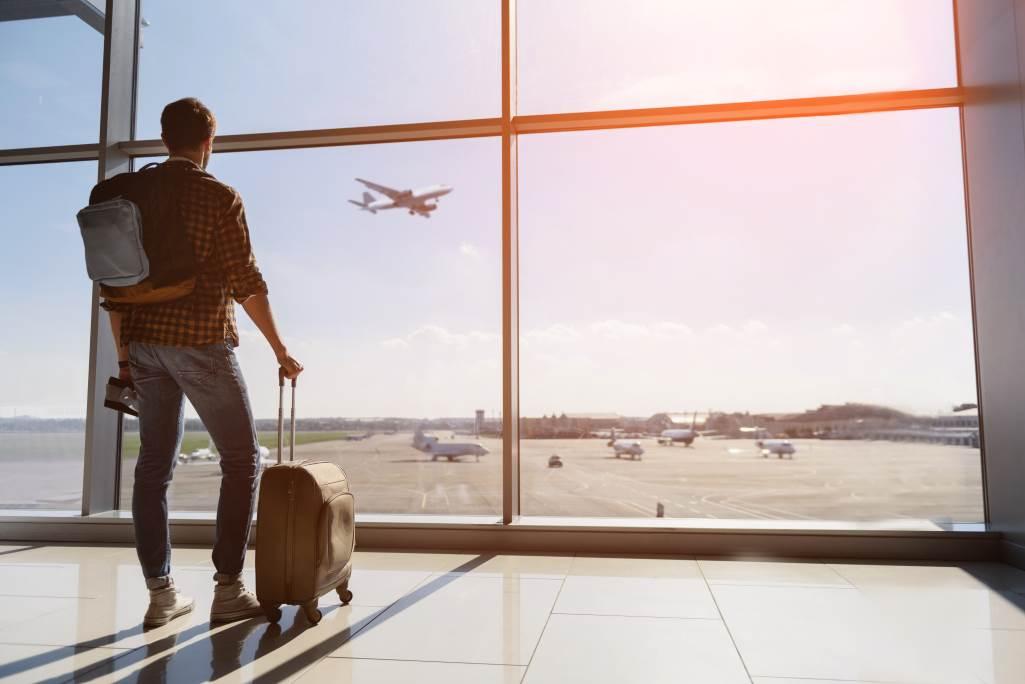
COVID-19 and travelling to Latvia
- COVID-19 travel restrictions were lifted in Latvia. There is no need to present a certificate of vaccination, recovery from COVID-19 or negative test results.
- Facemasks and respirators must be worn in health care and social care facilities.
- It is still advisable to practice good hand and cough hygiene and do not travel if having any symptoms.
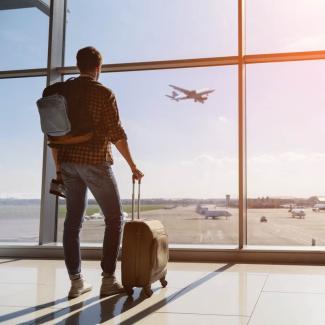
“Stop Covid” application
COVID-19 in Latvia website
Re-open EU interactive tool
Nomadic Matt's Travel Site
Travel Better, Cheaper, Longer
Latvia Travel Guide
Last Updated: August 31, 2023
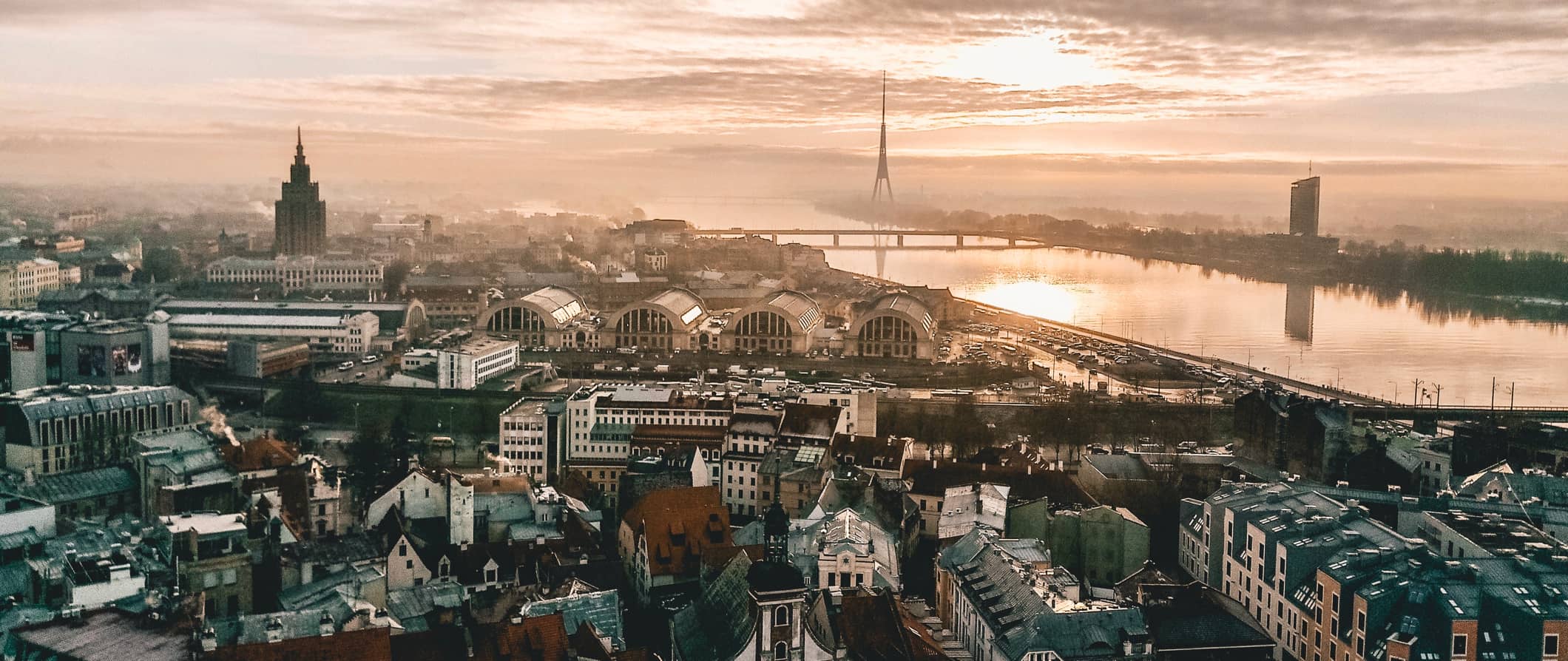
Located on the Baltic Sea between Lithuania and Estonia , Latvia is a country often overlooked by travelers to Europe.
Yet this unappreciated country is affordable, safe, and offers a beautiful landscape dotted by wide beaches, ancient castles, and dense, sprawling forests.
Latvia’s capital, Riga, is home to a huge central market, art nouveau architecture, and a charming medieval Old Town. The country has lots of opportunities for outdoor adventures, tons of beaches along its 500 kilometers (310 miles) of coastline, and it’s home to Europe’s widest waterfall.
This travel guide to Latvia can help you plan your trip, save money, and make the most out of your time in this Baltic gem!
Table of Contents
- Things to See and Do
- Typical Costs
- Suggested Budget
- Money-Saving Tips
- Where to Stay
- How to Get Around
- How to Stay Safe
- Best Places to Book Your Trip
- Related Blogs on Latvia
Top 5 Things to See and Do in Latvia
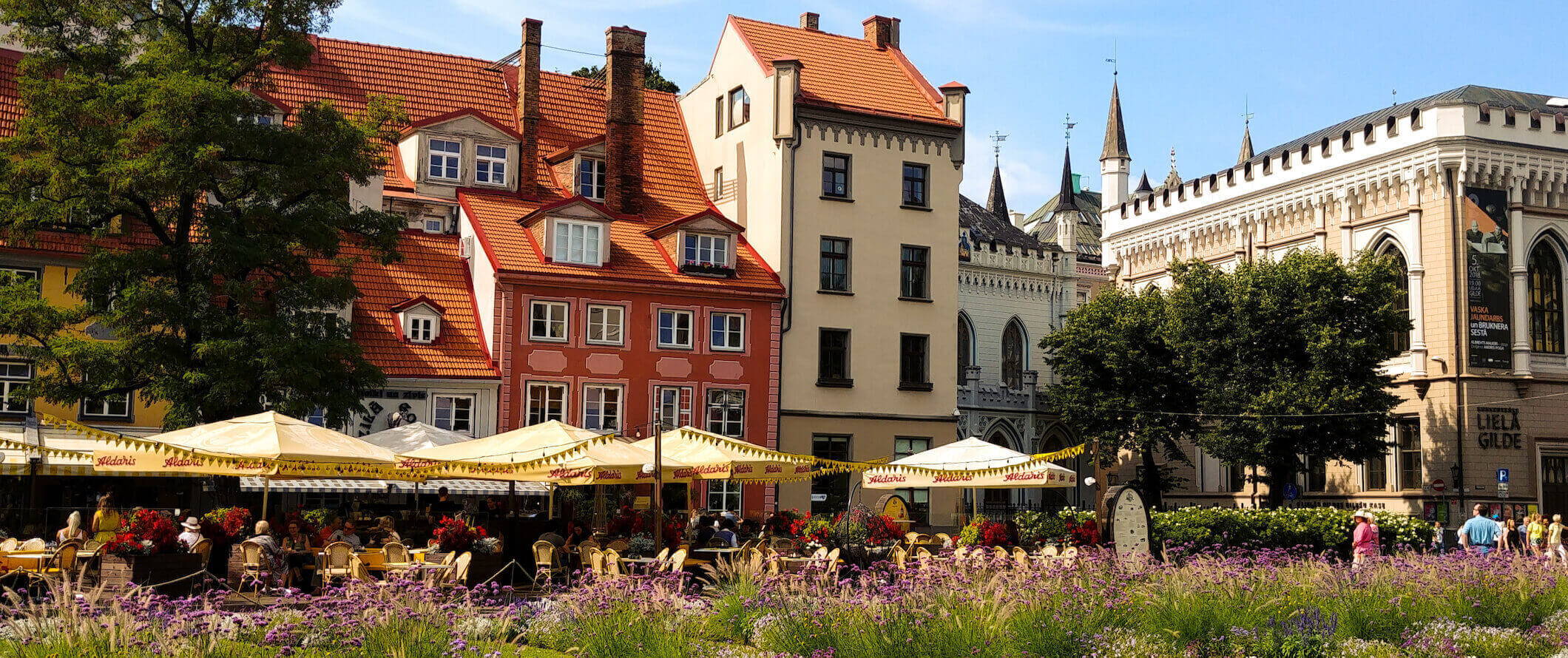
1. Explore Riga
Riga is the capital of Latvia. It has Romantic, Gothic, and Baroque architecture dating back to when the city was a powerful medieval port, and the city also has over 800 Art Nouveau buildings, an Open-Air Museum, and a massive central market. The medieval Old Town is pedestrian only and is full of shops and restaurants. Nearby you’ll find the trendy Livu Square, which is the best spot to experience nightlife at the bars and clubs. It’s a lively, fun capital!
2. Relax in a traditional sauna
Like much of northern Europe, saunas in Latvia are an important part of the culture. There is a firm belief that the sauna practice purifies the body and spirit. Saunas are called pirts in Latvia, and they are traditionally wet saunas. By pouring water over hot stones, steam is created. Many of the saunas in Latvia will have a pirtniek , or sauna expert, who has undergone training to guide you through the sauna experience. You will rotate between the heat of the sauna and a cold pool as well as get swatted by switches of juniper or birch (to remove dead skin cells). Prices range from 15-35 EUR.
3. Go hiking in Gauja National Park
Located in the northeast and spanning almost 1,000 square kilometers (386 square miles), Gauja National Park is one of the most pristine examples of Latvian nature. Come here to hike, bike, and enjoy the views along the Gauja River. The 10,000-year-old Gutman’s Cave can be found here too. Thrill seekers can try bungee jumping from a cable car or zipline through the forests, but if you’re in search of a more relaxing adventure consider renting a canoe and floating down the Gauja River. Admission is free.
4. See castles in Sigulda
This region is considered “the Switzerland of Latvia.” In addition to the stunning landscape, there are several historic buildings here to explore, including the 19th century Krimulda Manor, Sigulda Castle, and the ruins of the 14th-century Krimulda Castle. In just a few minutes, you can drive north of Sigulda to the 11th century Turaida Castle, which is one of the most popular castles in Latvia. Built from beautiful red bricks, the castle features a tall cylinder-shaped tower surrounded by many other buildings. All of the structures have been converted into museums and galleries, such as the Folk Song Garden, which is full of sculptures of Latvian heroes and historical figures.
5. Visit the Rundale Palace
Built in two periods (1736-1740 and 1764-1768), this is like the Versailles of Latvia and was used for extravagant social events. It was originally intended to be a summer residence for Duke of Courland Ernst Johann von Biron, but construction froze when Biron was temporarily exiled. He finally finished his dream palace upon his return to Latvia and spent the rest of his life enjoying the beautiful estate. After his death, the property changed hands several times and was once given as a gift from Russia’s Catherine the Great to her lover’s brother. The Baroque and Rococo building is lavish and ornate with massive gardens and stately rooms. Admission is 13 EUR for the interior and gardens.
Other Things to See and Do in Latvia
1. visit jurmala.
Just a short 20-minute drive from Riga, the seaside town of Jurmala offers laid-back beaches and vibrant nightlife. Be sure to visit Dzintari forest park (which is home to 200-year-old trees and has several walking paths) and Mr. Morberg’s house, a 19th-century Neo-Gothic wooden house that looks and feels like a fairy-tale palace (the interior is both ornate and super colorful).
2. Go skiing
Cross-country skiing is one of the more popular winter pastimes in the country. For downhill skiing, there are slopes all across the country. Some suggested resorts and slopes to check out are Ozolkalns (Cesis), Victory Park (Riga), Vanagkalns (Cesis), and Milzkalns (Tukum). Expect to pay 10 EUR for a two-hour cross-country ski rental and 15 EUR for a lift pass (it’s one of the cheapest places to ski in Europe).
3. Explore Ventspils
Situated on the coast of the Baltic Sea, this city is a massive port and important commercial hub. If you aren’t into watching the ships come and go, head out to the town’s beaches where you can swim and sunbathe. There is a separate section for surfing (and kitesurfing) and even one for nudists! If you’re traveling with kids, there’s a waterpark in town too.
4. Visit Latgale
The region of Latgale sits in the eastern part of the country and is known as the Land of Blue Lakes thanks to its many picturesque lakes. The region has its own dialect and is perfect for camping, hiking, and enjoying the water. The area is also known for its delicious cheeses since there are tons of small farms here. You can base yourself in Daugavpils, the region’s largest city, or stay in some of the many cozy cottages or B&Bs around the countryside. Note: This region is best explored by car since public transportation is limited.
5. See the Corner House
The Corner House is the former headquarters of the Latvian KGB (the secret police). Situated in an Art Nouveau building in the center of Riga, today it serves as a dark reminder of the brutal tactics they employed during the Russian occupation (which lasted from 1940-1991). It’s where political prisoners would be brought for torture and interrogation. Admission is by donation and guided tours are available for 10 EUR. It’s sobering but informative.
6. Visit the Seaside Open-Air Museum
Located in Ventspils, the Seaside Open-Air Museum is dedicated to Latvia’s history, with a special focus on fishing and boating. There is a whole section dedicated to teaching traditional Latvian fishing techniques practiced in the region from the 18th century onwards, complete with replica fisherman’s houses, farmhouses, smokehouses, and local craftsmen offering visitors a display of their traditional crafting skills in action. Admission is 2 EUR.
7. Visit 1920s Latvia
Built in 2004 as the film set for the historical drama Defenders of Riga , the complex is a complete replica of 1920s Latvia (the film depicts Latvia in 1919 during its war for independence). Set on 370 acres of land, it includes a small town, a ‘Riga-esque’ city, and traditional Latvian farmland. When it isn’t in use as a film set, it is possible to visit the set and is a neat day trip for movie buffs.
8. Sleep in a prison
Located on the west coast in Liepaja, Karosta Prison is no longer in use (it shut down in 1997) but has reopened to tourists. It’s the only military prison in Europe open to tourists. You can take a day tour or book the full overnight experience. Ghost Hunters International once called Karosta Prison “the most haunted place in the world” so be prepared for a spooky stay. Tours are 7 EUR while overnight rooms start at 24 EUR (breakfast is an additional 5 EUR).
9. See a ballet or opera
The Latvian National Opera is home to both the Latvian National Opera and the Latvian National Ballet company. There are a variety of different performances held here including classical and contemporary dance, opera, traditional Latvian folk stories, and children’s plays. With over 200 performances each season, there is plenty to choose from. Tickets for performances start at just 5 EUR.
10. Celebrate Midsummer
In Latvia, the most important holiday is midsummer (the summer solstice). In the Latvian tradition, people stay awake for the whole night so they can greet the rising sun. There are public events across the country where they light bonfires, eat, drink, and dance all night. However, Midsummer in Latvia isn’t actually celebrated on solstice day — it’s always celebrated on the same day each year (June 23rd).
11. Get lost in Europe’s biggest market
The central market in Riga is a UNESCO Heritage Site and is the largest market in Europe. Opened in 1930, between 80,000-100,000 people visit each day. In addition to the standard fresh produce, fish, and meat, there are food stalls, souvenir stands, bars, and everything in between. Come here with an appetite and spend some time wandering the stalls and sampling all the offerings.
12. Stroll along the Great Kemeri Bog Boardwalk
Located in Kemeri National Park just outside of Jurmala, the Great Kemeri Bog Boardwalk lets you explore the inaccessible landscape of the marshland park. Established in 1997, the park offers a 3.7km loop that takes about 90 minutes to walk. There are all kinds of bogs, marshes, and lakes dotting the landscape as well as geese and cranes. Admission to the park is free.
13. Visit the House of the Black Heads
Now a museum, this 14th-century building was built in the old town of Riga for the Brotherhood of Blackheads. The brotherhood was a guild for unmarried merchants, shipowners, and foreigners in Riga. The building had major works done in the early 17th century and it was extensively updated after it was bombed and destroyed in 1941. There are all kinds of artifacts here (pottery, paintings, silverware, etc.) and the space is often used for concerts and events. Admission is 8 or 9 EUR with a cup of coffee or a glass of sparkling wine respectively.
14. Explore Cesis Castle
The foundations of Cesis Castle were laid 800 years ago and the castle has had a violent history since that time, including when it was besieged by Ivan the Terrible’s army in 1577. The castle fell into disuse after the Great Northern War (1700-1721) but remains one of the most iconic and best-preserved medieval castles in Latvia. Admission varies by season so check the website for details. Guided tours in English cost 35 EUR. Cesis is just northeast of Riga.
Latvia Travel Costs
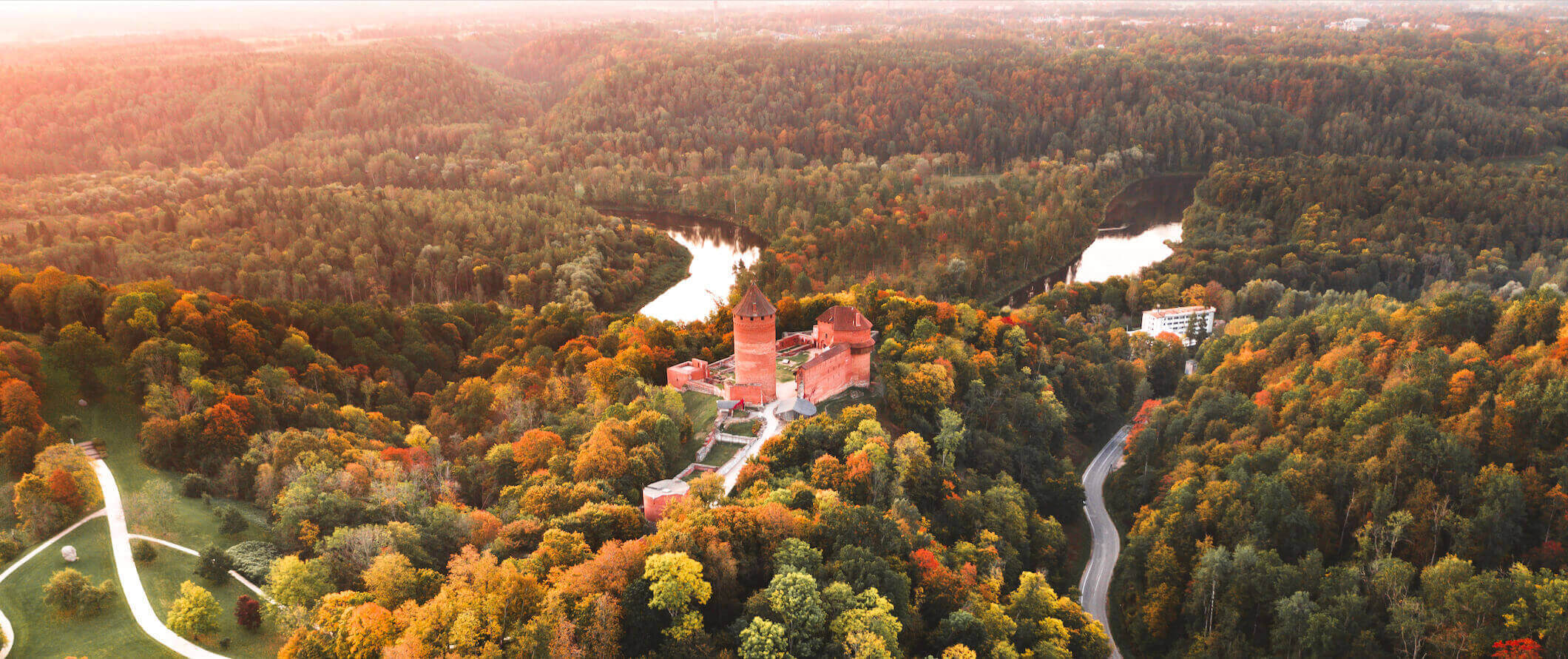
Accommodation – Hostel dorms start at 15 EUR per night for a dorm with 8 beds or more. For a smaller dorm with 4-6 beds, expect to pay around 26 EUR. Free Wi-Fi is standard, as are self-catering facilities. Private rooms in hostels are less common and cost between 20-60 EUR. Prices are fairly stable between the high and low seasons.
For anyone traveling with a tent, camping is available around the country. Moreover, wild camping is legal as long as you are on government land. If you do want to stay in a campground, basic plots without electricity access at 7.50 EUR.
Budget hotels and guesthouses start at 30 EUR per night. Free Wi-Fi, coffee/tea maker, TV, A/C, and self-catering facilities are all common.
Airbnb is available around the country with private rooms starting at 15 EUR per night but averaging around 25-40 EUR. For an entire home or apartment, expect to pay 50-80 EUR (prices can be even higher in the summer).
Food – Much like their Baltic and Scandinavian neighbors, Latvian cuisine emphasizes meat, potatoes, and seafood. Dishes like cabbage soup, mashed peas and pork, and pelmeni (Russian ravioli) are some common favorites found at most restaurants. Pelekie zirni ar speki is the national dish, a stew made from peas, onions, and diced speck.
Cheap street food (like hot dogs and sausages) costs around 3-5 EUR while a meal at an inexpensive restaurant costs 7 EUR.
Many restaurants offer a “business lunch,” a fixed-price menu that consists of a starter, main course, and drink. Also known locally as “complex lunches,” prices for these meals vary from 5-8 EUR.
A three-course meal at a mid-range restaurant costs 25 EUR, while Chinese, Indian, or Thai (which can only be found in the larger cities) are usually under 10 EUR for a main dish.
Fast food (think McDonald’s) costs 7 EUR for a combo meal. A beer or latte costs 3-4 EUR. Bottled water is around 1 EUR.
If you are planning to cook your own food, a week’s worth of groceries costs 40-50 EUR for basic staples like vegetables, pasta, rice, and some meat or seafood.
Backpacking Latvia Suggested Budgets
On a backpacker budget of 45 EUR per day, you can stay in a hostel dorm, cook all of your meals, limit your drinking, take public transportation to get around, and do mostly free activities like hiking and enjoying the beaches. If you plan on drinking, add 5-10 EUR to your daily budget.
On a mid-range budget of 110 EUR per day, you can stay in an Airbnb, eat out for most of your meals, enjoy a few drinks, take the occasional taxi to get around, and do more paid activities like visiting museums and castles or going kayaking.
On a “luxury” budget of 215 EUR or more per day, you can stay in a hotel, eat out anywhere you want, drink more, rent a car to get around, and do whatever tours and activities you want. This is just the ground floor for luxury though. The sky is the limit!
You can use the chart below to get some idea of how much you need to budget daily, depending on your travel style. Keep in mind these are daily averages — some days you’ll spend more, some days you’ll spend less (you might spend less every day). We just want to give you a general idea of how to make your budget. Prices are in EUR.
Latvia Travel Guide: Money-Saving Tips
Latvia is a pretty affordable place to visit. You’ll be hard-pressed to spend a lot of money here unless you are going for fancy meals and accommodation. That said, it never hurts to save even more money! Here are some of the best ways to save money during your visit:
- Take a free walking tour – Riga offers a handful of free walking tours. They’re a great way to get familiar with the city and the culture. Just be sure to tip your guide!
- Take the bus – FlixBus is budget-friendly way to get around the country. They have Wi-Fi, electrical outlets, and decent enough seats for overnight and long-haul bus journeys.
- Cook your own meals – Some hostels here don’t include kitchen facilities, so if you want to save money make sure you book accommodation that does. Buying your own groceries may not be as glamorous as going out to eat, but it definitely saves you money!
- Wild camp – If you really want to save money, bring a tent and wild camp. It’s legal, safe, and free!
- Stay with a local – Staying with a local via Couchsurfing is a great way to not only save money but you get to meet a knowledgeable local who can share their insider tips and advice.
- Walk everywhere – All of the major cities in Latvia are quite walkable, so skip the public transportation if you want to save a few extra euros.
- Enjoy the free spaces – There are plenty of free parks as well as many free hiking trails around the country. Save your budget and enjoy the outdoors!
- Bring a water bottle – The tap water here is safe to drink so bring a reusable water bottle to save money and reduce your plastic use. LifeStraw is my go-to brand as their bottles have built-in filters to ensure your water is always clean and safe.
Where to Stay in Latvia
There are hostels in most of Latvia’s larger cities. Here are some of my suggested places to stay:
- Cinnamon Sally Backpackers Hostel (Riga)
- The Naughty Squirrel Backpackers Hostel (Riga)
- Tree House Hostel (Riga)
- Central Hostel Jelgava (Jelgava)
How to Get Around Latvia
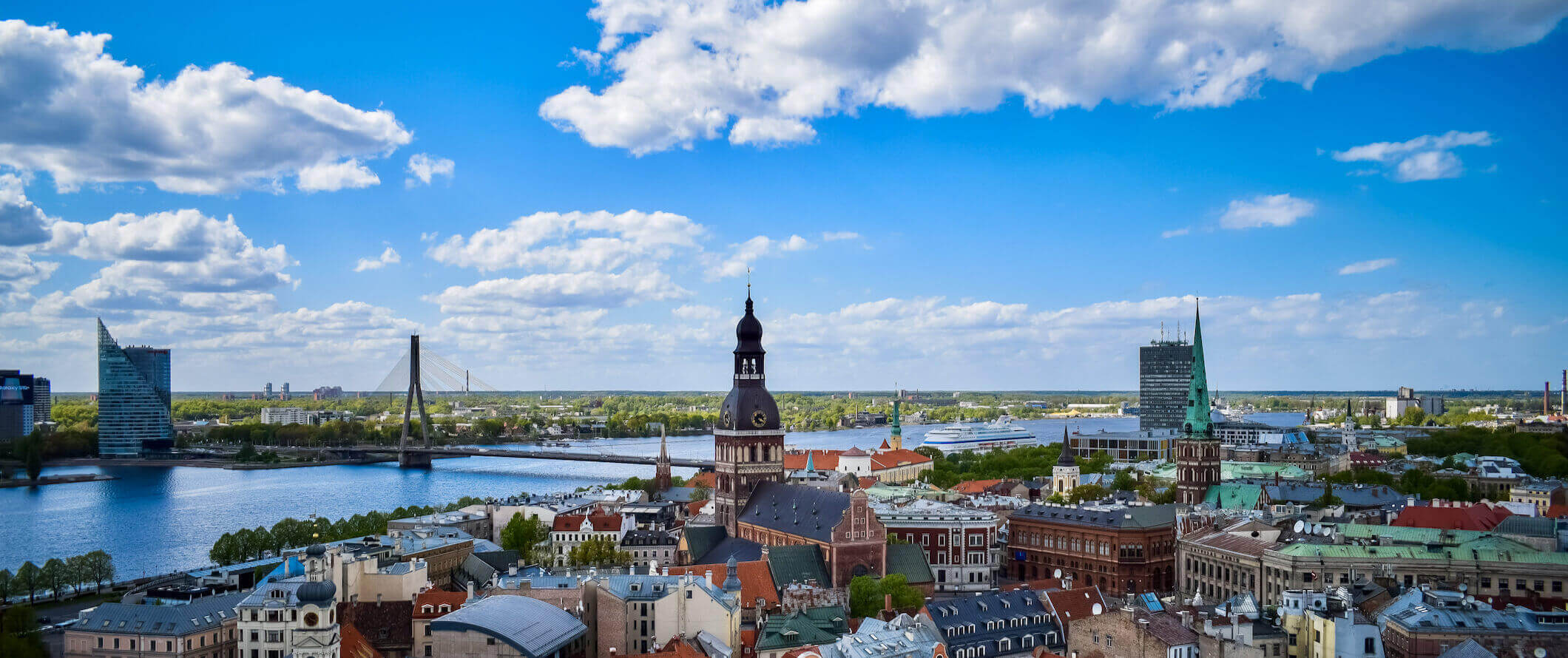
Public transportation – None of the Latvian cities have subways or elevated transport lines which means public transport can often be slow. In fact, public transportation outside of Riga is limited.
Prices vary by city but expect to pay around 1.15 EUR for a standard adult ticket if you pay in advance. You can buy tickets onboard but they cost more (around 2 EUR).
In Riga, you can buy a 24-hour pass for 5 EUR, a 3-day pass for 10 EUR, or a 5-day pass for 15 EUR.
Taxi – Prices start around 2 EUR and cost around 0.70 EUR for every kilometer. Skip the taxis if you can — they add up fast!
Bus – If you are traveling outside of Riga’s suburban railway lines then taking a bus is the best option. Expect to pay 10 EUR or less for most trips. Riga to Ventspils, for example, takes three hours and costs about 10 EUR.
If you are continuing to neighboring countries, the bus is the most common mode of transport. On average, a bus from Latvia to Lithuania costs around 12 EUR. The four-hour ride from Riga to Tallinn, Estonia costs about the same.
Train – Train travel is limited and mostly centers around places you can do as day trips from Riga. Some of the most popular places you can travel from Riga to by train are Jurmala, Gauja National Park, and Daugavpils. Anywhere further afield is better accessed by bus. You can pretty much travel anywhere in the country for under 20 EUR.
Flying – There are no budget airlines operating domestically around Latvia (it’s a small country) but you can get cheap flights in and out of Riga with Air Baltic.
Car rental – I would not advise inexperienced drivers to drive in Latvia. It’s known to be one of the most dangerous countries in Europe to drive in. However, if you are driving you need an International Driving Permit (IDP). Car rentals can be as low as 15 EUR per day for a multi-day rental.
For the best car rental prices, use Discover Cars .
When to Go to Latvia
The best time to visit Latvia is from April through September. The summer months of July and August are the warmest (and make up the country’s busy season). Expect temperatures around 22°C (71°F).
During autumn, the shoreline, wetlands, and forests come alive with bird migrations. The national parks are particularly beautiful at this time of year with the changing colors, and it’s nice and cool for hiking.
Temperatures drop below freezing in the winter, so unless you’re coming for winter sports, I’d skip a winter visit to Latvia.
Be warned though, no matter what time of year you choose to visit, showers are common and unpredictable. Make sure you always have a raincoat handy.
How to Stay Safe in Latvia
Latvia is a safe country to travel. They have a low crime rate and even pickpocketing in the cities isn’t that common. That said, it’s always a good idea to keep your wits about you, keep your valuables secure, and avoid flashing things like jewelry around in public.
One danger you do need to be aware of in Latvia is when traveling by road. Latvia is notorious for bad driving — even crossing the street can be dangerous. Take extra caution if you rent a car. Additionally, don’t leave any valuables in your car overnight or when out hiking. Theft is rare, but it’s better to be safe than sorry!
Solo female travelers should generally feel safe here, however, the standard precautions apply (never leave your drink unattended at the bar, never walk home alone intoxicated, etc.).
While scams here are rare, you can read about common travel scams to avoid .
The most important piece of advice I can offer is to purchase good travel insurance. Travel insurance protects you against illness, injury, theft, and cancellations. It’s comprehensive protection in case anything goes wrong. I never go on a trip without it as I’ve had to use it many times in the past. You can use the widget below to find the policy right for you:
Latvia Travel Guide: The Best Booking Resources
These are my favorite companies to use when I travel. They consistently have the best deals, offer world-class customer service and great value, and overall, are better than their competitors. They are the companies I use the most and are always the starting point in my search for travel deals.
- Skyscanner – Skyscanner is my favorite flight search engine. They search small websites and budget airlines that larger search sites tend to miss. They are hands down the number one place to start.
- Hostelworld – This is the best hostel accommodation site out there with the largest inventory, best search interface, and widest availability.
- Booking.com – The best all around booking site that constantly provides the cheapest and lowest rates. They have the widest selection of budget accommodation. In all my tests, they’ve always had the cheapest rates out of all the booking websites.
- HostelPass – This new card gives you up to 20% off hostels throughout Europe. It’s a great way to save money. They’re constantly adding new hostels too. I’ve always wanted something like this and glad it finallt exists.
- Get Your Guide – Get Your Guide is a huge online marketplace for tours and excursions. They have tons of tour options available in cities all around the world, including everything from cooking classes, walking tours, street art lessons, and more!
- The Man in Seat 61 – This website is the ultimate guide to train travel anywhere in the world. They have the most comprehensive information on routes, times, prices, and train conditions. If you are planning a long train journey or some epic train trip, consult this site.
- Rome2Rio – This website allows you to see how to get from point A to point B the best and cheapest way possible. It will give you all the bus, train, plane, or boat routes that can get you there as well as how much they cost.
- FlixBus – Flixbus has routes between 20 European countries with prices starting as low 5 EUR! Their buses include WiFi, electrical outlets, a free checked bag.
- SafetyWing – Safety Wing offers convenient and affordable plans tailored to digital nomads and long-term travelers. They have cheap monthly plans, great customer service, and an easy-to-use claims process that makes it perfect for those on the road.
- LifeStraw – My go-to company for reusable water bottles with built-in filters so you can ensure your drinking water is always clean and safe.
- Unbound Merino – They make lightweight, durable, easy-to-clean travel clothing.
- Top Travel Credit Cards – Points are the best way to cut down travel expenses. Here’s my favorite point earning credit cards so you can get free travel!
Latvia Travel Guide: Related Articles
Want more info? Check out all the articles I’ve written on backpacking/traveling Europe and continue planning your trip:
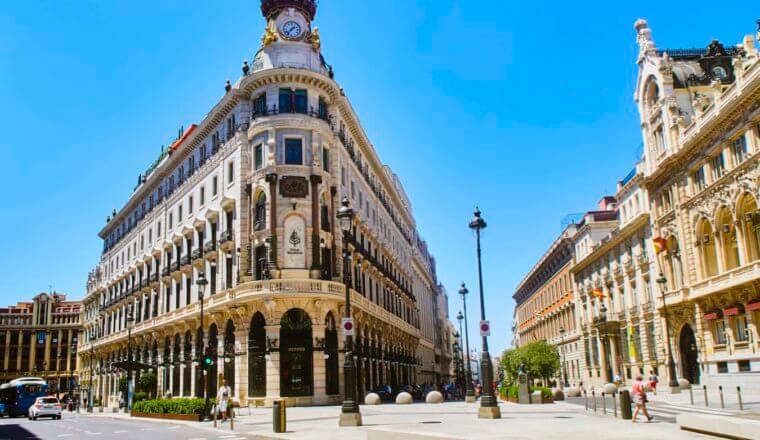
The 7 Best Hotels in Madrid
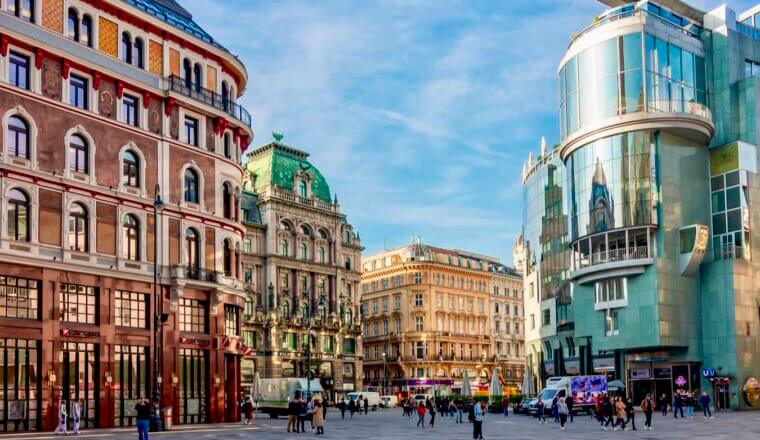
The 6 Best Hotels in Vienna
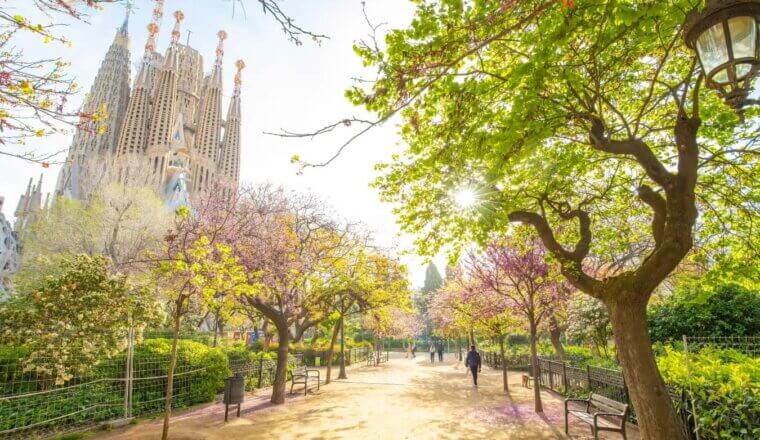
The Best Walking Tours in Barcelona
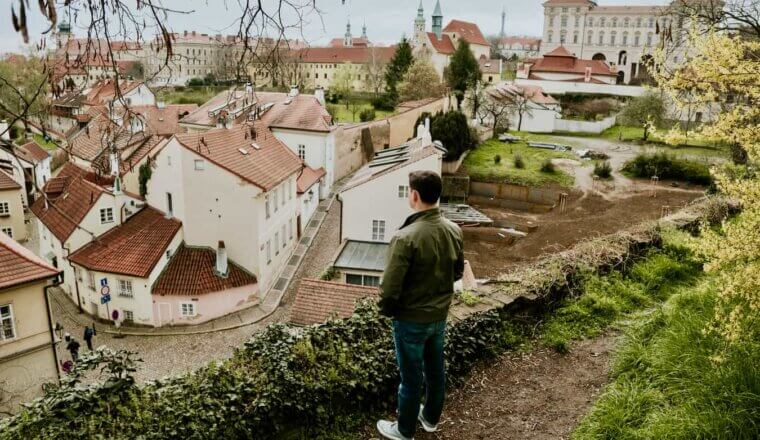
How to Be a Digital Nomad in Europe

The Best eSIM for Traveling Europe
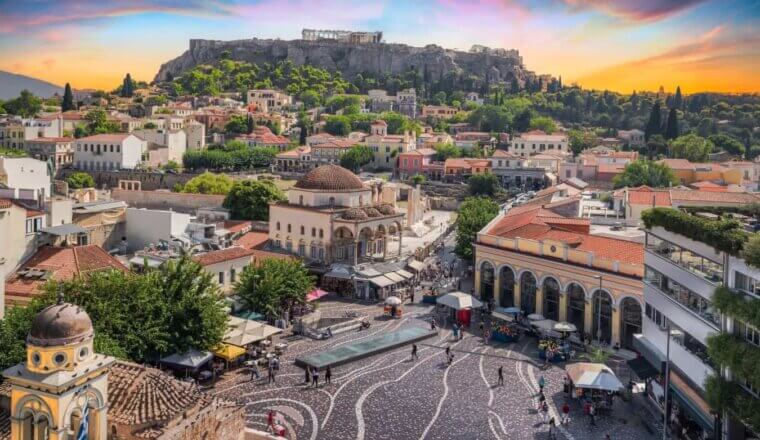
The 6 Best Hotels in Athens
Get my best stuff sent straight to you, pin it on pinterest.
- Where To Stay
- Transportation
- Booking Resources
- Related Blogs

Search Smartraveller

Latest update
Exercise normal safety precautions overall in Latvia.
Higher levels apply in some areas.
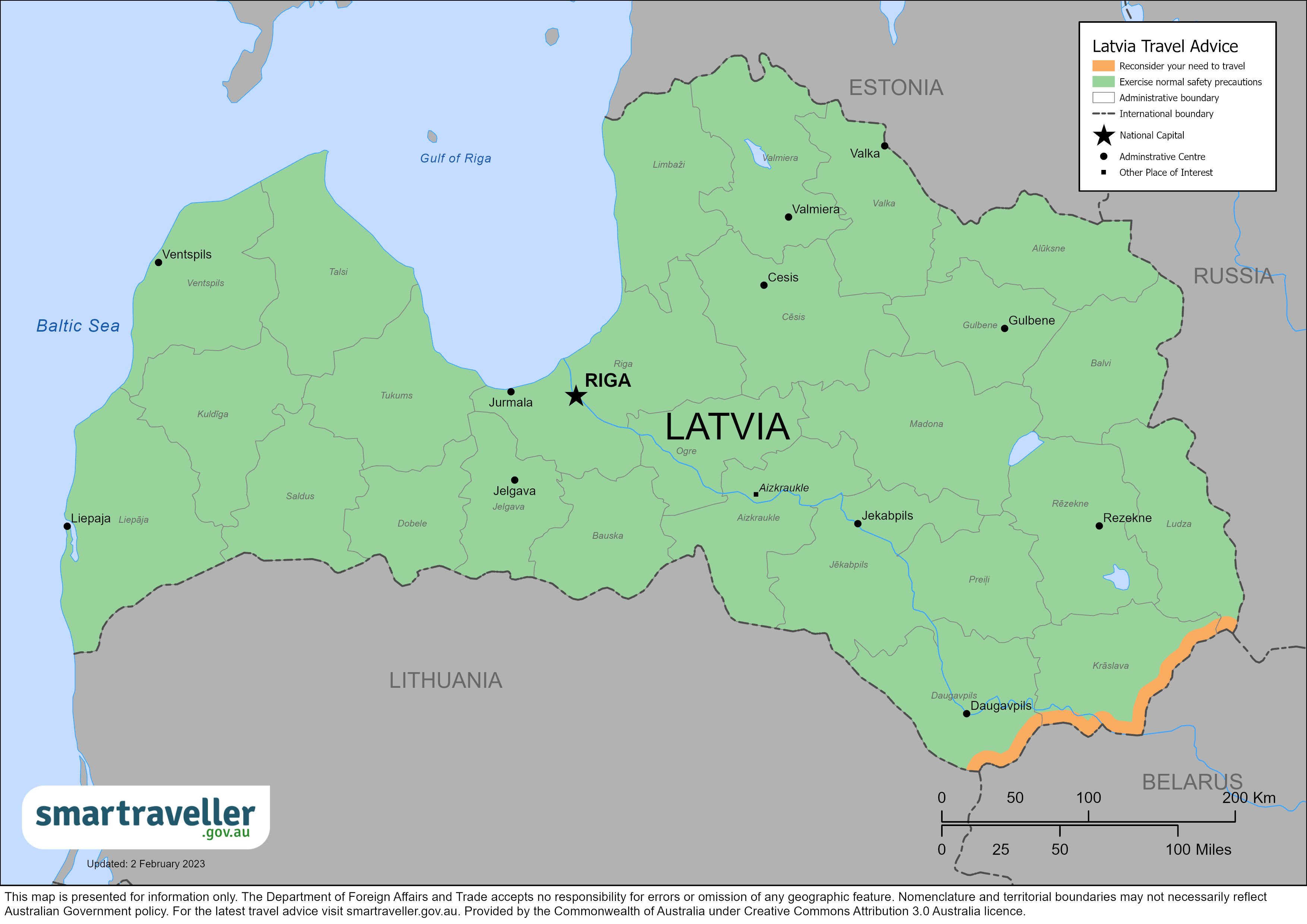
Latvia (PDF 225.75 KB)
Europe (PDF 2.62 MB)
Local emergency contacts
Fire and rescue services, medical emergencies.
Call 112 for social welfare emergencies, such as domestic violence or child abuse.
Advice levels
Exercise normal safety precautions in Latvia.
Reconsider your need to travel to areas near the border with Belarus.
Reconsider your need to travel to areas near the border with Belarus due to ongoing civil unrest.
The security environment at the Belarusian border could deteriorate at short notice. If you're in these areas, carry ID with you at all times and follow the advice of local authorities.
- Petty crime is common, particularly in Riga. This includes bag snatching, pickpocketing and muggings. Hotspots include Old Town, the central train and bus stations, the Central Market, parks, and routes to major hotels. Take care of your belongings.
- Check the price of drinks before ordering. Tourists are sometimes overcharged. Credit card fraud also occurs in shops, restaurants, bars and nightclubs. Watch your card during transactions. Don't sign blank credit card slips.
- Criminals may spike drinks in bars and casinos. Don't leave your drinks unattended.
Full travel advice: Safety
- Public medical facilities are good in larger cities but more limited in rural areas. Private facilities are of a similar standard to those in Australia. You may need to pay up-front.
- If you're seriously ill or injured, you may need medical evacuation. Ensure your travel insurance covers this.
Full travel advice: Health
- Don't use or carry illegal drugs. Penalties are severe, even for small amounts. They include jail terms and heavy fines.
- Don't drink alcohol in public except in designated areas. Authorities may fine you for carrying open beer or wine containers.
- Check with local officials before you export religious materials or antiques. There are restrictions on what you can export.
- Latvia recognises dual nationality. Contact the nearest Latvian embassy or consulate for details. Always travel on your Australian passport.
Full travel advice: Local laws
- Entry and exit conditions can change at short notice. You should contact the nearest embassy or consulate of Latvia for the latest details.
- Latvia is part of the Schengen area with many other European countries. See Smartraveller for information on visa and entry requirements.
- Selected land borders between Latvia and Russia/Belarus remain open for travel via car except for vehicles registered in Russia carrying Russian license plates. These vehicles will be refused entry into Latvia. Commercial bus routes are also available. There are no passenger rail options currently running between Russia/Belarus and Latvia. Australians seeking to cross will need to comply with Latvian border rules and requirements. Visit the Latvian Border Guard website before crossing for more information.
- Latvia has temporarily suspended visas for Russian citizens. This may extend to Russian citizens who are family members of Australian citizens.
Full travel advice: Travel
Local contacts
- The Consular Services Charter details what we can and can't do to help you overseas.
- The Australian Consulate in Riga provides limited consular help. It doesn't offer visa, passport or immigration services.
- Contact the Australian Embassy in Sweden for full consular services.
- To stay up to date with local information, follow the embassy’s social media accounts.
Full travel advice: Local contacts
Full advice
Petty crime.
Petty crime is common, particularly in Riga Old Town. This can include:
- bag snatching
- pickpocketing
Hotspots for pickpockets include:
- central train and bus stations
- Riga Central Market
- routes to major hotels
Pickpockets usually operate in groups.
Drink spiking
Criminals may spike drinks in bars and casinos.
To protect yourself from spiking:
- never accept food or drinks from strangers
- don't leave your food or drink unattended
Scams and fraud
Reports of tourists being overcharged for drinks at restaurants and tourist pubs have declined. However, check drink prices before you order.
Credit card scams occur in places popular with tourists, such as:
- restaurants
Always keep your card in sight. Don't sign blank credit card slips.
Internet crime also happens, including online dating and financial scams.
Road-based crime
Car theft is common, particularly in Riga.
To protect yourself:
- use secure and well-lit car parks
- don't leave valuables in a vehicle
Cyber security
You may be at risk of cyber-based threats during overseas travel to any country. Digital identity theft is a growing concern. Your devices and personal data can be compromised, especially if you're connecting to Wi-Fi, using or connecting to shared or public computers, or to Bluetooth.
Social media can also be risky in destinations where there are social or political tensions or laws that may seem unreasonable by Australian standards. Travellers have been arrested for things they have said on social media. Don't comment on local or political events on your social media.
More information:
- Cyber security when travelling overseas
Civil unrest and political tension
Border areas.
Demonstrations
Civil unrest is uncommon.
However, public protests and events that draw large groups of people can turn violent.
If you're in an area where protests have happened:
- monitor the media
- follow the advice of local authorities
More information:
Demonstrations and civil unrest
While there have been no recent terrorist attacks in Latvia, they can still happen.
There's an ongoing threat of terrorism in Europe. Terrorists have staged attacks in several European cities.
The Latvian State Security Service assesses Latvia's terrorist threat level as low.
Terrorism is a threat worldwide.
Climate and natural disasters
Severe weather.
Latvia experiences extremely cold winters and heavy snowfall. This can affect major metropolitan areas.
Severe weather can delay transport and temporarily shut down infrastructure.
Flooding may occur in spring, from March to May.
If there's a natural disaster or extreme weather:
- use common sense
- monitor the news and other local sources for up-to-date information
Register with the Global Disaster Alert and Coordination System to receive alerts on major disasters.
Travel Insurance
Get comprehensive travel insurance before you leave. Your policy needs to cover all overseas medical costs, including medical evacuation. The Australian Government won't pay for these costs. If you can't afford travel insurance, you can't afford to travel. This applies to everyone, no matter how healthy and fit you are.
If you're not insured, you may have to pay many thousands of dollars up-front for medical care.
- what activities and care your policy covers
- that your insurance covers you for the whole time you'll be away
Physical and mental health
Consider your physical and mental health before you travel, especially if you have an existing medical condition.
See your doctor or travel clinic to:
- have a basic health check-up
- ask if your travel plans may affect your health
- plan any vaccinations you need
Do this at least 8 weeks before you leave.
If you have immediate concerns for your welfare or the welfare of another Australian, call emergency services on 112, and for emergency consular assistance, call the 24-hour Consular Emergency Centre on +61 2 6261 3305 or contact your nearest Australian Embassy, High Commission or Consulate to discuss counselling hotlines and services available in your location.
- General health advice
- Healthy holiday tips (Healthdirect Australia)

Medications
Not all medications available over the counter or by prescription in Australia are available in other countries. Some may even be considered illegal or a controlled substance, even if prescribed by an Australian doctor.
If you plan to bring medication, check if it's legal in Latvia. Take enough legal medication for your trip.
Carry a copy of your prescription or a letter from your doctor stating:
- what the medication is
- your required dosage
- that it's for personal use
Health risks
Insect-borne illnesses.
Tick-borne encephalitis and other tick-borne diseases are a risk in forest areas.
Ticks are active from spring to autumn: March to November.
To protect yourself from disease:
- use insect repellent
- wear long, loose, light-coloured clothing
- check your body for ticks during and after forest visits
If a tick bites you:
- remove it from your body as soon as possible
- make sure you remove the whole tick
- monitor the site for signs of infection
- Tick bite prevention
Other health risks
- Hepatitis A
- Tuberculosis
Waterborne, foodborne, parasitic and other infectious diseases can also occur. Water contamination may be a problem in rural areas.
To protect yourself from illness:
- boil all drinking water or drink bottled water with intact seals
- avoid ice cubes
- avoid uncooked and undercooked food, such as salads
Seek medical advice if you suspect food poisoning or have a fever or diarrhoea.
Medical care
Medical facilities.
In large cities, the standard of public medical facilities is good. However, in rural areas, public medical facilities may be more limited.
Most private medical facilities are well-equipped. Services are of a similar standard to those in Australia.
You may need to pay doctors and hospitals up-front before they'll treat you.
If you become seriously ill or injured, you may need to evacuate to a place with better facilities. Medical evacuation can be very expensive.
You're subject to all local laws and penalties, including those that may appear harsh by Australian standards. Research local laws before travelling.
If you're arrested or jailed, the Australian Government will do what it can to help you under our Consular Services Charter . But we can't get you out of trouble or out of jail.
Penalties are severe for drug offences, including for possessing small amounts of drugs. Penalties may include long jail terms and heavy fines.
- Carrying or using drugs
- Partying safely
You can't drink alcohol in a public place unless it's in a designated area. Authorities often issue fines to people for walking with open beer or wine containers.
Authorities also strictly control the export of:
- religious materials
If you're in doubt, check with local authorities. Before you buy an item, ask authorities whether you're allowed to export it.
Australian laws
Some Australian criminal laws still apply when you're overseas. If you break these laws, you may face prosecution in Australia.
Staying within the law and respecting customs
Dual citizenship
Latvian authorities recognise dual nationality.
For information on dual citizenship or to check your status, contact the nearest embassy or consulate of Latvia .
Travel on your Australian passport at all times.
Dual nationals
Visas and border measures
Every country or territory decides who can enter or leave through its borders. For specific information about the evidence you'll need to enter a foreign destination, check with the nearest embassy, consulate or immigration department of the destination you're entering.
Latvia is part of the Schengen Area with many other European countries. This means you can enter Latvia without a visa in some cases.
In other situations, you'll need to get a visa.
When you first enter the Schengen Area, get an entry stamp in your passport from border control staff.
Entry and exit conditions can change at short notice. Contact the embassy of Latvia in Canberra for the latest details about visas, currency and customs.
For more information about visa requirements, refer to the Latvian Office of Citizenship and Migration Affairs .
Entry into Latvia
To enter Latvia, you must have a valid health insurance policy. Your cover must include any health-related expenses during your stay, including the cost of flying you home. If you don't have adequate insurance, authorities may ask you to buy a policy when you arrive.
- Latvian Ministry of Foreign Affairs
- Riga airport
- Office of Citizenship and Migration Affairs
Some countries won't let you enter unless your passport is valid for 6 months after you plan to leave that country. This can apply even if you're just transiting or stopping over.
Some foreign governments and airlines apply the rule inconsistently. Travellers can receive conflicting advice from different sources.
You can end up stranded if your passport is not valid for more than 6 months.
The Australian Government does not set these rules. Check your passport's expiry date before you travel. If you're not sure it'll be valid for long enough, consider getting a new passport .
Authorities may ask you to verify your identity while you're in Latvia. Always carry:
- your passport
- your Latvian residency permit, if you have one
Lost or stolen passport
Your passport is a valuable document. It's attractive to people who may try to use your identity to commit crimes.
Some people may try to trick you into giving them your passport. Always keep it in a safe place.
If your passport is lost or stolen, tell the Australian Government as soon as possible:
- In Australia, contact the Australian Passport Information Service .
- If you're overseas, contact the nearest Australian embassy or consulate .
Passport with 'X' gender identifier
Although Australian passports comply with international standards for sex and gender, we can't guarantee that a passport showing an 'X' in the sex field will be accepted for entry or transit by another country. Contact the nearest embassy, high commission or consulate of your destination before you arrive at the border to confirm if authorities will accept passports with 'X' gender markers.
More information:
- LGBTI travellers
The local currency is the Euro.
Latvia is a member of the European Union (EU). If you're travelling between Latvia and any non-EU country, you must declare amounts over 10,000 euros or equivalent. This covers all forms of currency, not only cash.
You'll have to pay a fine when you enter or leave Latvia if you:
- don't declare this money
- give incorrect information
You don't need to declare currency if you're travelling between EU countries.
Local travel
Select land borders between Latvia and Russia/Belarus remain open for those travelling by car, except for vehicles registered in Russia carrying Russian license plates. These vehicles will be refused entry into Latvia. The situation may change with little notice, including which crossing points remain open.
Commercial bus routes are available. No passenger rail options are currently running between Russia/Belarus and Latvia.
You must comply with Latvian border rules and requirements.
Expect increased wait time and delays at the border with Russia . Visit the Border Guard website for the latest information on border crossings.
More information
- Latvian Border Guard website
- State Revenue Service of Latvia
International Driving Permit
If you plan to drive in Latvia, you are required to obtain an International Driving Permit (IDP). Get your IDP before you leave Australia.
Road travel
Driving can be dangerous. Hazards include:
- icy roads and low visibility in winter
- poorly maintained roads and vehicles
- dimly lit roads
You're more likely to die in a motor vehicle accident in Latvia than in Australia.
Learn the local road rules, including:
- always drive with headlights on
- fit winter tyres from around 1 December to 1 March (dates vary with weather conditions)
If you've been driving for less than 2 years, the blood alcohol limit is 0.02%. For everyone else, the limit is 0.05%.
Penalties for driving over the limit can include:
- a heavy fine
- a jail sentence
- losing your licence
- losing your vehicle permanently
- Driving or riding
Public transport
Public transport, including buses and trains, is generally reliable and safe.
Use official, well-marked taxis. These display yellow license plates.
- Transport and getting around safely
DFAT doesn't provide information on the safety of individual commercial airlines or flight paths.
Check Latvia's air safety profile with the Aviation Safety Network.
Emergencies
Depending on what you need, contact your:
- family and friends
- travel agent
- insurance provider
English-speaking operators are available.
The Riga tourist police unit has a 24-hour hotline in English. To report a crime, call 2 203 3000 or 67 181818.
Always get a police report when you report a crime.
Your insurer should have a 24-hour emergency number.
Consular contacts
Read the Consular Services Charter for what the Australian Government can and can't do to help you overseas.
Australia has a Consulate in Latvia headed by an Honorary Consul. The Consulate provides limited consular assistance. It does not provide visa and immigration services or passports. For full consular services, contact the Australian Embassy in Stockholm, Sweden.
Australian Consulate, Riga
Teikums Teodors Gustava Zemgala Gatve 74 Riga LV-1039 LATVIA Telephone: +371 29 509100 Email: [email protected]
Australian Embassy, Stockholm
Klarabergsviadukten 63, 8th Floor 111 64 Stockholm, Sweden Phone: +46 0 8 613 2900 Email: [email protected] Website: sweden.embassy.gov.au Facebook: Australian Embassy, Sweden
X (Twitter): @AusAmbSE
Check the Embassy website for details about opening hours and any temporary closures.
24-hour Consular Emergency Centre
In a consular emergency, if you can't contact an embassy, call the 24-hour Consular Emergency Centre on:
- +61 2 6261 3305 from overseas
- 1300 555 135 in Australia

Travelling to Latvia?
Sign up to get the latest travel advice updates..
Be the first to know official government advice when travelling.
You are using an outdated browser. Upgrade your browser today or install Google Chrome Frame to better experience this site.
Latvia Traveler View
Travel health notices, vaccines and medicines, non-vaccine-preventable diseases, stay healthy and safe.
- Packing List
After Your Trip
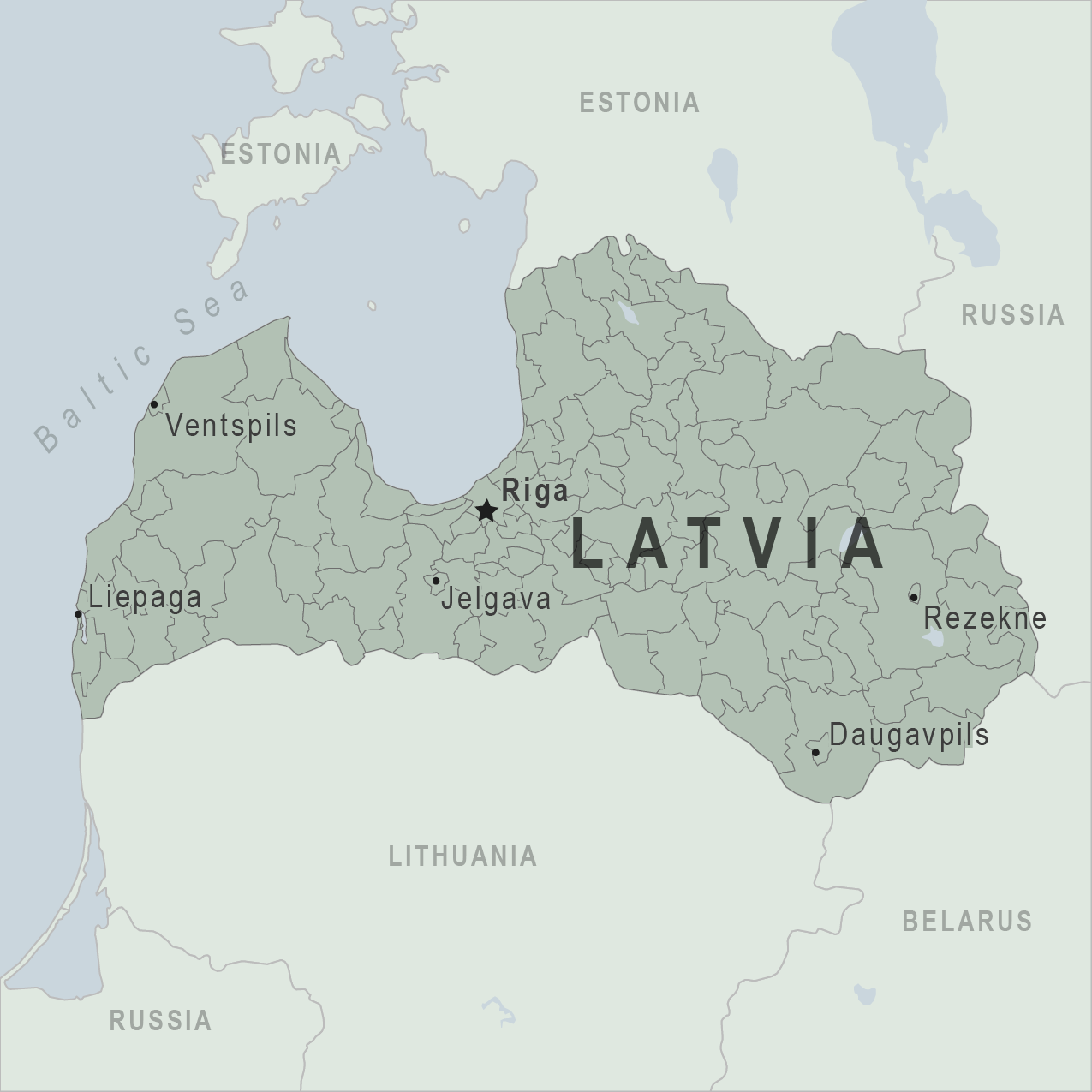
There are no notices currently in effect for Latvia.
⇧ Top
Check the vaccines and medicines list and visit your doctor at least a month before your trip to get vaccines or medicines you may need. If you or your doctor need help finding a location that provides certain vaccines or medicines, visit the Find a Clinic page.
Routine vaccines
Recommendations.
Make sure you are up-to-date on all routine vaccines before every trip. Some of these vaccines include
- Chickenpox (Varicella)
- Diphtheria-Tetanus-Pertussis
- Flu (influenza)
- Measles-Mumps-Rubella (MMR)
Immunization schedules
All eligible travelers should be up to date with their COVID-19 vaccines. Please see Your COVID-19 Vaccination for more information.
COVID-19 vaccine
Hepatitis A
Recommended for unvaccinated travelers one year old or older going to Latvia.
Infants 6 to 11 months old should also be vaccinated against Hepatitis A. The dose does not count toward the routine 2-dose series.
Travelers allergic to a vaccine component or who are younger than 6 months should receive a single dose of immune globulin, which provides effective protection for up to 2 months depending on dosage given.
Unvaccinated travelers who are over 40 years old, immunocompromised, or have chronic medical conditions planning to depart to a risk area in less than 2 weeks should get the initial dose of vaccine and at the same appointment receive immune globulin.
Hepatitis A - CDC Yellow Book
Dosing info - Hep A
Hepatitis B
Recommended for unvaccinated travelers of all ages traveling to Latvia.
Hepatitis B - CDC Yellow Book
Dosing info - Hep B
Cases of measles are on the rise worldwide. Travelers are at risk of measles if they have not been fully vaccinated at least two weeks prior to departure, or have not had measles in the past, and travel internationally to areas where measles is spreading.
All international travelers should be fully vaccinated against measles with the measles-mumps-rubella (MMR) vaccine, including an early dose for infants 6–11 months, according to CDC’s measles vaccination recommendations for international travel .
Measles (Rubeola) - CDC Yellow Book
Latvia is free of dog rabies. However, rabies may still be present in wildlife species, particularly bats. CDC recommends rabies vaccination before travel only for people working directly with wildlife. These people may include veterinarians, animal handlers, field biologists, or laboratory workers working with specimens from mammalian species.
Rabies - CDC Yellow Book
Tick-borne Encephalitis
For travelers moving or traveling to TBE-endemic areas
TBE vaccine is recommended for persons who will have extensive exposure to ticks based on their planned outdoor activities and itinerary.
TBE vaccine may be considered for persons who might engage in outdoor activities in areas ticks are likely to be found.
Tick-borne Encephalitis - CDC Yellow Book
Avoid contaminated water
Leptospirosis
How most people get sick (most common modes of transmission)
- Touching urine or other body fluids from an animal infected with leptospirosis
- Swimming or wading in urine-contaminated fresh water, or contact with urine-contaminated mud
- Drinking water or eating food contaminated with animal urine
- Avoid contaminated water and soil
Clinical Guidance
Airborne & droplet.
- Breathing in air or accidentally eating food contaminated with the urine, droppings, or saliva of infected rodents
- Bite from an infected rodent
- Less commonly, being around someone sick with hantavirus (only occurs with Andes virus)
- Avoid rodents and areas where they live
- Avoid sick people
Tuberculosis (TB)
- Breathe in TB bacteria that is in the air from an infected and contagious person coughing, speaking, or singing.
Learn actions you can take to stay healthy and safe on your trip. Vaccines cannot protect you from many diseases in Latvia, so your behaviors are important.
Eat and drink safely
Food and water standards around the world vary based on the destination. Standards may also differ within a country and risk may change depending on activity type (e.g., hiking versus business trip). You can learn more about safe food and drink choices when traveling by accessing the resources below.
- Choose Safe Food and Drinks When Traveling
- Water Treatment Options When Hiking, Camping or Traveling
- Global Water, Sanitation and Hygiene | Healthy Water
- Avoid Contaminated Water During Travel
You can also visit the Department of State Country Information Pages for additional information about food and water safety.
Prevent bug bites
Bugs (like mosquitoes, ticks, and fleas) can spread a number of diseases in Latvia. Many of these diseases cannot be prevented with a vaccine or medicine. You can reduce your risk by taking steps to prevent bug bites.
What can I do to prevent bug bites?
- Cover exposed skin by wearing long-sleeved shirts, long pants, and hats.
- Use an appropriate insect repellent (see below).
- Use permethrin-treated clothing and gear (such as boots, pants, socks, and tents). Do not use permethrin directly on skin.
- Stay and sleep in air-conditioned or screened rooms.
- Use a bed net if the area where you are sleeping is exposed to the outdoors.
What type of insect repellent should I use?
- FOR PROTECTION AGAINST TICKS AND MOSQUITOES: Use a repellent that contains 20% or more DEET for protection that lasts up to several hours.
- Picaridin (also known as KBR 3023, Bayrepel, and icaridin)
- Oil of lemon eucalyptus (OLE) or para-menthane-diol (PMD)
- 2-undecanone
- Always use insect repellent as directed.
What should I do if I am bitten by bugs?
- Avoid scratching bug bites, and apply hydrocortisone cream or calamine lotion to reduce the itching.
- Check your entire body for ticks after outdoor activity. Be sure to remove ticks properly.
What can I do to avoid bed bugs?
Although bed bugs do not carry disease, they are an annoyance. See our information page about avoiding bug bites for some easy tips to avoid them. For more information on bed bugs, see Bed Bugs .
For more detailed information on avoiding bug bites, see Avoid Bug Bites .
Stay safe outdoors
If your travel plans in Latvia include outdoor activities, take these steps to stay safe and healthy during your trip.
- Stay alert to changing weather conditions and adjust your plans if conditions become unsafe.
- Prepare for activities by wearing the right clothes and packing protective items, such as bug spray, sunscreen, and a basic first aid kit.
- Consider learning basic first aid and CPR before travel. Bring a travel health kit with items appropriate for your activities.
- If you are outside for many hours in heat, eat salty snacks and drink water to stay hydrated and replace salt lost through sweating.
- Protect yourself from UV radiation : use sunscreen with an SPF of at least 15, wear protective clothing, and seek shade during the hottest time of day (10 a.m.–4 p.m.).
- Be especially careful during summer months and at high elevation. Because sunlight reflects off snow, sand, and water, sun exposure may be increased during activities like skiing, swimming, and sailing.
- Very cold temperatures can be dangerous. Dress in layers and cover heads, hands, and feet properly if you are visiting a cold location.
Stay safe around water
- Swim only in designated swimming areas. Obey lifeguards and warning flags on beaches.
- Practice safe boating—follow all boating safety laws, do not drink alcohol if driving a boat, and always wear a life jacket.
- Do not dive into shallow water.
- Do not swim in freshwater in developing areas or where sanitation is poor.
- Avoid swallowing water when swimming. Untreated water can carry germs that make you sick.
- To prevent infections, wear shoes on beaches where there may be animal waste.
Keep away from animals
Most animals avoid people, but they may attack if they feel threatened, are protecting their young or territory, or if they are injured or ill. Animal bites and scratches can lead to serious diseases such as rabies.
Follow these tips to protect yourself:
- Do not touch or feed any animals you do not know.
- Do not allow animals to lick open wounds, and do not get animal saliva in your eyes or mouth.
- Avoid rodents and their urine and feces.
- Traveling pets should be supervised closely and not allowed to come in contact with local animals.
- If you wake in a room with a bat, seek medical care immediately. Bat bites may be hard to see.
All animals can pose a threat, but be extra careful around dogs, bats, monkeys, sea animals such as jellyfish, and snakes. If you are bitten or scratched by an animal, immediately:
- Wash the wound with soap and clean water.
- Go to a doctor right away.
- Tell your doctor about your injury when you get back to the United States.
Consider buying medical evacuation insurance. Rabies is a deadly disease that must be treated quickly, and treatment may not be available in some countries.
Reduce your exposure to germs
Follow these tips to avoid getting sick or spreading illness to others while traveling:
- Wash your hands often, especially before eating.
- If soap and water aren’t available, clean hands with hand sanitizer (containing at least 60% alcohol).
- Don’t touch your eyes, nose, or mouth. If you need to touch your face, make sure your hands are clean.
- Cover your mouth and nose with a tissue or your sleeve (not your hands) when coughing or sneezing.
- Try to avoid contact with people who are sick.
- If you are sick, stay home or in your hotel room, unless you need medical care.
Avoid sharing body fluids
Diseases can be spread through body fluids, such as saliva, blood, vomit, and semen.
Protect yourself:
- Use latex condoms correctly.
- Do not inject drugs.
- Limit alcohol consumption. People take more risks when intoxicated.
- Do not share needles or any devices that can break the skin. That includes needles for tattoos, piercings, and acupuncture.
- If you receive medical or dental care, make sure the equipment is disinfected or sanitized.
Know how to get medical care while traveling
Plan for how you will get health care during your trip, should the need arise:
- Carry a list of local doctors and hospitals at your destination.
- Review your health insurance plan to determine what medical services it would cover during your trip. Consider purchasing travel health and medical evacuation insurance.
- Carry a card that identifies, in the local language, your blood type, chronic conditions or serious allergies, and the generic names of any medications you take.
- Some prescription drugs may be illegal in other countries. Call Latvia’s embassy to verify that all of your prescription(s) are legal to bring with you.
- Bring all the medicines (including over-the-counter medicines) you think you might need during your trip, including extra in case of travel delays. Ask your doctor to help you get prescriptions filled early if you need to.
Many foreign hospitals and clinics are accredited by the Joint Commission International. A list of accredited facilities is available at their website ( www.jointcommissioninternational.org ).
In some countries, medicine (prescription and over-the-counter) may be substandard or counterfeit. Bring the medicines you will need from the United States to avoid having to buy them at your destination.
Select safe transportation
Motor vehicle crashes are the #1 killer of healthy US citizens in foreign countries.
In many places cars, buses, large trucks, rickshaws, bikes, people on foot, and even animals share the same lanes of traffic, increasing the risk for crashes.
Be smart when you are traveling on foot.
- Use sidewalks and marked crosswalks.
- Pay attention to the traffic around you, especially in crowded areas.
- Remember, people on foot do not always have the right of way in other countries.
Riding/Driving
Choose a safe vehicle.
- Choose official taxis or public transportation, such as trains and buses.
- Ride only in cars that have seatbelts.
- Avoid overcrowded, overloaded, top-heavy buses and minivans.
- Avoid riding on motorcycles or motorbikes, especially motorbike taxis. (Many crashes are caused by inexperienced motorbike drivers.)
- Choose newer vehicles—they may have more safety features, such as airbags, and be more reliable.
- Choose larger vehicles, which may provide more protection in crashes.
Think about the driver.
- Do not drive after drinking alcohol or ride with someone who has been drinking.
- Consider hiring a licensed, trained driver familiar with the area.
- Arrange payment before departing.
Follow basic safety tips.
- Wear a seatbelt at all times.
- Sit in the back seat of cars and taxis.
- When on motorbikes or bicycles, always wear a helmet. (Bring a helmet from home, if needed.)
- Avoid driving at night; street lighting in certain parts of Latvia may be poor.
- Do not use a cell phone or text while driving (illegal in many countries).
- Travel during daylight hours only, especially in rural areas.
- If you choose to drive a vehicle in Latvia, learn the local traffic laws and have the proper paperwork.
- Get any driving permits and insurance you may need. Get an International Driving Permit (IDP). Carry the IDP and a US-issued driver's license at all times.
- Check with your auto insurance policy's international coverage, and get more coverage if needed. Make sure you have liability insurance.
- Avoid using local, unscheduled aircraft.
- If possible, fly on larger planes (more than 30 seats); larger airplanes are more likely to have regular safety inspections.
- Try to schedule flights during daylight hours and in good weather.
Medical Evacuation Insurance
If you are seriously injured, emergency care may not be available or may not meet US standards. Trauma care centers are uncommon outside urban areas. Having medical evacuation insurance can be helpful for these reasons.
Helpful Resources
Road Safety Overseas (Information from the US Department of State): Includes tips on driving in other countries, International Driving Permits, auto insurance, and other resources.
The Association for International Road Travel has country-specific Road Travel Reports available for most countries for a minimal fee.
Maintain personal security
Use the same common sense traveling overseas that you would at home, and always stay alert and aware of your surroundings.
Before you leave
- Research your destination(s), including local laws, customs, and culture.
- Monitor travel advisories and alerts and read travel tips from the US Department of State.
- Enroll in the Smart Traveler Enrollment Program (STEP) .
- Leave a copy of your itinerary, contact information, credit cards, and passport with someone at home.
- Pack as light as possible, and leave at home any item you could not replace.
While at your destination(s)
- Carry contact information for the nearest US embassy or consulate .
- Carry a photocopy of your passport and entry stamp; leave the actual passport securely in your hotel.
- Follow all local laws and social customs.
- Do not wear expensive clothing or jewelry.
- Always keep hotel doors locked, and store valuables in secure areas.
- If possible, choose hotel rooms between the 2nd and 6th floors.
Healthy Travel Packing List
Use the Healthy Travel Packing List for Latvia for a list of health-related items to consider packing for your trip. Talk to your doctor about which items are most important for you.
Why does CDC recommend packing these health-related items?
It’s best to be prepared to prevent and treat common illnesses and injuries. Some supplies and medicines may be difficult to find at your destination, may have different names, or may have different ingredients than what you normally use.
If you are not feeling well after your trip, you may need to see a doctor. If you need help finding a travel medicine specialist, see Find a Clinic . Be sure to tell your doctor about your travel, including where you went and what you did on your trip. Also tell your doctor if you were bitten or scratched by an animal while traveling.
For more information on what to do if you are sick after your trip, see Getting Sick after Travel .
Map Disclaimer - The boundaries and names shown and the designations used on maps do not imply the expression of any opinion whatsoever on the part of the Centers for Disease Control and Prevention concerning the legal status of any country, territory, city or area or of its authorities, or concerning the delimitation of its frontiers or boundaries. Approximate border lines for which there may not yet be full agreement are generally marked.
Other Destinations
If you need help finding travel information:
Message & data rates may apply. CDC Privacy Policy
File Formats Help:
- Adobe PDF file
- Microsoft PowerPoint file
- Microsoft Word file
- Microsoft Excel file
- Audio/Video file
- Apple Quicktime file
- RealPlayer file
- Zip Archive file
Exit Notification / Disclaimer Policy
- The Centers for Disease Control and Prevention (CDC) cannot attest to the accuracy of a non-federal website.
- Linking to a non-federal website does not constitute an endorsement by CDC or any of its employees of the sponsors or the information and products presented on the website.
- You will be subject to the destination website's privacy policy when you follow the link.
- CDC is not responsible for Section 508 compliance (accessibility) on other federal or private website.
9 Helpful Things to Know Before Visiting Latvia
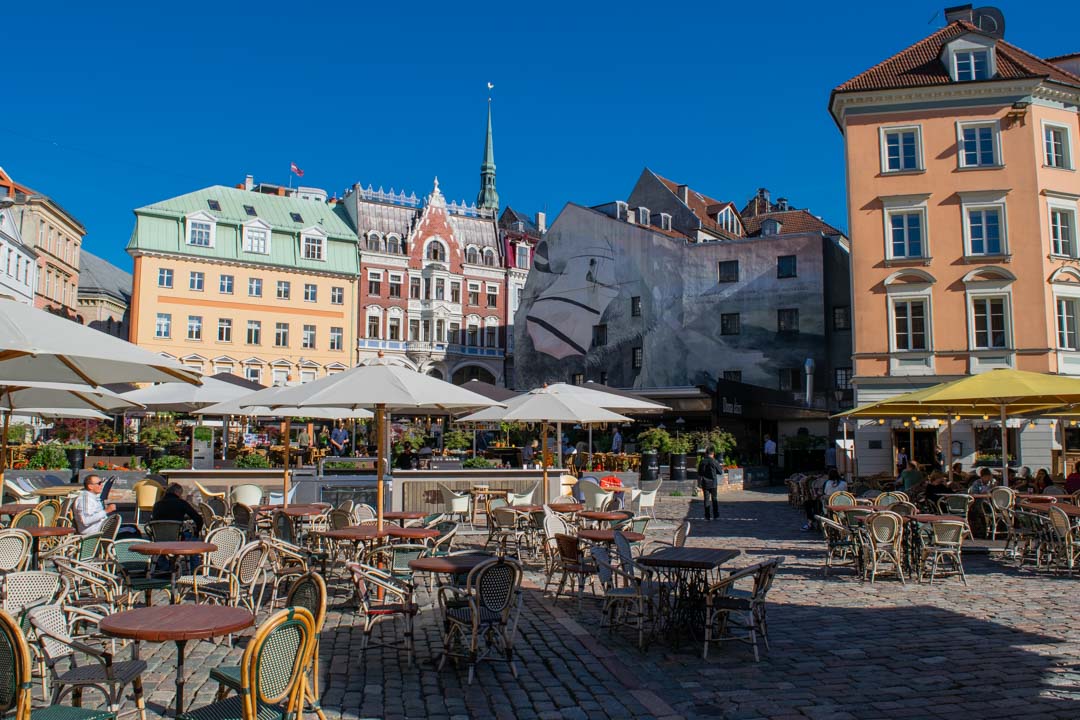
Disclosure: This post (probably) contains affiliate links. If you click on one, I may make a small commission. Of course, this will come at no extra cost to you and helps keep this site running.
Admittedly, I knew very little about the Baltic country of Latvia before finally deciding to visit that part of Europe last July. I knew where it was on a map and that my primary school music teacher was from there. Basic research confirmed what I already knew – I should visit Riga . But as is my style, I wanted to see more of the country when visiting Latvia than just its capital. After my first 2-week visit there during my travels through the Baltic , I came away with an immediate love for the country.
Part of that is probably due to it blowing any expectations I had out of the water. Latvia is a country with incredible depth, be it cultural, historical or natural. In fact, I enjoyed Latvia so much the first time that I planned a longer second visit in 2018. Travelling around Latvia is also actually pretty easy and so this list has fewer warnings or vital tips than usual. Instead, let’s focus on all the reasons why Latvia is worth visiting and why you should definitely do it.
Table of Contents
1. It’s Not Only Riga

The sad truth is that when people visit Latvia, the overwhelmingly majority only see Riga and then leave. It seems to be a common curse in the Baltic – people don’t know what else the country has to offer. But Latvia had a lot more going on than just Riga. Yes without a doubt, Riga is a beautiful, entertaining city that will more continue to attract more and more tourists in years to come.
All it takes though is just a few more days for inquisitive visitors to see how much more this country has to offer. You can even use Riga as a base to explore, thanks to its relatively central location in Latvia. Within a couple of hours of Riga, you can reach Sigulda and all its nearby castles across the Gauja Valley .
Just a little further along the valley is charming Cēsis with its quaint streets and own impressive castle. In the other direction, you have the freshly added UNESCO site of Kuldīga and the remarkable Venta Rapids . Continue on to the coast and you reach beaches galore, like at Liepāja and Karosta ; there’s simply so much to see.
2. Entry and Visa for Latvia

As a member of the European Union and the Schengen Zone, entry to Latvia is just as straightforward as most of Europe. If you are travelling within the Schengen Zone, you’ll benefit from the ability to freely move between member countries, which include neighbouring Estonia and Lithuania. Essentially, if you have a European passport it should be insanely simple.
For nationalities like Australians who are able to visit for 90 days visa-free, visiting Latvia is no different to visiting Germany or Italy. The list of countries eligible for this waiver can be found here . For those not coming from the EU or from the previous list, you can find more information on Latvian visas here . As always, ensure you know your visa requirements before visiting.
3. Getting Around Latvia

Latvia is probably a much bigger country than most people suspect. And yet, it is actually quite straightforward to get around. Despite being off in the west of Latvia, Riga is very much a transit hub you can use to reach most places.
Latvia is connected by both train and bus networks, the information which can be found here . This system is so easy to use and reliable, taking a lot of stress out of travelling to smaller destinations around the country. While I only took the train between Riga and Sigulda, I did find it cheap and efficient. Trains also run to towns and cities like Daugavpils, Tukums and Ogre.
Most of the time though, I travelled using Latvia’s various bus networks. Buses not only cover the gaps in the train network, they’re also of a high quality and great value. Lux Express is the premium Baltic bus network and uses some of the nicest buses I’ve ever been on. While they may be a little more expensive, the value you get is considerable.
Of course, another option always open to you is to rent a car . Driving in some countries feels like it would stress me out, but not Latvia. Maybe with the exception of driving in central Riga, it didn’t seem especially busy or difficult. It helps that the quality of the roads around the country are quite good these days too.
4. Is Latvia Cheap or Expensive?

A rather recent development for Latvia is the adopting of the Euro, which became the country’s official currency on 1 January 2014. This is just another reason why visiting Latvia is easier than you probably realise as it cuts the hassle out of getting a new currency out and inevitably trying to use it all up before you leave.
Regarding expenses and budgeting, while it many not be as cheap as say the Balkans, Latvia is definitely more affordable than Western and Central Europe. Things like getting coffee (1-2€), local public transport (<1€), intercity transport (2-7€) and accommodation can be pretty good value for money.
Entrance fees to places like castles, panoramic views and cable cars are probably only a little under the European average. Even dining out (6-18€) can be pretty cheap, especially with No. 8 below. Essentially, if you’re on a budget, visiting Latvia’s a pretty good pick.
5. Fascinating History

If you’ve been following this blog a while, you’ve probably picked up on the fact that I’m a bit of a history-buff. I’m just always keen to learn the history of places I visit. As mentioned earlier, I knew little about Latvia or its history but it turns out Latvia has a pretty fascinating past.
While the area has been settled for millennia, a big change occurred in the 12 and 13th centuries when German Crusaders came to the region to convert the pagan locals. It was these Germans that founded Riga and through the Livonian Brothers of the Sword, and their successors the Livonian Order, occupy the country. They were the ones that built castles like those found at Cēsis, Sigulda and Turaida , leaving the land with some incredible fortresses.
The region passed from power to power until 1710 when it was occupied by the Russian Empire, and which it belonged to right up until the Russian Revolution. This chaos in Russia provided the right circumstances for Latvia to oust the Russians, declaring independence on 18 November 1918 and after 2 years fighting was recognised globally as an independent nation in 1920. The museum at the New Castle in Cēsis covers this period quite well.
This independence was short-lived however, with the country falling under the control of the Soviets, then the Nazis and then back to the Soviets during WWII. While it was stayed under Soviet control for almost 50 years, Latvia was able to reclaim independence in 1991 and marked 25 years of independence last year.
6. Language

The national language of Latvia is mysteriously known as…Latvian. Unlike Estonian , Latvian is a Baltic language and one of only two remaining Baltic languages spoken today, the other being Lithuanian. Its more distant cousins are the Slavic languages, e.g. Russian, Polish, Czech and you may hear some similarity when spoken (or you may not be able to tell one way or another, depending on your familiarity with languages).
All that being said, I did find that many people spoke some degree of English, with German and of course Russian not being uncommon either. Somewhere like Riga you’ve got great odds as it is a city that sees plenty of tourists, especially Brits. Somewhere smaller like Liepāja for example, a bit less likely.
Some useful phrases to know include Sveiki which is ‘Hello’; Paldies which is ‘Thank you’, Lūdzu for ‘Please’; and Jā and Nē for ‘Yes’ and ‘No’. You’ll notice that Latvian uses letters like ū, ā and ē, but don’t fret too much about them.
7. Awesome Architecture

A welcome, yet unexpected surprise was learning of all of Latvia’s amazing architecture. It started when I read about the couple of blocks in Riga that boasted pristine Art Nouveau buildings . As it turns out, there are actually plenty of eye-catching buildings throughout the capital beyond those few streets, but they are surely some of the most majestic and elegant.
And while it may not be Art Nouveau, many of the country’s towns have their own architectural charms. From quaint seaside houses in Jūrmala, to the brick and wood panel buildings of Cēsis, Bauska , and Kuldīga, few places in Latvia came across as bland or boring; there’s always something to appreciate as you explore. I especially enjoyed walking around small towns like Jekabpils and Ludza just for this reason.
8. LIDO Cafeterias
What would you think if I said that eating at a self-service cafeteria was a must when visiting Latvia? It may seem like an odd recommendation, but cafeterias and the LIDO brand are an institution in Latvia. The LIDO chain, plus plenty of smaller independent cafeterias, are a common lunch and dinner spot for many Latvians and a great budget option for travellers.
For roughly 7€ you can get a tasty main (including veggies!), drink and even dessert. It may not be fine dining, but definitely a cheap, warm meal that will leave you satisfied. While I only found the LIDO brand in Riga, I did come across local ones like Zalumnieku Piestatne in Sigulda.
9. The Beautiful Baltic Beaches

I have to admit, I never really thought of the Baltic countries as beach destinations. And yet, I was blown away by the beauty of their beaches and Latvia’s in particular. While the water may have been chilly, the long and wide sand beaches found up and down its coast were gorgeous and quiet. On top of that, in the case of both Jūrmala and Karosta, the back drop was serene forest and what more could you ask for?
While I never managed a proper beach day, some of my favourite moments were spent down by the beach. Of course, the stand out has to be walking along the deserted beaches of Karosta in search of the Northern Forts. Honestly, if I’d gone for a swim and laid on a towel for a bit, that could have been a perfect day.
Resources for Visiting Latvia
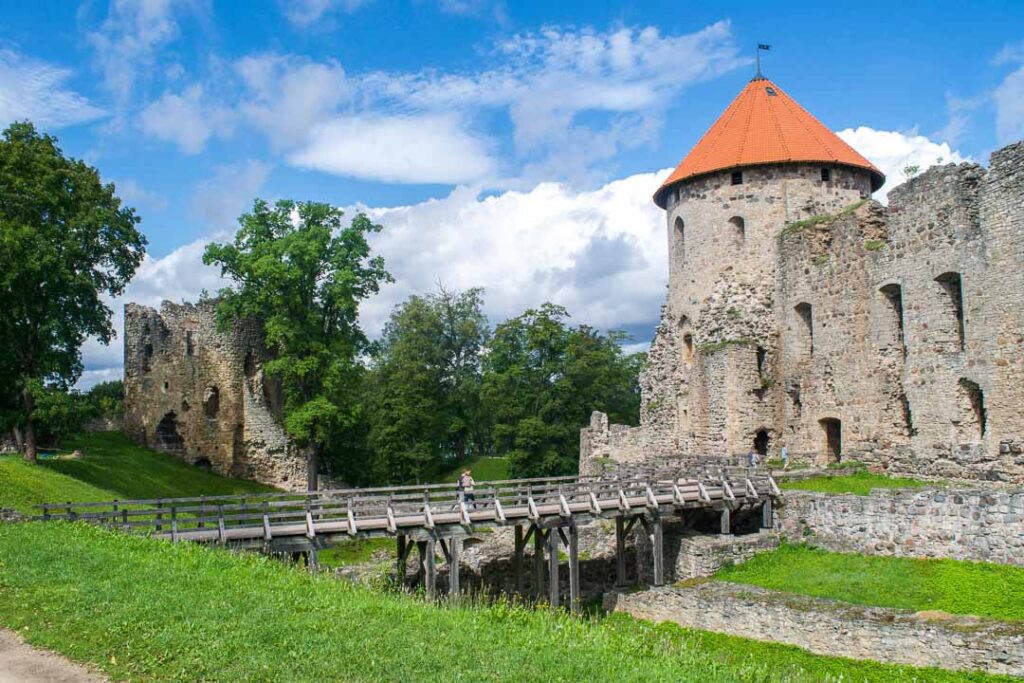
- Getting There: To find the cheapest and most convenient flights to Latvia make sure to check Kayak .
- Accommodation: Here you can find hotels, apartments and guesthouses for across Latvia, plus don’t forget Airbnb.
- Tours: There are some great day trips and sightseeing tours available in Latvia for you.
- Car Hire: If you want to travel more independently, consider renting a car to drive yourself about.
- Guide Books: Lastly, if you’re after a physical guide to take with you then you can’t beat a Lonely Planet Guide.
Have you been to Latvia before? What do people need to know when planning a visit? Please share your thoughts in the comments below.
David is the author behind the Travelsewhere travel blog and is always on the search for the quieter, less-visited corners of the world.
You may also like
10 interesting sights to see in jelgava, latvia, special castles and stunning sights in sigulda, latvia, 11 essential things to do in riga, latvia, why i love hiking in gauja national park, latvia, how to spend a day in bauska, latvia, 6 special sights to see in jekabpils, latvia, 27 comments.
I had heard great things about Riga, but really not much about anything else so nice to hear there is more to see. I am pretty impressed with those beaches too and the architecture looks lovely. Sounds like a great place to spend two weeks. Thanks for sharing on #TheWeeklyPostcard
I have not been to Latvia but it is a country on my radar. I am one of those who do not conform to visiting only capitals, so, if I stop by, I would make the efforts to see more. It is good that the prices are kind of decent (like that). I am planning a trip to Germany and I am seeing a big difference when compared to Spain or Central Europe. #TheWeeklyPostcard
The Baltic nations are now appearing on the tourism radar which is fantastic. Based on the few articles that I have read about Latvia, you’re right, tourists tend to leave Latvia after visiting Riga. Don’t think I have read articles that mention at length the other destinations within the country. Thanks for giving us some insights 🙂 #TheWeeklyPostcard
Useful information for visiting Latvia, somewhere Paul visited on a stag weekend, but didn’t venture further than Riga or the bars!! Great post. #feetdotravel
While I vaguely remember Riga and visiting beaches in Jurmala, I can’t remember much more about my visit to Latvia as a kid. I really want to go back and following your blog has really given me some great ideas! I’ve been looking at flights to Latvia ever since your first post! Hopefully they still speak Russian there which would make it slightly easier to get around! Great tips for visiting the country and hopefully I will get to use them some day soon!
Oh it would be silly to just go to Riga and see nothing else! If I went all the way up there, I would go big or go home! #TheWeeklyPostcard
Latvia did seem a bit too hard in the past so thanks for the heads up re currency, visas and transport out of Riga. The architecture and beaches are a definite drawcard.
What a great adventure. The history is fascinating and I like how the country is connected by a train and bus network. The currency and visa information is a plus to know but I do love the empty beaches and stunning architecture. Great photos…. Thanks for sharing!
Thanks for sharing a useful post about Latvia. The history seems to be really interesting and the architecture too. We will keep your ideas and tips in mind if we visit Latvia when we go to Europe this summer! Keep up the great work, it’s always a real pleasure to read your articles! Very informative and useful:) Patrick and Cécile from http://www.travel4lifeblog.com
I visited my cousins in Latvia way back in 1995.It was a country in transition from the old Soviet past to a new vibrant independance.The things I enjoyed were going to the farmers markets, picking mushrooms and hazelnuts in the pine forests with my cousins.One of the highlights was having a sauna then running naked and jumping into the crystal clear freezing lake to cool off,then running back to the sauna.I don’t know what it is like now but where ever we travelled in Latvia people were so kind and open and amazed we travelled all that way to see their country especially with a one year old.
As I have a friend from Latvia, I have found your posts most interesting! I didn’t know they moved to the Euro, how terrible of me! Fantastic to hear that it is easy to travel around though, it certainly makes getting out of Riga and seeing more of the country more appealing and you are right, people should get out and about and see what else this country has to offer, I know I can’t wait to visit and follow your example. Thank you for all the fabulous information, stories and history you have provided, pinned for the future. #feetdotravel
don’t be surprised, if somebody does not hear any language, except Russian.
One more important thing about Latvia is how outdoor adventurous it is – with barefoot hikes, agility courses for young and old, built in woods, extensive bike lines. Maybe for your next trip. Also- very kids friendly, most restaurants have kids play areas and toys, park rentals for ride on toys and many advanced playgrounds, especially outsided Riga-it’s not uncommon to have a whole city block dedicated for various kids things
Great information… I hope I get to visit one day.
Latvia gained independence November 18, 1918, not in 1920. We are getting ready for Latvia’s 100th birthday next year.
Thank you for your comment Indra. I was going off the end of the War of Independence, so I’ve updated it to be clearer.
Enjoy photo slideshow around Latvia.
http://www.seelatvia.com
I would also have never imagined Latvia to have beautiful beaches. Now we want to go check out the beaches and architecture based on your beautiful pictures 🙂
The Art Noveau building looks so beautiful. Latvia seems like a great place to visit and easy on the pocket. Thanks for sharing.
Latvia seems to be a great travel destination, too bad that not many tourists are going there. I wasn’t aware they have euros – this is another reason why I should visit it. Thank you for sharing all of this useful information, I will save it for future reference.
It’s so true what you say about people only visiting the Baltic capitals as they don’t know what else to do. I must say I am guilty of not exploring that much further than Riga when it comes to Latvia, yet I think I’ve seen more than most. Every Estonian knows and goes to the Jurmala waterpark in Latvia as its one of the biggest in the area.
I love the types of place you visit 🙂 Definitely off the conventional tourist trail! And your articles are on point for tips and info! love it 😀
Jurmala is the nicest sea side town I’ve ever visited in Europe. First beach in Europe I’ve seen with trees on the shore line and not hotels. I was impressed with Riga, great architecture. And yes it’s true what they say about the women in Riga! Daugavpils has a large and modern looking Irish pub which is cool. Not everyone speaks English who serves but they call someone who does to come over. Hesburger is great (Latvian McDonalds) you can ask for a Hesburger and they reply in English “is that a meal or on its own” 🙂 latgola hotel is very nice. Off licence underneath hotel is huge and sells very cheap whiskey. Aglona has a museum on old traditional Latvian food. They serve virtually neat vodka for free. Aglona has a beautiful Catholic Church. There is a small WW2 museum near hear. It’s small but very, very authentic. Preiļi Dolls museum is fun. Amazing dolls and they have costumes where you can dress up In costumes and take photos.
Hi, i i am from Latvia, so if you have any kind of questions, you can ask them to me and illI answer!
Riga is one of the most beautiful cities in the Lativa. If you go there, you can choose from different local transportation modes around here. You can always use Riga Executive the taxi or the bus. According to my experience, I find their service very good.
I liked the part about Lido, as a Latvian i can confirm that we mostly go to their chains for lunch and its a great place for enjoying classic Latvian food. Kudos on the great article ! 🙂
I would absolutely love to visit Latvia, even in the winter time. The people seem so friendly and and I would love to challenge myself with learning the language! The way David writes these blogs you can tell he’s passionate about travel and has a heart for others around the world, which is truly a God given gift. I loved this blog entry!
Leave a Reply Cancel reply
This site uses Akismet to reduce spam. Learn how your comment data is processed .

All Destinations , Europe
Is riga safe my honest opinions from my trip.
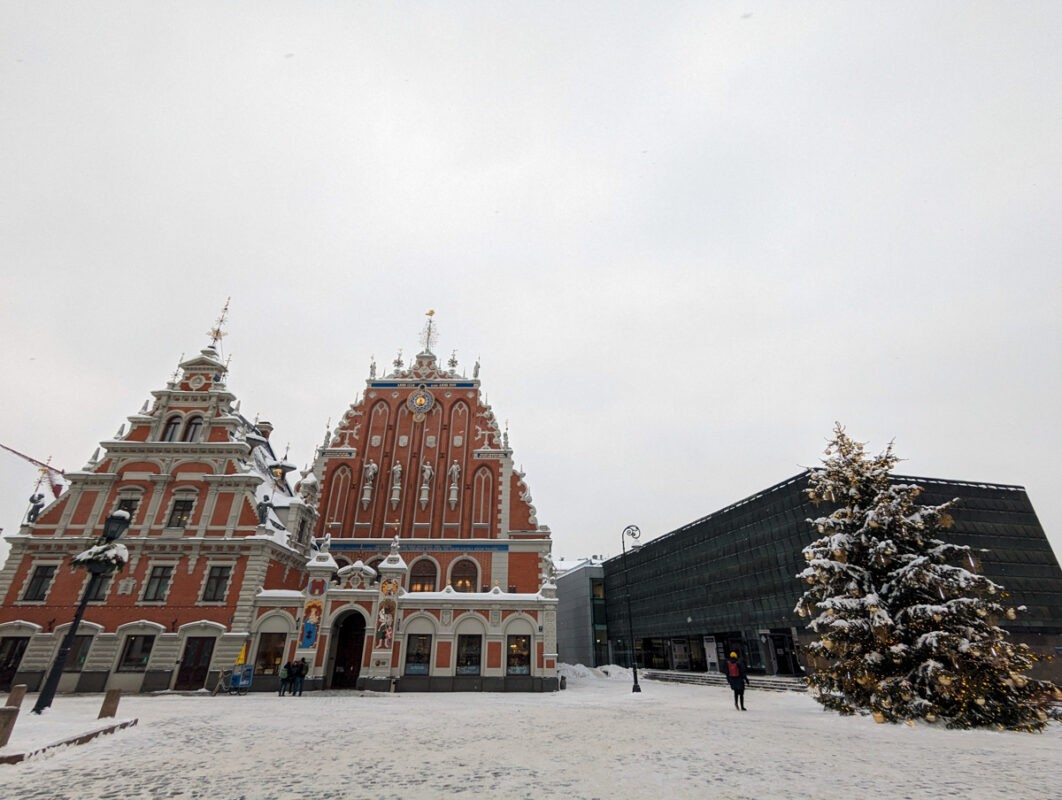
Is Riga safe? How do you ensure safety in Latvia or the Baltics?
The capital city of Latvia, Riga is a small city that’s making huge strides on the tourist scene in recent years.
But what about the safety in Riga? Is it safe for solo female travellers?
I recently visited Riga on my own and I’m here to share all my thoughts!
Is Riga safe?
Yes, Riga is very safe.
It’s a small city, and crime levels are low .
Latvians tend to be friendly but quite reserved, which means that there’s next to no street harassment.
There’s the occasional scam – as in any city – and it’s important to be fully prepared for the cold weather if you’re visiting in winter.
Let’s take a look at Riga’s safety in more detail!
Is Riga safe for solo female travellers?
Yes , Riga is safe for solo female travellers – at least, as a solo female myself, I found it to be incredibly secure!
Throughout Riga ( and in Vilnius and Tallinn, for that matter), I never experienced any catcalling or inappropriate comments.
I don’t really have any other comments at all on solo female traveller safety other than to me it felt totally safe and it’s a great place to visit for solo and non-solo male and female travellers alike .
But of course, I followed my usual solo travel safety procedures, which are:
- not going out too late at night (I like to be sleeping then anyway!)
- not drinking too much (a couple of glasses of mulled wine were good for me)
- not giving out too much information to people (nobody asked, but I wouldn’t have if they did)
- booking a highly-rated hotel with reviews that mentioned it felt safe (I also wrote a review when I left to help future solo female travellers)
Is Riga safe for LGBTQ+/ POC travellers?
As a white, straight woman, I can’t provide any first-hand perspective on safety in Riga for LGBTQ+ or POC travellers.
However, sources I’ve read mention that it is safe, despite some attitudes being more conservative.
Generally, Latvians are keen to welcome any tourists to their country, regardless of sexual orientation, race, religion or gender.
Some people do have more backward attitudes, largely due to the lack of diversity in the city/ country, although it seems to be very rare for anyone to make any comments or act in any different way.
In fact, the statistics from Numbeo show that “Worries about being subject to a physical attack due to skin color, ethnic origin, gender, or religion are significantly lower in Riga (24.76) compared to London (40.77).”
Plus, attitudes in Riga seem to be improving in recent years, and hopefully, the culture will become increasingly accepting and liberal as time goes on.
For more information and a first-hand perspective about gay travel in Riga, please see Nomadic Boys’ article .
For POC travellers, I haven’t yet found a decent article from someone’s first-hand perspective (if you know or have written one, please let me know!).
Crime rate in Riga
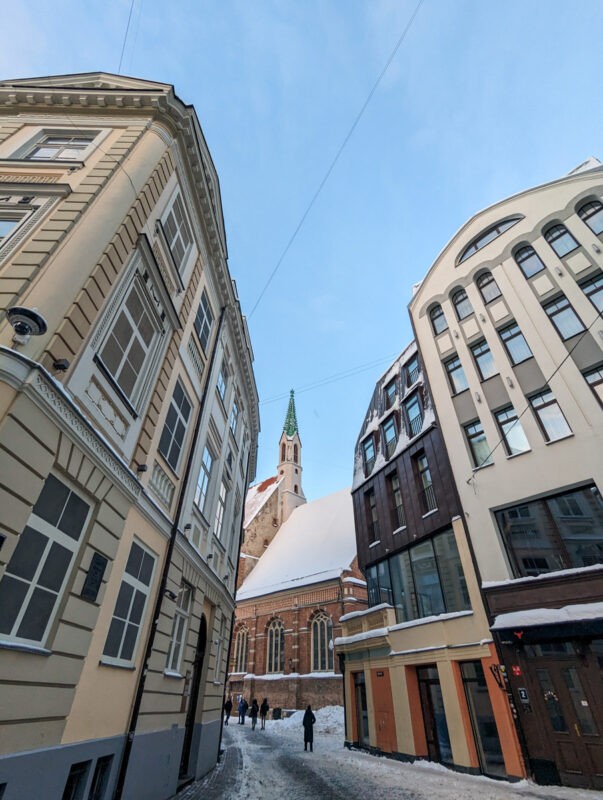
The crime rate in Riga is low, much lower than most Western European capitals.
When I write these safety posts, I usually compare global cities to London (which isn’t to say that London’s not safe , but it’s a big, touristy city that many people are happy to visit in terms of safety).
According to data from Numbeo , a user-contributed database comparing global living conditions, Riga has lower crime levels in nearly all categories when compared to London.
The level of crime in London is classified as high at 63.73, whereas in Riga, it’s considered low at 38.81.
In terms of crime increasing in the past three years, London scores high at 69.81, with Riga at a moderate 48.61, suggesting a more stable crime rate in the Latvian capital.
Worries about being mugged or robbed are moderate in London at 57.61 but low in Riga at 33.68.
Similarly, concerns about cars being stolen are moderate in London at 43.78 and low in Riga at 31.93.
The only aspect where Riga scores higher than London is corruption and bribery, with Riga having a high score of 68.29 compared to London’s low 38.67.
These statistics were similar when comparing Riga with Paris and Riga with Barcelona; Riga comes out as the safest.
As with any city, it’s always prudent to stay aware and take standard safety precautions.
Scams in Riga
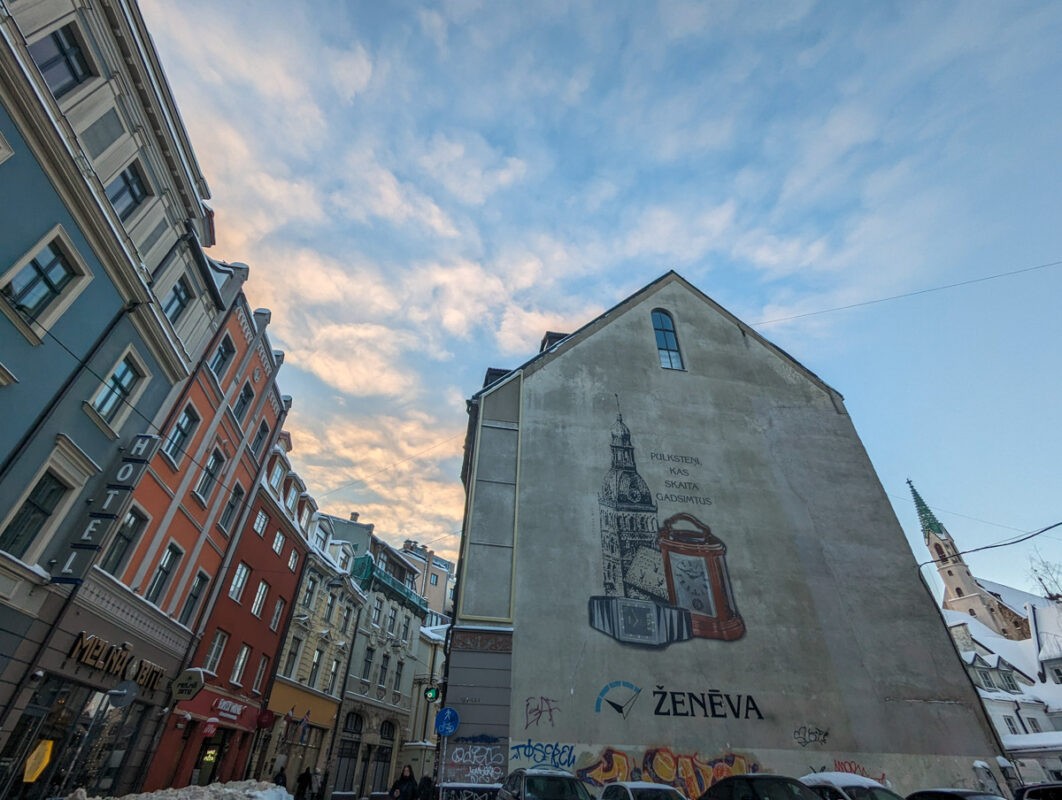
I didn’t experience any scams on any level when I was in Riga, but from a Google search, there seems to be an idea that they’re widespread!
I’m certainly not saying that scams in Riga don’t exist – for example, visitors might encounter overpriced services or inflated bills in city centre locations.
Checking reviews and asking locals for reputable places can greatly reduce the risk of falling victim to these scams.
But with a bit of caution and common sense, it’s easy to enjoy Riga without falling victim to scams!
Global security of Latvia
In recent years, many travellers have been concerned about visiting Latvia for global security reasons.
However, it’s highly unlikely for any country to attack or invade Latvia.
Latvia, much like its Baltic neighbours Lithuania and Estonia, has taken significant strides in asserting its independence and bolstering its national security since breaking away in 1990.
Today, Latvia’s membership in NATO plays a crucial role in its security.
This alliance means that any act of aggression against Latvia is, in effect, an act of aggression against all NATO members, including the rest of the EU, the UK and the USA.
This membership provides a robust layer of international protection.
In fact, due to its NATO membership, Latvia’s security situation can be compared to other European nations like France, the UK, and Italy in terms of global security.
Can you drink the tap water in Riga?
Yes , you can drink the tap water in Riga.
Riga’s tap water is not only safe to drink, but it’s also of very high quality.
The water in Riga undergoes thorough treatment processes to ensure its purity and safety.
These processes comply with strict European standards, ensuring that the tap water is free from harmful contaminants and safe for daily use.
I drank tap water throughout my trip to the Baltic countries and it was crisp and delicious!
This also helps you save money in Riga and beyond.
Staying healthy in Riga
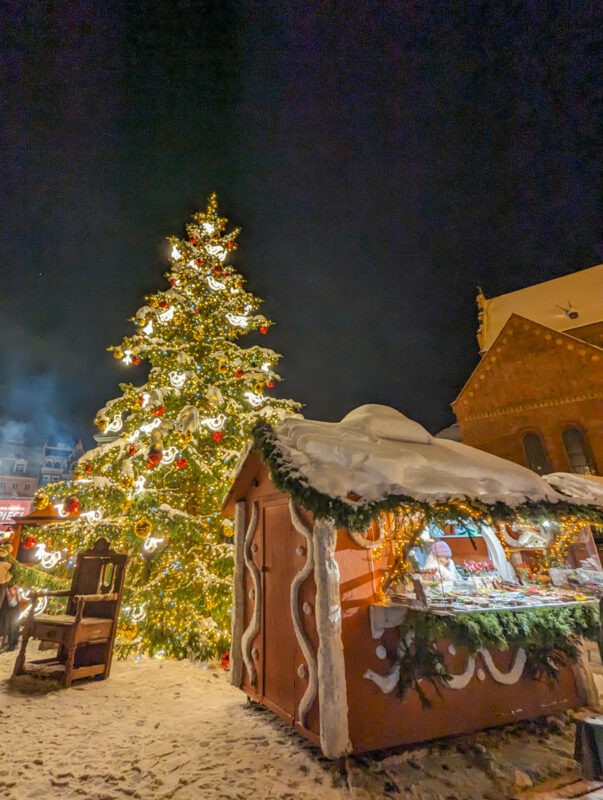
Generally, it’s easy to stay healthy in Riga; it’s clean and there aren’t any particular health risks you need to be aware of.
Riga’s temperate climate means weather can vary, so check the forecast before your trip and pack accordingly.
Layered clothing is a good idea to accommodate fluctuating temperatures, especially if you’re visiting in transitional seasons.
If you’re visiting in winter, pack lots of layers including waterproof boots (don’t do what I did and visit the Baltic countries just in sneakers/ trainers!).
Riga’s culinary scene is diverse and caters to various dietary needs – but do double-check with waitstaff if you have any allergies, especially if they’re serious.
Most people can speak very good English, but if your allergy is serious it never hurts to learn the name for it in Latvian!
Riga has good medical facilities, and pharmacies are readily available for basic medical supplies.
But do carry essential medications and a basic first aid kit for convenience.
Also, make sure you have comprehensive travel insurance just in case anything does go wrong. I use and recommend SafetyWing .
How to stay safe in Riga
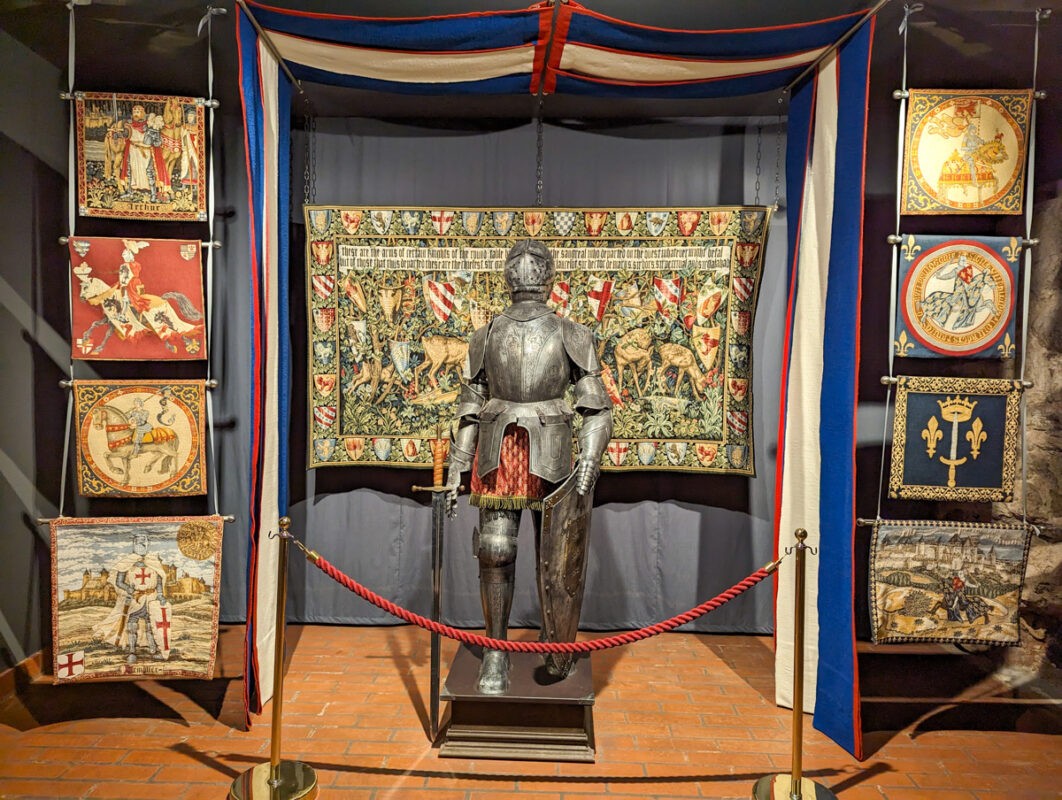
There’s nothing in particular that you’ll need to consider in terms of Riga safety, but these steps can help you to be even more secure:
- Choose Accommodation Wisely : Opt for a central, well-reputed hotel. Staying centrally not only puts you close to major attractions but also in well-lit, busier areas, which can be safer, especially at night.
- Be Cautious at Night : It’s wise to avoid walking around late at night, particularly in less crowded areas. If you need to travel, consider using a Bolt taxi. These are reliable and can be easily booked via an app, ensuring a safer journey back to your accommodation.
- Moderate Alcohol Consumption : Riga is known for its traditional Balsam and other alcoholic beverages. While they are certainly part of the cultural experience, do drink responsibly.
- Dress for the Weather : Riga’s climate can be very cold, especially in winter. Dressing appropriately for the weather is important to avoid any health risks associated with the cold. Layering your clothes and wearing proper winter gear during the colder months is advisable.
- Seek Assistance When Necessary : Don’t hesitate to ask for help if you need it! Whether it’s hotel receptionists, tour guides, or waitstaff at restaurants, most people in Riga speak very good English and are generally helpful. They can provide assistance, directions, and local tips to ensure you have a safe and enjoyable experience in the city.
Are you ready to visit Riga?
I hope that this blog post has reassured you that yes, Riga is safe!
If you want to plan your Riga trip some more, take a look at my YouTube video from the city.
- New Zealand
- The Philippines
- The Netherlands
- United Kingdom
- Inspiration
- Overland Itineraries
- Packing Lists
- Travel Tips
- Working Abroad
- Accomodation Guides
- Overland Travel
- Preserving Cultures
- Protecting Animals
- Living Abroad

Latvia Travel Guide
Looking for an in-depth Latvia travel guide ?
Then you’re in the right place!
Though small in size, Latvia has a lot to offer travelers of all kinds.
This Baltic State and member of the European Union is quickly becoming a favorite destination of travelers around the world, particularly those who want to see Europe on a budget.
The country is also very safe with an easy-to-navigate public transport system, making Latvia great for solo female travel .
Whatever your travel style, you’ll find that Latvia is a hidden gem rich in culture, history, and natural beauty.
The centrally-located capital of Riga is the perfect home base for any trip to Latvia; many of the country’s top attractions are just a day trip away from the capital and easily accessible via public transport.
Fly into Riga International Airport, then hop on a free walking tour of the city to learn some fun Latvia facts.
From there, you can take a walk around Riga’s Old Town or explore some of the city’s many historic churches and museums.
Read on for more Riga tourism tips below!
Latvia is also the perfect destination for outdoor activities.
With four national parks, there are plenty of ways to experience the country’s lush landscape.
Latvia is also a great option for those looking for a different kind of beach vacation.
For instance, Cape Kolka — the point where the Baltic Sea and the Gulf of Riga meet — is home to miles of splendid coastline where you can see both the sunrise and the sunset.
Wander around one of the local fishing villages and enjoy some traditional Latvian cuisine like smoked fish.
Latvia’s seaside resort towns like Jurmala are also worth a visit, especially for the national parkland and wide, golden sand beaches.
Keep reading to dive into resources that will help you with planning a trip to Latvia in Europe.
Note: This ultimate guide to Latvia travel contains affiliate links to trusted partners!

Use this Latvia tourism map to begin planning your trip to this incredible country!
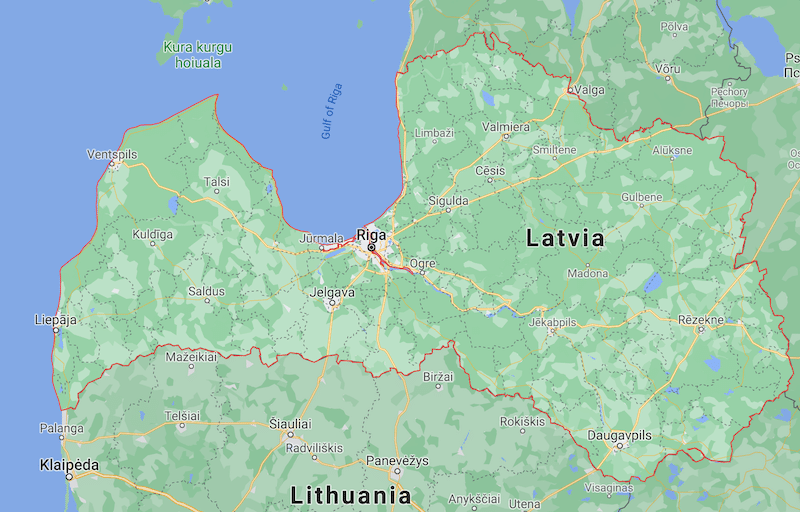
Click here for an interactive Google Map version of the above graphic.
Tips For Visiting Latvia
The following guides can help you plan the perfect Latvia travel itinerary !
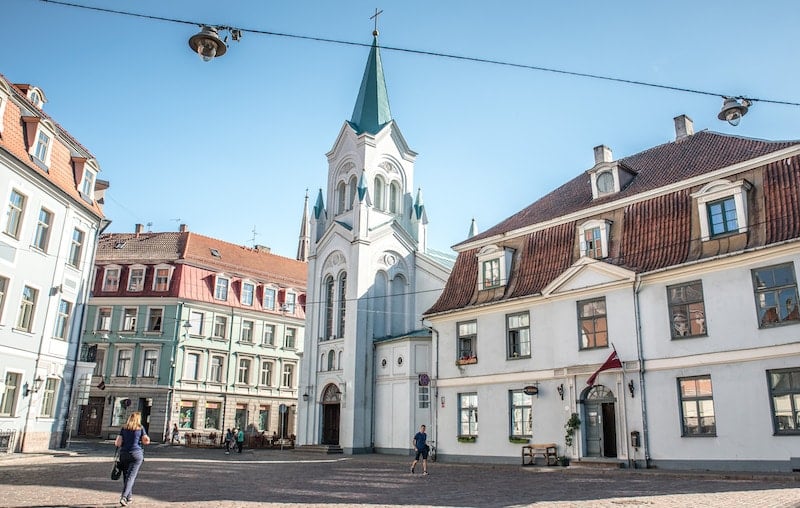
Here’s What Happens When You Travel Latvia Solo
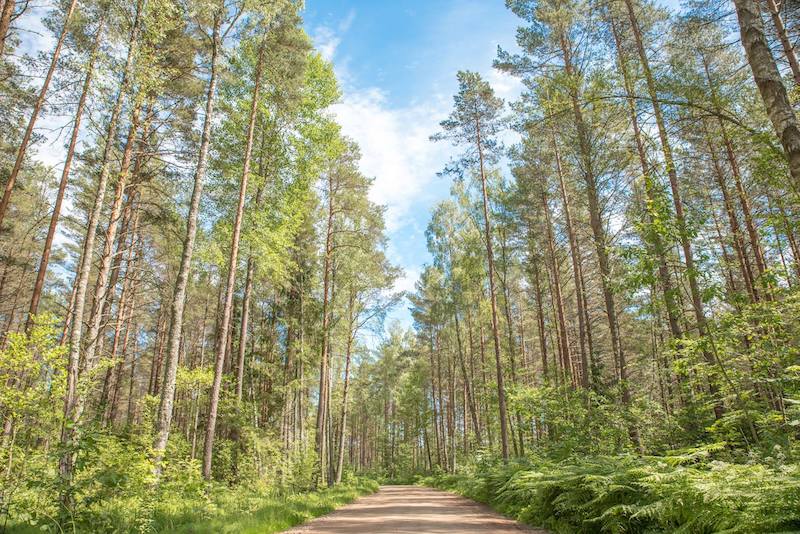
11 Amazing Destinations For Curious Solo Female Travelers (Including Latvia!)
Best Latvia Tours
Explore local culture with a Latvia tour guide through these unique excursions:
- Day Tour to Rundale Palace from Riga
- Tour To Ķemeri National Park And Smoked Fish Tasting from Riga
- Half-Day Latvian Herbal Traditions and Mandala Workshop with Lunch from Riga
- Culinary, Historic & Wine Tour to Sigulda and Cesis from Riga
- Slitere National Park Latvian Nature Hiking Tour from Riga
- Night Kayaking In Riga City Canal
- Riga Old Town and Central Market Walking Tour
- Hike In Gauja National Park – Up And Down The Switzerland Of Latvia from Riga
Renting A Car In Latvia
Need a rental car for your Latvia trip?
Use Discover Cars to quickly compare your car rental options.
Latvia Hotels
Click here to browse the best Latvia travel hotels!
Prefer self-contained stays?
Click here to check out unique local apartments and rentals!
You can also use this map to search for local stays and experiences:
Latvia Travel Insurance
It doesn’t matter if you’re traveling solo or with a group on a Latvia tour. When visiting Latvia — or any other country in the world — make sure to get travel insurance to protect your health and safety.
In my opinion, the best travel medical insurance for travelers is SafetyWing as they’ve got a large network and offer both short-term and long-term coverage — including coverage if you’re traveling for months as well as limited coverage in your home country).
Additionally, SafetyWing is budget-friendly and offers $250,000 worth of coverage with just one low overall deductible of $250.
With coverage, you’ll have peace of mind as you embark on your Latvia travel itinerary.
Click my referral link here to price out travel insurance for your trip in just a few clicks .
Latvia Travel Guide FAQ
Below, find answers to frequently asked questions about traveling in Latvia .
Q: Which countries make up Eastern Europe?
When planning a trip to Europe , it’s helpful to have a lay of the land. Countries within Eastern Europe include:
- Czech Republic
- Herzegovina
Q: What is Latvia famous for?
Latvia is probably most famous for its vast array of lakes, rivers, and waterfalls.
The small country is home to 12,000 rivers and 3,000 lakes, each as beautiful as the next. If you like to explore nature by water, this is the place to be.
There’s plenty of opportunities for swimming, kayaking, and canoeing throughout the country, too.
Latvia’s most famous water feature is Ventas Rumba, the widest waterfall in Europe. Stretching 249 meters, the waterfall is an incredible sight and attracts thousands of tourists every year.
Q: What are the best things to do in Latvia?
To get a taste of Latvia’s history and culture, head to Riga, the nation’s capital and largest city.
Here, you can wander through the streets of the city’s Old Town and see churches and buildings that date back to the 13th century.
The city is also full of colorful Art Nouveau architecture that will transport you back to the turn of the 20th Century. You can see even more art and artifacts from this period of history at the Art Nouveau Museum.
After a long day of exploring, relax with a treatment or soak at one of the city’s many spas — a must for any trip to Eastern Europe.
Exploring the city alone? Check out our full Riga travel guide for solo travelers .
Outside of the capital, there are plenty of opportunities for historic exploration.
Visit one of the country’s many medieval castles like Sigulda Castle or Bauska castle and learn about the lives of Latvia’s former royal rulers.
Those interested in more recent history should visit the Ligatne Bunker, a former nuclear shelter built by the Communist Party of Latvia. Try on a gas mask and even have a meal in this relic of the Cold War.
If hanging out in a bunker isn’t quite your style, head to the sauna museum just 40 kilometers (~25 miles) outside of Riga to learn more about the rituals and culture of Latvian bathhouses.
Latvia is also a great destination for outdoor exploration.
From mountains to lakes to bogs and marshes, the country has something for every kind of outdoorsy type.
Latvia also has plenty of coastline for those who want to take a (chilly) walk on the beach or do some fishing.
Gauja National Park, with its system of caverns and grottos, is a favorite of both locals and travelers.
And you can’t miss the mineral springs and marshes of Kemeri National Park!
Q: How much money do I need per day in Latvia?
As far as European destinations go, Latvia is one of the most affordable. The average traveler spends about $63 USD per day in Latvia on accommodations, transportation, food, entertainment and other expenses.
Hostels and budget hotels are incredibly affordable (usually around $5 USD per night for a hostel bed and $30 USD per night for a hotel room) and you can usually get a prix fixe lunch deal at a decent restaurant for around $10 USD.
Q: How many days do you need for Latvia?
Latvia’s size makes it perfect for a shorter trip or an addition to a longer journey through the Baltic region.
You can see a fair amount of the country in about five days; however you plan your trip, you’ll want to spend at least one day in Riga to get the most out of the capital city.
Q: Is Latvia safe to travel?
Latvia is considered a pretty safe destination for travelers. The country has low rates of violent crime, though pickpocketing and petty theft still occur.
As with any travel destination, it’s best to stay vigilant and keep any valuables close to you and out of sight, particularly in tourist-heavy areas like Riga’s Old Town. You might even consider investing in pickpocket-proof garments to avoid thieves altogether.
The country also has a reputation for dangerous drivers, something to keep in mind if you’re planning on renting a car.
Take extra precautions when crossing the street and avoid jaywalking.
Q: How long can a tourist stay in Latvia?
Tourists from many countries — like the United States, Canada, Australia, and Brazil — can visit Latvia for up to 90 days without a visa.
Q: Do I need a Latvia travel visa?
Travelers from the United States, Brazil, Australia, Canada, and several other countries do not need a visa to visit Latvia for a period of fewer than 90 days.
It’s recommended to view your country’s Latvia International Travel Information page for the most up-to-date information on entry and exit requirements. You can also contact the Embassy of the Republic of Latvia.
Q: When is the best time to visit Latvia?
Latvia can get very cold in the winter, so it’s best to visit between April and September. The milder weather also means more opportunities to explore the abundant nature and outdoor activities that Latvia is known for.
Q: Where is Latvia?
Latvia is one of the Baltic states or Baltic nations in Eastern Europe.
The country borders Estonia, Russia, Belarus, and Lithuania, as well as the Baltic Sea.
Q: Are credit cards accepted in Latvia?
Credit cards — particularly Visa and Mastercard — are widely accepted around Latvia, though it is always wise to carry some cash for smaller establishments and in case of emergency.
Q: Can you drink the tap water in Latvia?
While the tap water is safe to drink in most places, locals typically prefer filtered or boiled water.
Q: What is the local currency in Latvia?
The local currency in Latvia is the Euro (€).
What would you add to this Latvia travel guide?

Enjoyed this ultimate Latvia travel guide? Pin it for later!
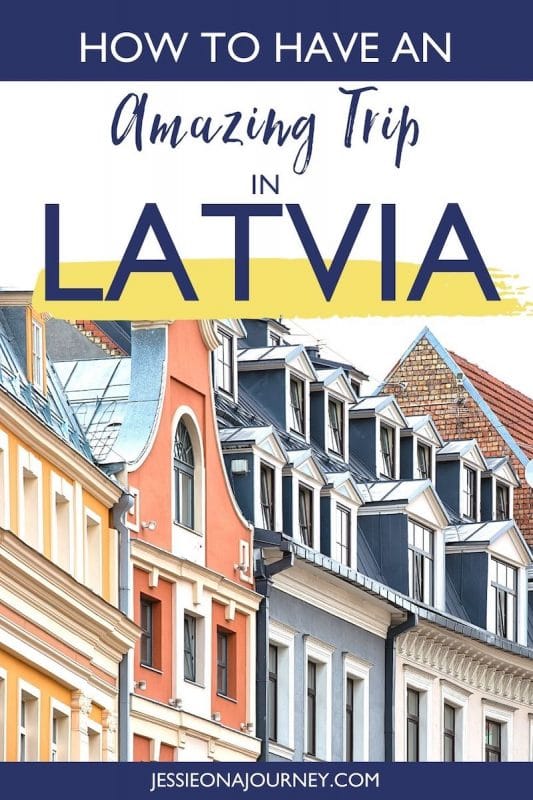
Situation in Haiti March 29, 2024
U.s. citizens in haiti, update january 10, 2024, information for u.s. citizens in the middle east.
- Travel Advisories |
- Contact Us |
- MyTravelGov |
Find U.S. Embassies & Consulates
Travel.state.gov, congressional liaison, special issuance agency, u.s. passports, international travel, intercountry adoption, international parental child abduction, records and authentications, popular links, travel advisories, mytravelgov, stay connected, legal resources, legal information, info for u.s. law enforcement, replace or certify documents.
Share this page:
Learn about your destination
Take 90 seconds for safer travel.
Travel Advisory Levels
Enroll in step.

Subscribe to get up-to-date safety and security information and help us reach you in an emergency abroad.
Recommended Web Browsers: Microsoft Edge or Google Chrome.
External Link
You are about to leave travel.state.gov for an external website that is not maintained by the U.S. Department of State.
Links to external websites are provided as a convenience and should not be construed as an endorsement by the U.S. Department of State of the views or products contained therein. If you wish to remain on travel.state.gov, click the "cancel" message.
You are about to visit:
10 reasons to visit Latvia
Oct 1, 2015 • 5 min read
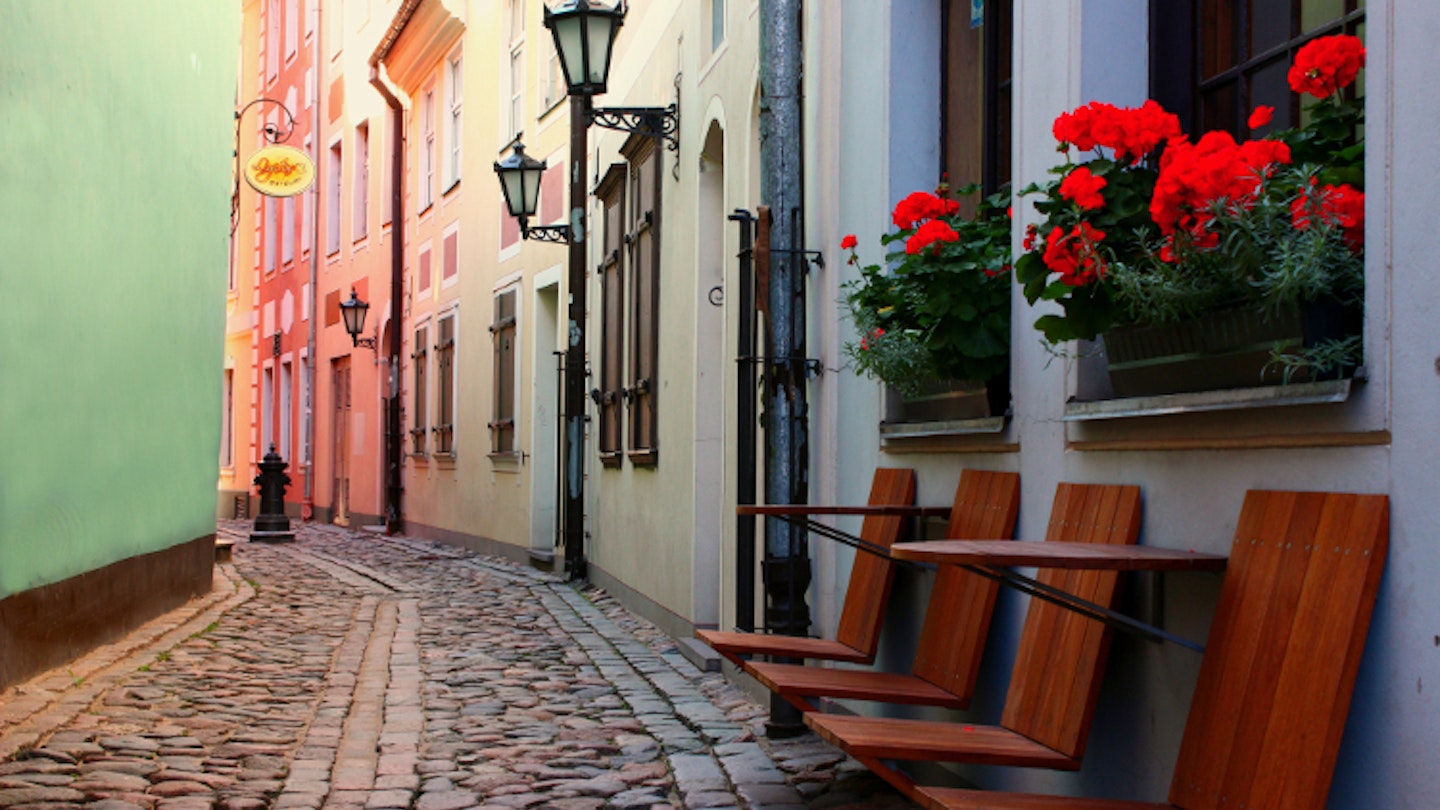
If you don’t already have a connection to Latvia , chances are it may not have crossed your mind as a potential destination for your next trip.
But this Baltic nation has more than a few surprises hidden amidst its lush pine forests and architecturally rich cities and towns. Here are ten reasons to add Latvia to your travel wish list.

It’s lost its walls and it isn’t as cutesy as others across Europe, but the old town in Latvia's capital, Rīga , still has an impressive array of historic buildings, oversized churches and cobbled lanes. Best of all are the many sunny squares filled with beer gardens and street cafes, which in summer thrum with the cosmopolitan clatter of locals and tourists. In winter Old Rīga does its best impression of a scene from a Christmas card – which is fitting for the place where the very first Christmas tree was erected.
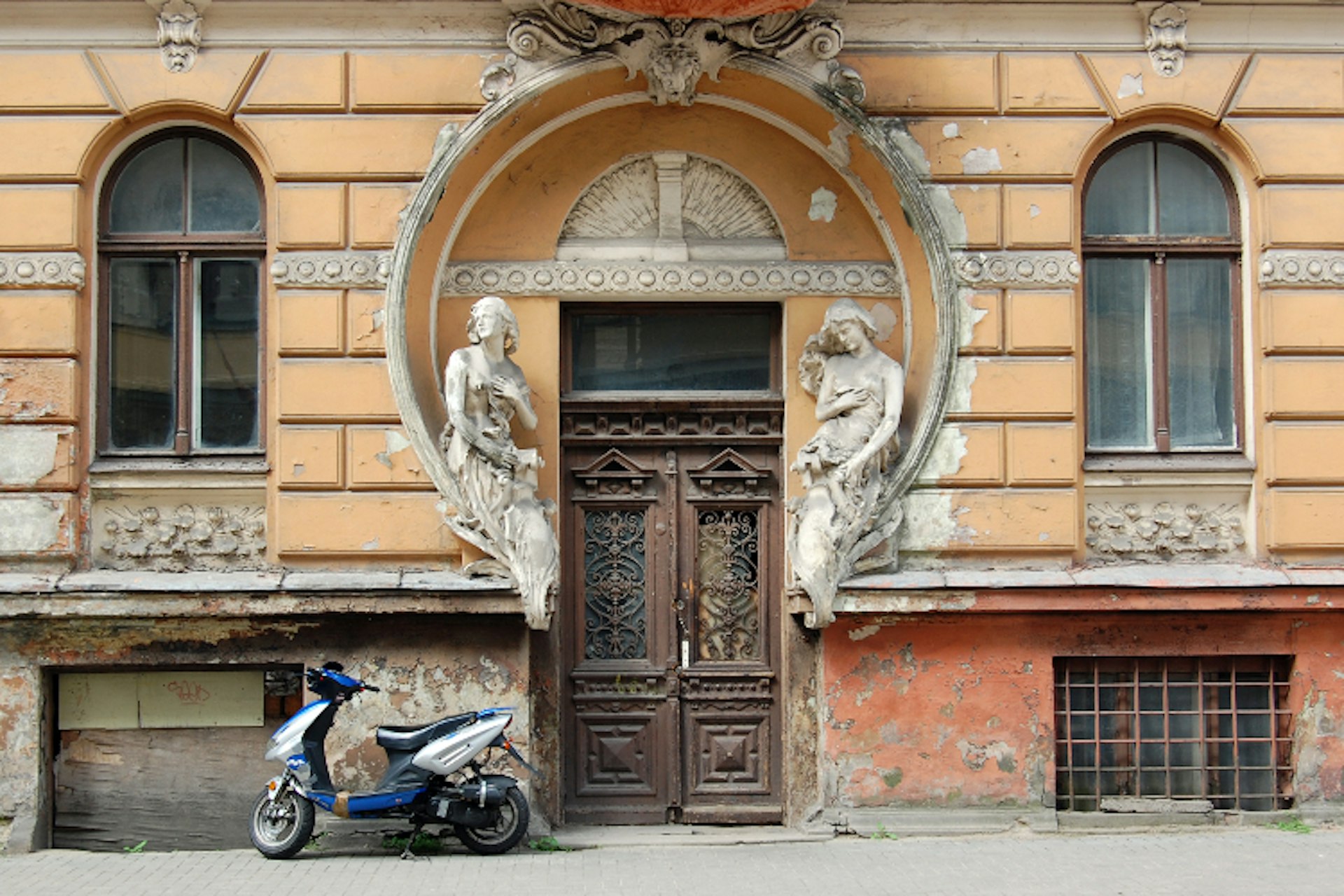
Art nouveau architecture
For fans of this theatrical style of architecture and design, there’s simply no better destination than Rīga. The city’s architects got completely carried away with this trend when it swept Europe around the beginning of the 20th century and, despite the wartime devastation, over 750 art nouveau buildings remain. Gaze up as you wander the streets and you’ll see a great many facades decorated with the swirling nature motives, bare-breasted goddesses and mythological beasts typical of the style. If you want to delve deeper, visit the period apartment which serves as the Rīga Art Nouveau Museum . For art nouveau furniture and fabrics, head to the Museum of Decorative Arts & Design .
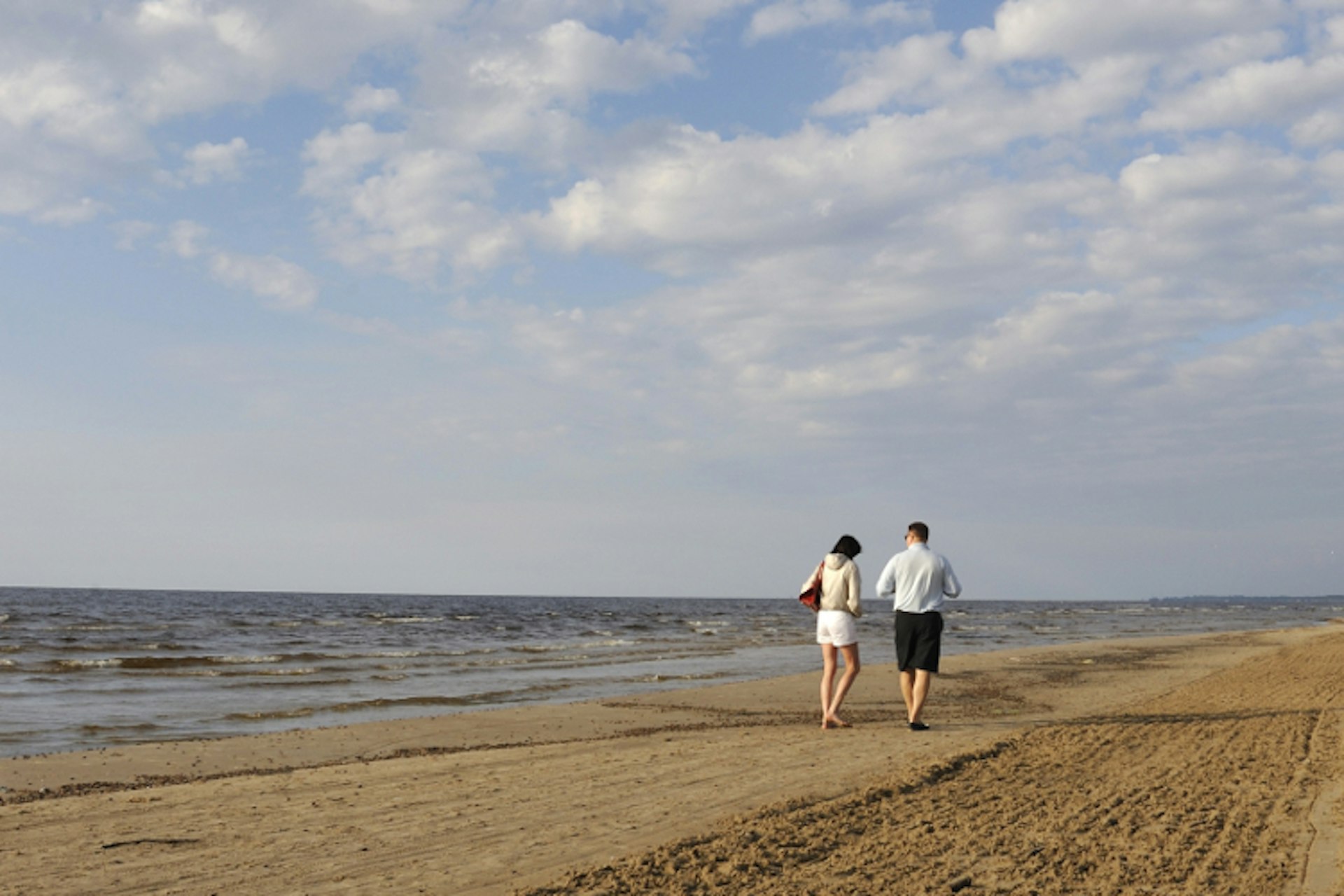
Beautiful beaches
First-timers to the Baltic are often surprised by just how beautiful the beaches are. Granted, it doesn’t quite have the climate to match, but in the height of summer, the endless golden sands are a great place to let the kids loose with a bucket and spade. Jūrmala , only 20km from the capital, is Latvia’s swankiest beach town, filled with grand wooden holiday houses and large spa hotels. For a more relaxed vibe, try Ventspils in the northeast.
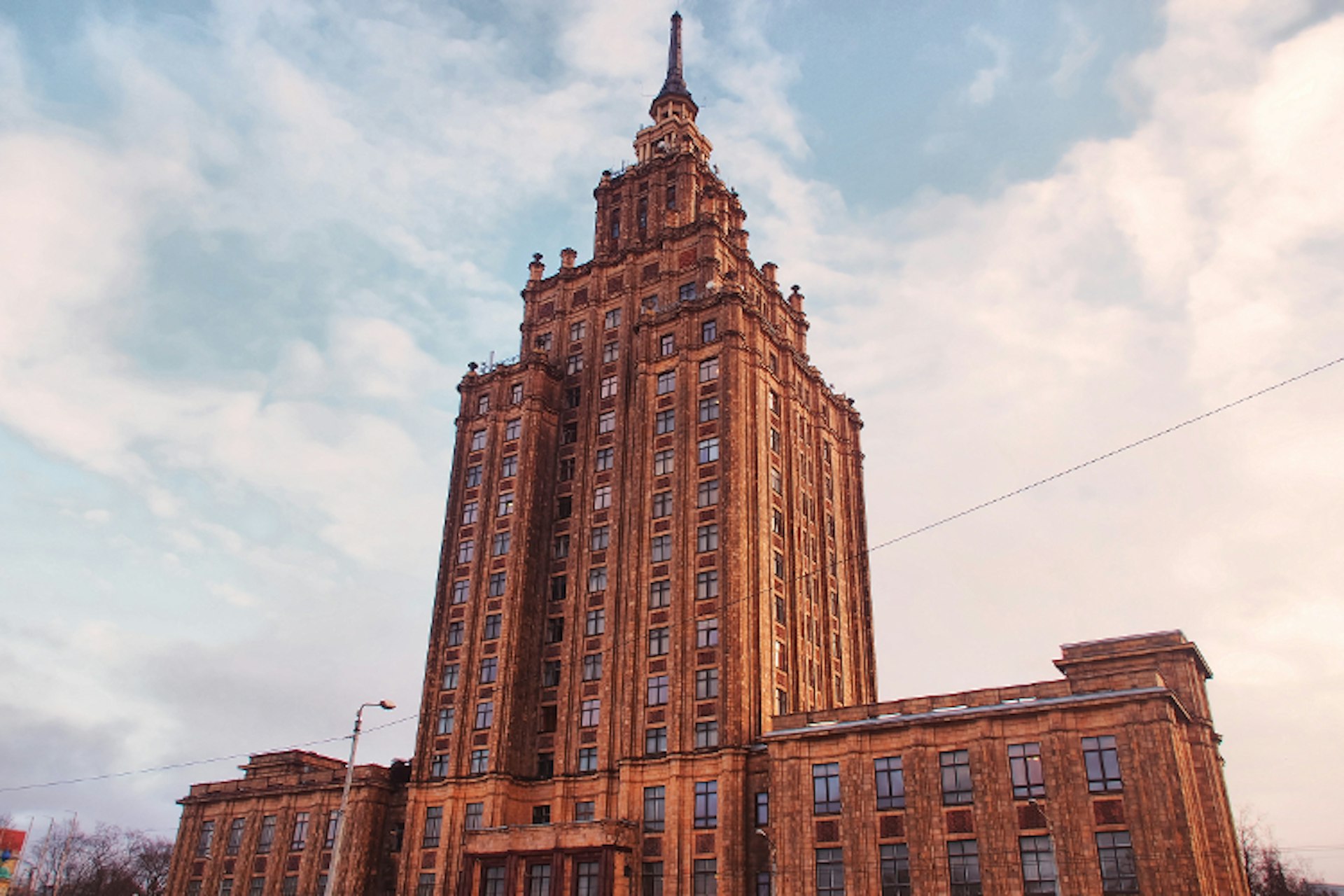
Soviet reminders
If you’re fascinated by the good, the bad and the ugly of the USSR, they can all be found in this former Soviet republic – although the scales are tipped strongly towards the latter two. ‘The good’ is represented by love-them-or-hate-them buildings such as Rīga’s overblown Academy of Science skyscraper (nicknamed Stalin’s wedding cake) and the boxy modernist building housing the Museum of the Occupation of Latvia . Inside, the museum succinctly summarises ‘the bad’ side of Soviet life such as deportations, gulags and purges. As for ‘the ugly’ – you don’t have to wander too far from the well-scrubbed touristy areas to find plenty of the grey, utilitarian buildings that epitomise the words ‘former Soviet’.
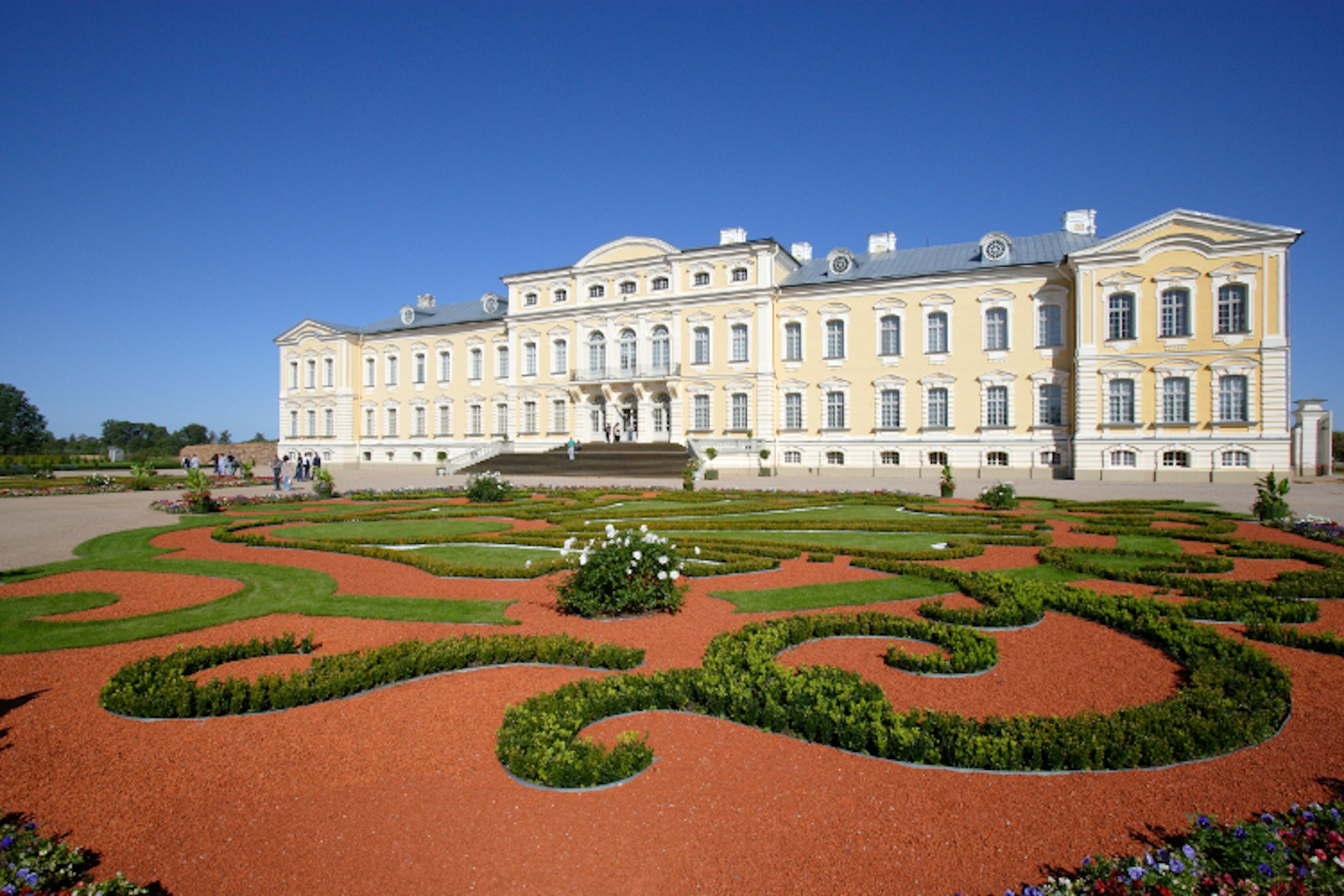
Rundāle Palace
If drab buildings were a hallmark of communism, surely excessive ostentation was the equivalent for the Russian Empire. The remarkable Rundāle Palace , built for the Duke of Courland in the 18th century, is the grandest of its kind in the Baltics, with formal gardens modelled on those at Versailles and 138 rooms within its baroque shell. Inside, the state rooms are slathered with frescoes, moulded plasterwork and gilt trim.

Ancient castles
When German warrior monks pushed into the Baltics in the early 13th century, introducing the locals to the joys of Christianity with the pointy end of their swords, they couldn’t be certain of a warm welcome. Sturdy fortifications were a necessary precaution and castles sprang up throughout the land, many of which are still standing today. Visitors to Cēsis Castle are issued with a candle-powered lantern to explore the darker recesses of its ruined walls. The boxy Livonian Order Castle in Ventspils, by contrast, has been restored and converted into an excellent interactive museum.
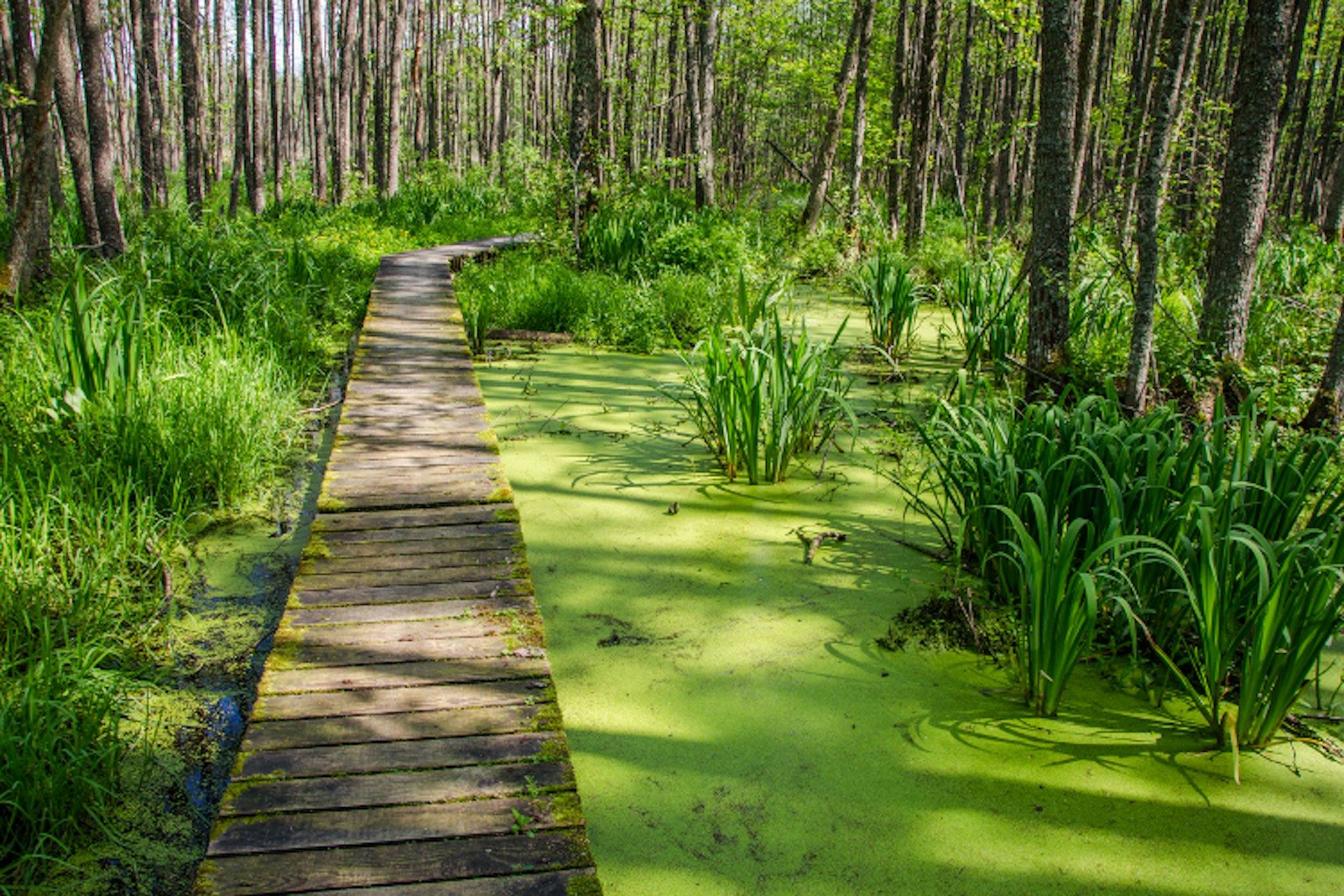
Fairytale forests
If you want to get close to the Latvian heart, take a walk through the woods. Forests cover around 45 percent of the country and shelter a diverse range of critters, including a significant population of lynx, beavers and birds of prey. The best places to wander tree-dappled trails are in Ķemeri National Park, a large expanse of forest and bog near Jūrmala, and Gauja National Park, northeast of Rīga. From Sigulda, gateway to Gauja, leafy paths lead between the ruins of three castles and along the Gauja River.
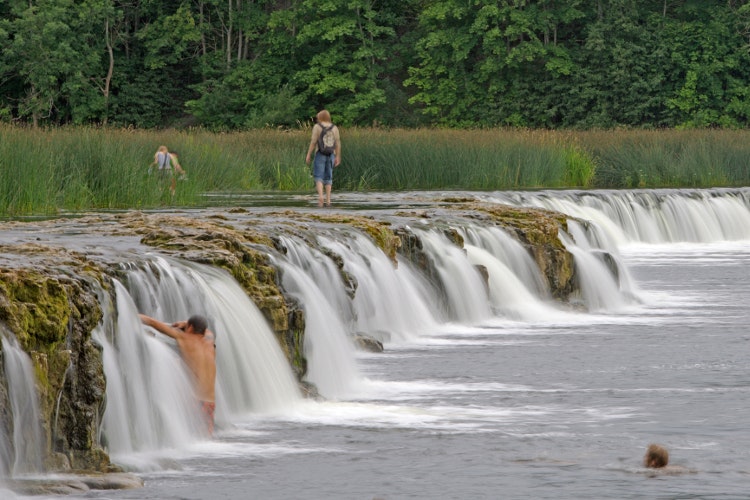
Picturesque towns
Rīga does tend to steal much of the limelight, but more intrepid travellers should consider seeking out some of Latvia’s sleepier centres. Our favourites include pretty little Cēsis, hidden in the forested confines of Gauja National Park, and centred on a large church, ruined castle and ornamental lake. Much further west, Kuldīga boasts Europe’s widest waterfall (249m) – but at a height of only two metres, it’s more scenic than it is dramatic. The best views are from Kuldīga’s old castle grounds, which have been transformed into a leafy park and sculpture garden.

Daugavpils Mark Rothko Art Centre
You might know him as one of America’s most celebrated artists and one of the world’s leading exponents of abstract expressionism, but Mark Rothko (1903-1970) was actually born in Daugavpils in Latvia’s southeast. In 2013 his home town recognised its most famous son with the opening of the Mark Rothko Art Centre ( rothkocenter.com ). Dedicated to art, culture and education, the centre is located in the arsenal building of a historic Russian-built fortress. The Rothko family stumped up some original works which hang alongside an ever-expanding collection of contemporary Latvian art.
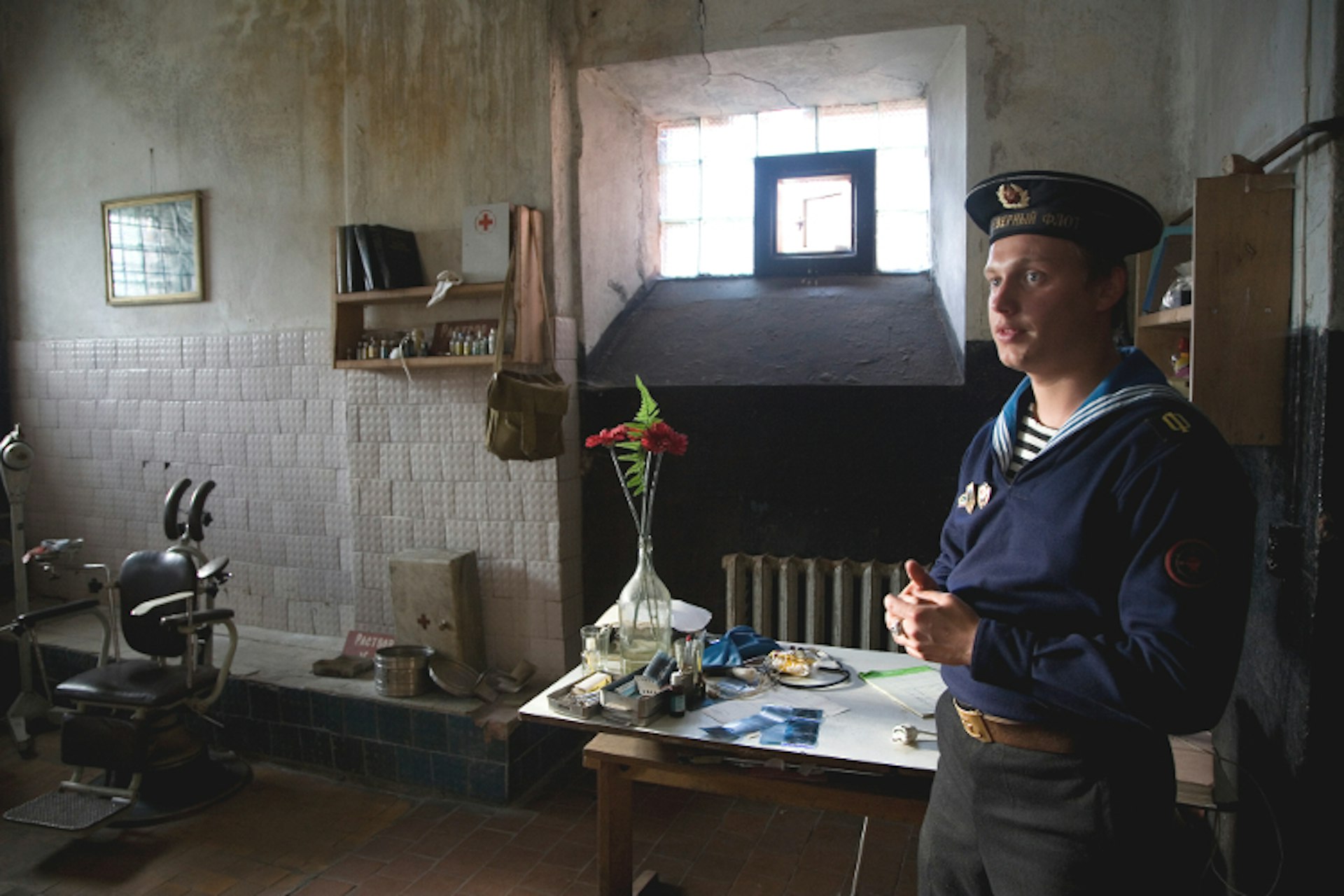
Kooky experiences
From spy games in old Soviet coastal forts to horror scenes acted out in darkened basements, Latvia has a particularly pant-wetting range of experience-based attractions on offer. If you’re a glutton for Soviet-style punishment, report to Liepāja’s creepy old military gaol, Karosta Prison , for a few hours of abuse by costumed KGB operatives. For a more intense experience, you can even stay the night in a cell and get acquainted with the authentically awful toilet facilities.
Explore related stories
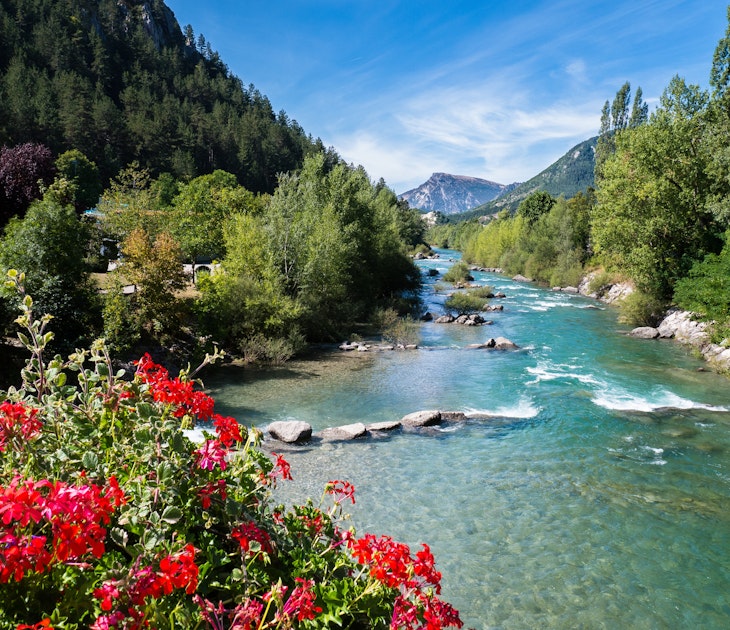
Jul 13, 2021 • 5 min read
This first-timer's guide to France can help you narrow down the best places to go, and other top tips to make the most of your visit.
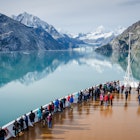
Jan 2, 2019 • 7 min read
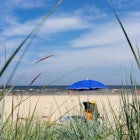
Dec 18, 2015 • 5 min read
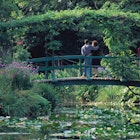
Apr 1, 2024 • 8 min read

Jan 26, 2024 • 6 min read

Dec 28, 2023 • 9 min read

Nov 15, 2023 • 5 min read
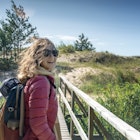
Sep 21, 2023 • 6 min read

Jun 1, 2023 • 3 min read

Sep 21, 2022 • 10 min read
Cookies on GOV.UK
We use some essential cookies to make this website work.
We’d like to set additional cookies to understand how you use GOV.UK, remember your settings and improve government services.
We also use cookies set by other sites to help us deliver content from their services.
You have accepted additional cookies. You can change your cookie settings at any time.
You have rejected additional cookies. You can change your cookie settings at any time.
beta This is a test version of the layout of this page. Take the survey to help us improve it
- Help and services around the world
- UK help and services in Latvia
Travelling to Latvia
Includes travel advice and how to get married abroad.
Subscriptions
- Get emails for this topic Travelling to Latvia
Getting married abroad
Requirements, paperwork and processes for weddings and civil partnerships overseas - registration, restrictions, fees
Latvia travel advice
Latest FCDO travel advice for Latvia including on entry requirements, safety and security and local laws and customs.
Reduce your risk from terrorism while abroad
How to minimise your risk, and what to do if there's a terrorist attack.
Is this page useful?
- Yes this page is useful
- No this page is not useful
Help us improve GOV.UK
Don’t include personal or financial information like your National Insurance number or credit card details.
To help us improve GOV.UK, we’d like to know more about your visit today. We’ll send you a link to a feedback form. It will take only 2 minutes to fill in. Don’t worry we won’t send you spam or share your email address with anyone.
- Skip to main content
- Keyboard shortcuts for audio player
Latvia prepares for Russian aggression amid concern war will spread beyond Ukraine

Devan Schwartz

Leila Fadel
NPR's Leila Fadel talks to Latvia's Foreign Minister Krišjanis Karinš about the threat amid waning U.S. enthusiasm for supporting Ukraine. Lithuania and Estonia officials are also in Washington, D.C.
LEILA FADEL, HOST:
It's been more than two years since Russia's full-scale invasion of Ukraine, and Russia's other neighbors are worried that the aggression could spread. Those countries include the small Baltic nation of Latvia, and the former Soviet republic is preparing for that possibility. Compulsory military service was reinstated earlier this year.
Meanwhile, the U.S. appears to be preparing as well. Congress passed military and defense support for Latvia, along with their neighbors and fellow NATO allies Estonia and Lithuania. To discuss this concern, we're joined now by Latvia's minister of foreign affairs, Krisjanis Karins, who is the - also the former prime minister. He's here in Washington to meet with Secretary of State Antony Blinken, alongside his counterparts from Lithuania and Estonia. Welcome to the program and to Washington.
KRISJANIS KARINS: Thank you. Good morning.
FADEL: Good morning. So I want to start with why you feel your country has to prepare for Russian aggression and that this war will spread beyond Ukraine.
KARINS: Well, it's not just my country that needs to be prepared. Actually, all of NATO be - needs to be prepared because what we're seeing in Russia is unfortunately not only Putin-specific. That is, they have a very now - deep-seated ideology of imperialistic expansion. It's sort of a throwback to something that most of us thought disappeared along with the Second World War. Well, it's back.
And they have been fighting now a very aggressive, very brutal war against Ukraine for the past two years. It's not only against the army. It's against civilian infrastructure, schools, hospitals, etc. There is no indication that they are going to - that they have any inclination to stop their war machine. Their economy is on a war footing. About 40% of their budget is going towards either the military or internal security measures. They are going flat out. And if we don't stop them in Ukraine, help Ukrainians stop them, then that aggression - we don't know which way it would turn. It could turn towards NATO. It could turn elsewhere. But we have a long-term problem, so we need to do everything to stop them now.
FADEL: Now, you're in Washington as funding for Ukraine is still being held up by the U.S. Congress. So I have to ask, if you do face aggression from Russia, does Latvia think it can depend on the U.S.? And will you bring that up in your meeting with the secretary of state today?
KARINS: Well, the U.S. and Europe really need each other. So on the European side, we've already invested about 144 billion. On top of that, another 50 billion euros went into - you know, over the next four years. We've made that budgetary decision. The Ukrainians also need American support. That's very, very clear. The support, which has been - so far has been extremely, you know, well taken. But it's clear that they need more munitions. They need more weapons. And I think everyone is hoping that the U.S. Congress could take this decision.
I think it's also in the direct U.S. interests because if the rules-based order - this is the world order that the U.S. basically established at the end of the Second World War - if this is not upheld, then the world becomes a very dangerous place, indeed. And trade routes will be disrupted. We will see more and more problems. So we're all actually self-interested in maintaining the order of the world, which now Russia is unfortunately trying to turn on its head.
FADEL: But I'm asking if you feel your country can depend on the U.S. if this funding continues to be held up in this way.
KARINS: Well, we certainly have fantastic U.S. support so far. The budget decision, which was taken by Congress, also included a very nice packet of military assistance to the Baltic countries. We have a continual U.S. presence in our country. And over the past two years, that aid and support and physical presence has increased. So we very much - of course, we rely on our American friends, partners and allies and also expect that to continue in the future. And, again, I - it's not just our interests. It's, in my opinion, in the direct interest of the U.S. to continue this.
FADEL: What will be at the top of your agenda in your meeting with Blinken today?
KARINS: Well, at the top of the agenda will be, what are we going to do in the medium to long term? That is - the war that Russia is waging in Ukraine is one issue. But we need to come out with a long-term, for lack of a better word, containment policy on Russia. Let's, you know, fast-forward, and the war ends in Ukraine, but Russia does not become less aggressive simply because it would have lost the war in Ukraine.
So we will have to work out what we are going to do that is in Europe, in the U.S., in the long term. And when I say long term, I'm thinking 20 years. And so we have to think of where we need to go, and then we have to pull back. What are the steps that we need to do today in order to attain our long-term goal?
FADEL: Krisjanis Karins is the foreign minister of Latvia. Thank you for being on the program.
KARINS: Thank you very much.
Copyright © 2024 NPR. All rights reserved. Visit our website terms of use and permissions pages at www.npr.org for further information.
NPR transcripts are created on a rush deadline by an NPR contractor. This text may not be in its final form and may be updated or revised in the future. Accuracy and availability may vary. The authoritative record of NPR’s programming is the audio record.
The 5 Safest Islands To Visit For a Peaceful and Worry-free Vacation
Check out the safest islands to visit for travelers. These destinations offer top of the line excursions and very safe environments.
Sarah Rand • Mar 26, 2024
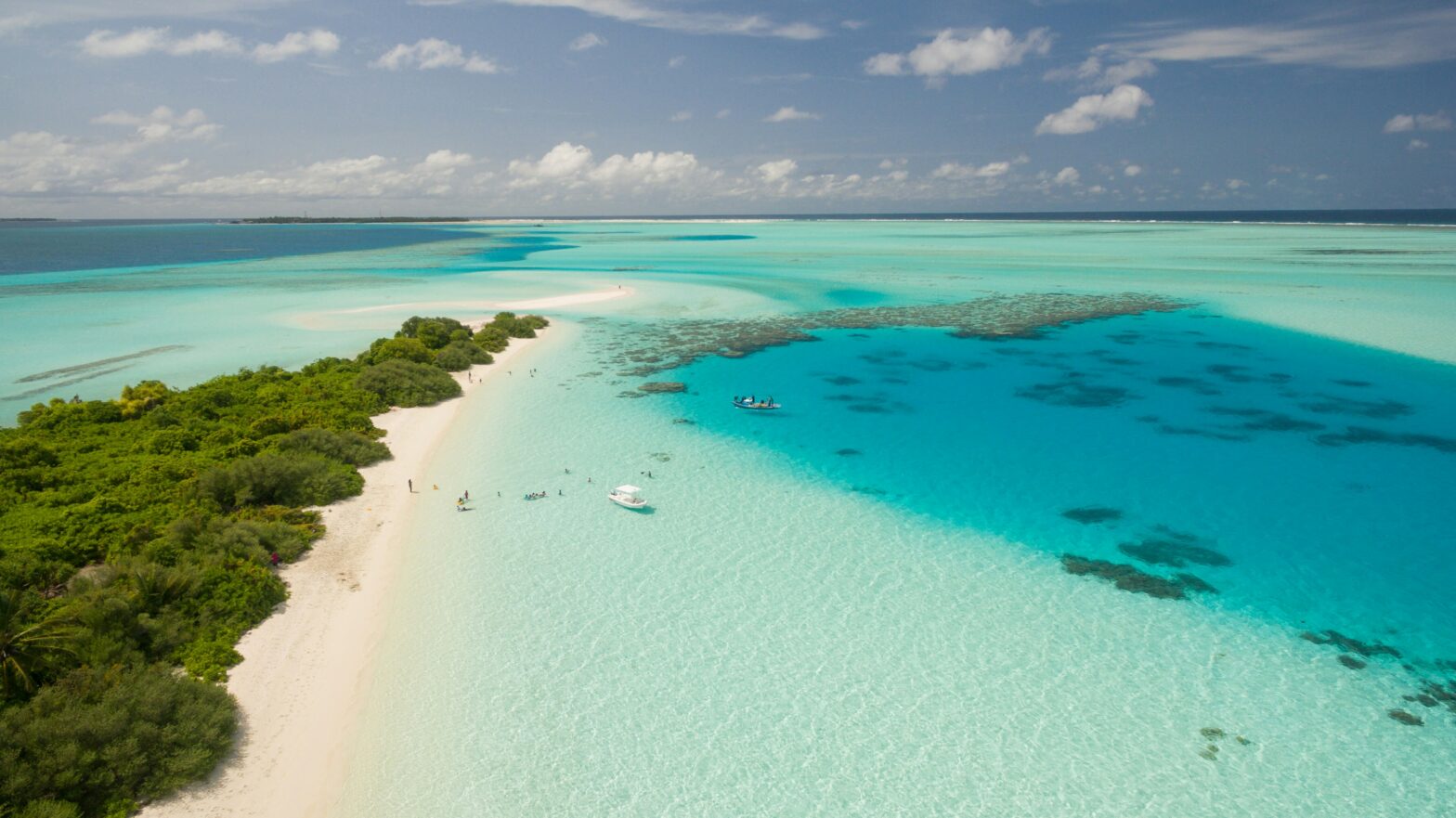
Island vacations are among one of the most popular types of getaways. While the rest and relaxation that tropical travel brings is enough to excite the average traveler, there is a safety component to consider. Travelers should always stay conscious of their personal safety and research potential travel destinations for assurance . This can help avoid unsafe situations and culture shock, so selecting safe islands to visit is a critical component to planning a relaxing getaway.
With more and more travelers flocking to exciting destinations, there can be unexpected consequences. The growing popularity of some destinations has led to overcrowding and an increase in crime rates . Luckily, there are still plenty of islands all over the world that are safe to visit. Travelers can even choose from remote islands to more popular tourist destinations.
Check out some of the safest islands to visit globally that offer travelers a warm welcome.
Safest Islands To Visit Across the Globe
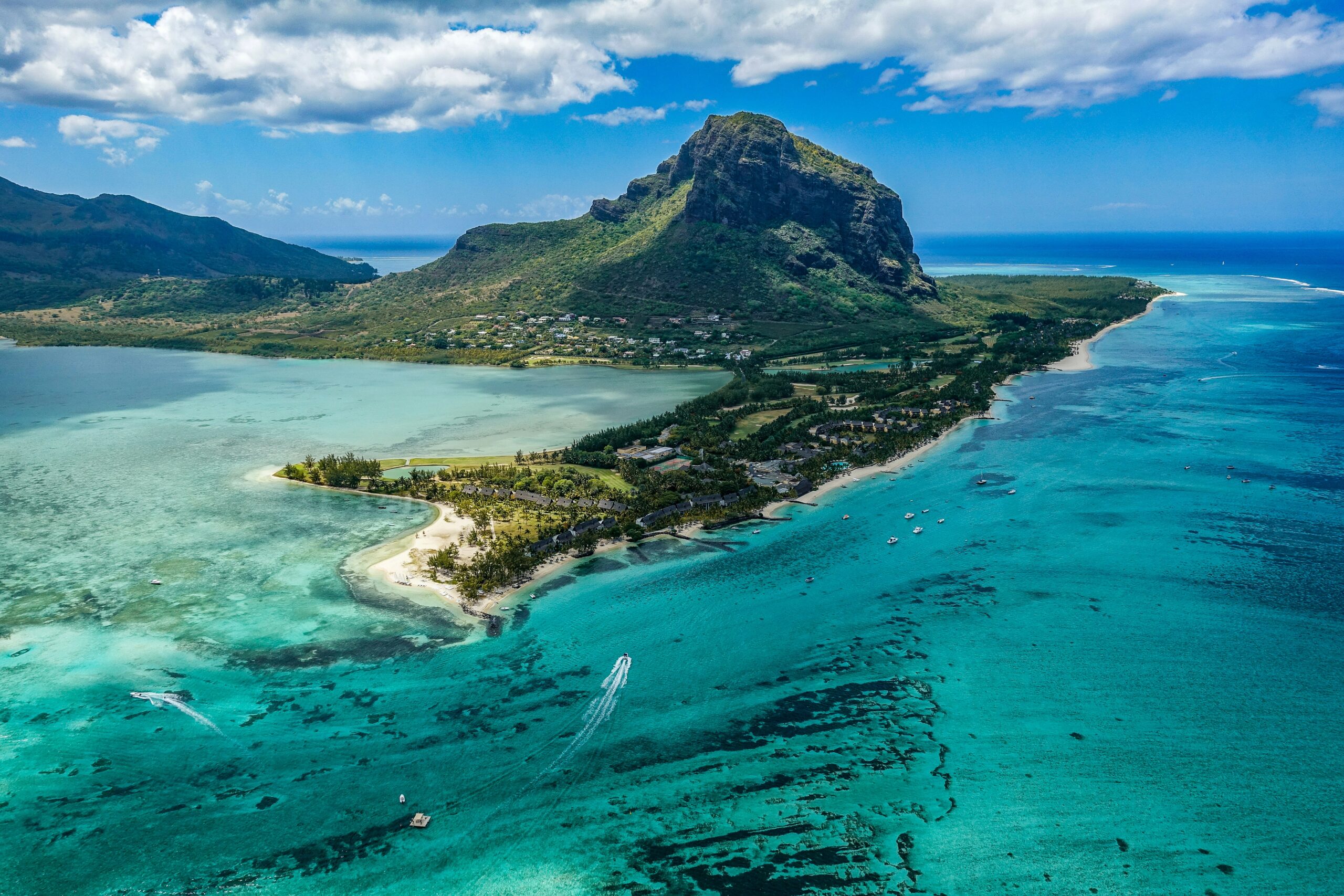
South Island
South Island is a location in New Zealand. It is technically named Te Waipounamu, which translates (from Māori) to the water of greenstone. New Zealand is among one of the safest countries in the world, according to the most recent Global Peace Index rankings . So travelers often feel very comfortable there and it is one of the safest islands to visit. The U.S. Department of State also ranks New Zealand as a level one destination. Meaning that travelers do not have to exercise extra safety precautions to secure their safety. So it is no surprise that the South Island is a recommended destination for safe travel.
At the South Island travelers can expect to be in awe of the surrounding landscapes. It is such a stunning place that any traveler can capture travel magazine ready photos at a moment’s notice. The island provides gorgeous views of the rainforest, snow capped Alps and glistening beaches. Some travelers appreciate that they can experience snowy peaks and sunny beach days at the same time in this location. Some of the best things to do while at South Island are visiting Abel Tasman National Park, Hokitika Gorge, the historic Christchurch Botanic Gardens and the Franz Josef Glacier.
Tahiti is the largest island in French Polynesia out of 118 islands (and atolls). It is a popular vacation destination located in the South Pacific Ocean. Tahiti also has a great reputation for safety. According to the U.S. Department of State the island has a low rate of crime . It has been categorized as a level one destination which means that travelers should exercise regular travel precautions while visiting. So, travelers can rest assured that their trip to Tahiti will be secure.
A trip to Tahiti will make travelers feel like they are in paradise. The destination is well known for its natural beauty. Some of the most picturesque features of the island include blue lagoons, majestic waterfalls, black sand beaches, thriving culture and Polynesian charm. Travelers can take in the sites and simply enjoy the gentle sway of the coconut trees and soft waves. But some visitors like to indulge the more culturally engaging activities. The top things to do in Tahiti are the Papeete Market, the Museum of Tahiti and The Islands, hiking to the Fautaua Waterfall or surfing. And, of course, there are top notch beaches. La Plage de Maui and Papenoo Beach are among the most popular beaches in Tahiti.
Anguilla is a secluded Caribbean island that is safe for travelers according to the U.S. Department of State. The destination is a level one travel destination so travelers should simply exercise regular travel precautions . The island is also said to have welcoming locals since there is a warm and kind sense of hospitality. So it is a safe island to visit and great place for families, couples and solo travelers.
Some of the most irresistible parts of Anguilla are the gorgeous sunsets, delectable Anguillan cuisine, jaw dropping ocean views and world class snorkeling. The beach is one of the most popular places for travelers to spend their time on the island. Rendezvous Bay and Mead’s are considered the top beaches with pristine waters and golden sands. Visiting Big Spring Cave, snorkeling at Shoal Bay, enjoying the local live music performances, eating at Sharky’s and even spotting sea turtles during nesting season are some of the most enticing experiences available to travelers.
This island nation in east Africa is a prosperous travel destination. The destination ranks quite high in the Global Peace Index (GPI). It even surpasses popular travel spots like Italy and Costa Rica for overall peacefulness. The U.S. Department of State even gives the island its highest safety level rating . It also has a diverse cultural makeup that lends itself to the island’s inclusive culture.
The island of Mauritius is adorned with lush rainforests, beautiful beaches and thriving wildlife. The vibrant destination has an array of attractions that capture the attention of travelers. Black River Gorges National Park, Sir Seewoosagur Ramgoolam Botanical Garden, Chamarel Seven Colored Earth Geopark and Gris Gris Beach are among the most popular tourist attractions on the island. Travelers visiting Mauritius should also explore a museum or take a food tour to really immerse themselves in the local culture.
Fiji, officially known as the Republic of Fiji, is a country and archipelago in the South Pacific made of more than 300 islands. The relaxing destination is also a very safe option for travelers looking for a nice island escape. It is a country that has been categorized as one of the safest places to travel by the U.S Department of State. The level one island poses no adverse threat to travelers. In fact, it is well liked for its inclusivity and the overall happy demeanor of its locals.
After being welcomed with the Fijian greeting “Bula”, travelers can let all their worries melt away. Some of the most relaxing things to do in Fiji include massages on the beach, private picnics, soaking in mud pools or hot springs and partaking in a wellness retreat. Other travelers may opt to do a deep dive into the local culture. The Fiji Culture Village, Fiji Museum and Sri Siva Subramaniya Swami Temple are popular cultural centers that provide travelers with insight. Other popular excursions include the Garden of the Sleeping Giant, Kula WILD Adventure Park and Sigatoka Sand Dunes National Park.
Subscribe to travel noire
Get more travel content
Subscribe to Travel Noire, a free daily newsletter that features the best of travel, destinations, and guides to the cities you love from a new point of view — yours.
By subscribing to this newsletter, you agree to our terms of service and privacy policy.
Popular posts
Trending stories in world travel

IMAGES
VIDEO
COMMENTS
Latvia is generally safe to travel to, and petty crime is relatively low although it exists. Pickpocketing is mostly common in larger cities and some of the most notorious locations for this crime are Vecriga (Riga's Old Town), Dzelzcela Stacija (central train station), the Autoosta (central bus station) and Centraltirgus (central market). ...
Reissued with obsolete COVID-19 page links removed. Exercise normal precautions in Latvia. Read the country information page for additional information on travel to Latvia.. If you decide to travel to Latvia: Enroll in the Smart Traveler Enrollment Program to receive travel alerts and make it easier to locate you in an emergency.; Follow the Department of State on Facebook and Twitter.
Only essential travelers, non-vaccinated, non-recovered from COVID-19, may enter Latvia. Complete list of categories of those who are allowed to enter Latvia is listed in Paragraph 168 of the Cabinet of Ministers Regulation, "Epidemiological Safety Measures for the Containment of the Spread of COVID-19 Infection". All persons travelling to Latvia must fill out an electronic form on the ...
Not only does Latvia have a high traffic accident rate, it also has a high car theft rate. If you're on a driving holiday, keep your doors locked and valuables out of sight when it is parked or unattended. To report any crime, call the Riga tourism police on +317 67 181818 or the national police on 110. By Phil Sylvester ,
Visit the website the Embassy of Latvia in Washington for the most current visa information.. If you plan to stay in Latvia more than 90 days, you must apply for temporary residence. A criminal records check from the United States, which can be requested through the FBI, is required for a temporary residence permit.You must also submit proof of identity and a set of ink-rolled fingerprint ...
Still current at: 3 April 2024 Updated: 8 March 2024 Latest update: Information on entry to Latvia for British-Russian dual nationals and driving in Latvia ('Entry requirements' and 'Safety ...
Reduce your risk of colds, the flu and other illnesses by: washing your hands often. avoiding or limiting the amount of time spent in closed spaces, crowded places, or at large-scale events (concerts, sporting events, rallies) avoiding close physical contact with people who may be showing symptoms of illness.
Latvia entry details and exceptions. All travelers that use international flights to and from China are recommended to wear medical masks or FFP2/N95/KN95. Latvia has closed its borders to Russians entering for tourism purposes. This page covers COVID-19 related travel restrictions only. For other travel restrictions, please check the guidance ...
COVID-19 travel restrictions were lifted in Latvia. There is no need to present a certificate of vaccination, recovery from COVID-19 or negative test results. Facemasks and respirators must be worn in health care and social care facilities. It is still advisable to practice good hand and cough hygiene and do not travel if having any symptoms.
Here's what to know before you visit, and tips on what to see and do. 1. Getting to Latvia is easier than you think. I had always thought of the Baltic States ( Estonia , Lithuania, and Latvia) as an isolated group of countries in the furthest reaches of Europe. Given the poor transport connections I have experienced between many Eastern ...
Latvia Travel Costs. Accommodation - Hostel dorms start at 15 EUR per night for a dorm with 8 beds or more. For a smaller dorm with 4-6 beds, expect to pay around 26 EUR. Free Wi-Fi is standard, as are self-catering facilities. Private rooms in hostels are less common and cost between 20-60 EUR.
See Smartraveller for information on visa and entry requirements. Selected land borders between Latvia and Russia/Belarus remain open for travel via car except for vehicles registered in Russia carrying Russian license plates. These vehicles will be refused entry into Latvia. Commercial bus routes are also available.
If your travel plans in Latvia include outdoor activities, take these steps to stay safe and healthy during your trip. Stay alert to changing weather conditions and adjust your plans if conditions become unsafe. Prepare for activities by wearing the right clothes and packing protective items, such as bug spray, sunscreen, and a basic first aid kit.
Here are a few tips to keep you safe. Is Riga Safe? Find Out How to Travel Safely in Latvia. Latvia has a reputation for crime and scams targeted to travelers, and here's what you need to know to stay safe. Is Latvia safe for travelers? Here's our help, advice and support for planning a successful trip and traveling safely in Latvia.
Entrance fees to places like castles, panoramic views and cable cars are probably only a little under the European average. Even dining out (6-18€) can be pretty cheap, especially with No. 8 below. Essentially, if you're on a budget, visiting Latvia's a pretty good pick. 5. Fascinating History.
There have been reports of petty crime, particularly bag snatching and pickpocketing, in: Riga Old town. Central Market. central train and bus stations. You should: avoid unlit streets and parks ...
The crime rate in Riga is low, much lower than most Western European capitals. When I write these safety posts, I usually compare global cities to London (which isn't to say that London's not safe, but it's a big, touristy city that many people are happy to visit in terms of safety).. According to data from Numbeo, a user-contributed database comparing global living conditions, Riga has ...
Latvia is considered a pretty safe destination for travelers. The country has low rates of violent crime, though pickpocketing and petty theft still occur. As with any travel destination, it's best to stay vigilant and keep any valuables close to you and out of sight, particularly in tourist-heavy areas like Riga's Old Town.
To enter Latvia (and all Schengen countries) your passport must: have a 'date of issue' less than 10 years before the date you arrive. Passports issued after 1 October 2018 are now valid for ...
Latvia Travel Advisory: Level 1: Exercise Normal Precautions: July 26, 2023: Lithuania Travel Advisory: Level 1: Exercise Normal Precautions: July 26, 2023: ... You are about to leave travel.state.gov for an external website that is not maintained by the U.S. Department of State.
Fairytale forests. If you want to get close to the Latvian heart, take a walk through the woods. Forests cover around 45 percent of the country and shelter a diverse range of critters, including a significant population of lynx, beavers and birds of prey. The best places to wander tree-dappled trails are in Ķemeri National Park, a large ...
Latest FCDO travel advice for Latvia including on entry requirements, safety and security and local laws and customs. Reduce your risk from terrorism while abroad. How to minimise your risk, and ...
NPR's Leila Fadel talks to Latvia's Foreign Minister Krišjanis Karinš about the threat amid waning U.S. enthusiasm for supporting Ukraine. Lithuania and Estonia officials are also in Washington ...
So it is a safe island to visit and great place for families, couples and solo travelers. Some of the most irresistible parts of Anguilla are the gorgeous sunsets, delectable Anguillan cuisine, jaw dropping ocean views and world class snorkeling. The beach is one of the most popular places for travelers to spend their time on the island.